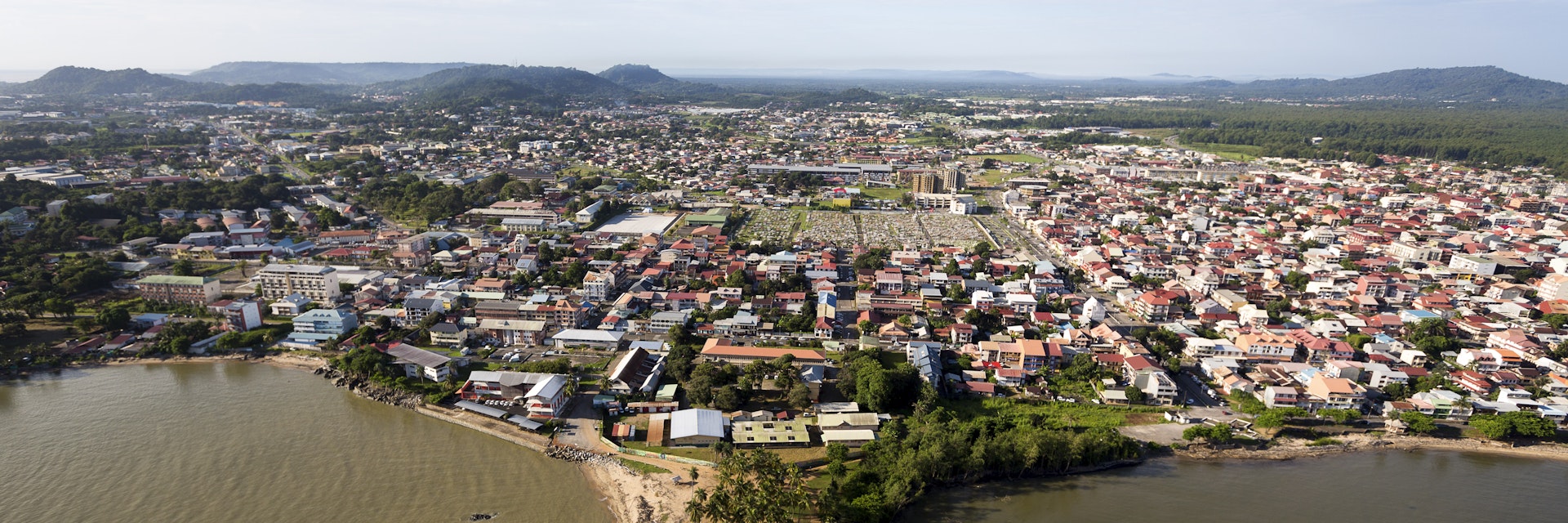
French Guiana
French Guiana is a remote region of France covered in thick jungle and wilderness, although you'll also find colonial architecture, eerie prison-camp history and some of the world's most diverse plant and animal life here. It's a strange mix of French law and rainforest humidity where only a few destinations along the coast are easily accessed and travel can be frustratingly difficult as well as expensive.

Leave the planning to a local expert
Experience the real French Guiana. Let a local expert handle the planning for you.
Attractions
Must-see attractions.

Centre Spatial Guyanais
Visiting the Centre Spatial Guyanais and (if you're lucky) seeing a rocket launch are two of French Guiana's biggest highlights. Both need to be arranged…

Camp de la Transportation
The eerie Camp de la Transportation, where prisoners arrived for processing, was the largest prison in French Guiana. Convicts arrived exhausted after 20…

Central Market
Inside Cayenne's market, shoppers will find a vibrant jumble of Amerindian basketry, African-style paintings and carvings, piles of spices at great prices…

Plage Les Hattes
This long stretch of beach is a very important nesting ground for giant leatherback turtles, which can grow up to 600kg. The females come ashore from…

Trésor & Kaw Nature Reserves
The Trésor Nature Reserve is one of French Guiana's most accessible primary rainforest areas, and wandering its 1.75km botanical trail is a great way to…

Once the administrative headquarters of the penal settlement, Île Royale has several restored prison buildings, including a fine prisoner-built chapel and…

Maison de la Reserve Naturelle l'Amana
Amerindian settlements and thick clouds of mosquitoes populate Awala-Yalimopo and Plage Les Hattes, one of the world's most spectacular nesting sites for…

Fort Cépérou
Off the gardened Place Léopold Héder are the remains of Fort Cépérou, perched on land bought in 1643 from the Galibi people by the first French colonists…
Plan with a local
Experience the real French Guiana
Let a local expert craft your dream trip.

Latest stories from French Guiana
Filter by interest:
- All Interests
- Adventure Travel
- Art & Culture
- Beaches, Coasts & Islands
- Food & Drink
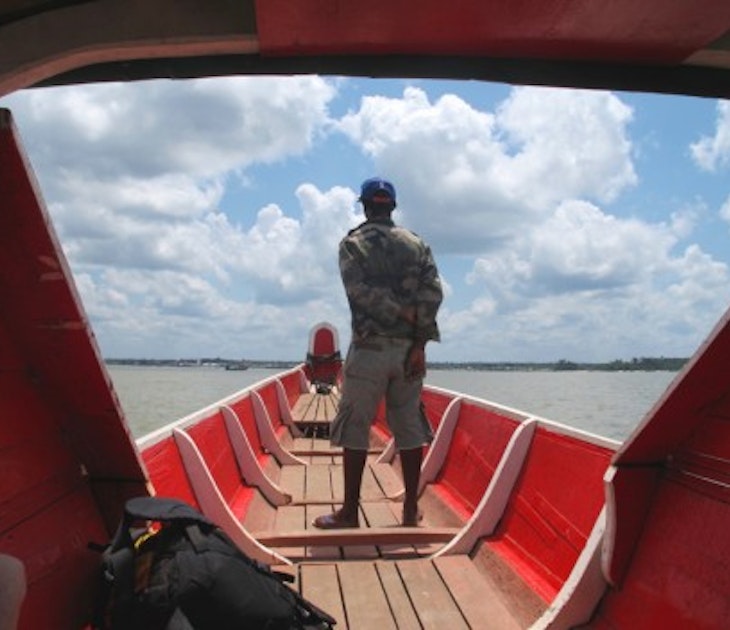
Jan 9, 2013 • 5 min read
The Guianas: Guyana, Suriname and French Guiana hide so well under their blanket of South American jungle that even geography nerds have a hard time…
in partnership with getyourguide
Book popular activities in French Guiana
Purchase our award-winning guidebooks.
Get to the heart of French Guiana with one of our in-depth, award-winning guidebooks, covering maps, itineraries, and expert guidance.
Update April 12, 2024
Information for u.s. citizens in the middle east.
- Travel Advisories |
- Contact Us |
- MyTravelGov |
Find U.S. Embassies & Consulates
Travel.state.gov, congressional liaison, special issuance agency, u.s. passports, international travel, intercountry adoption, international parental child abduction, records and authentications, popular links, travel advisories, mytravelgov, stay connected, legal resources, legal information, info for u.s. law enforcement, replace or certify documents.
Before You Go
Learn About Your Destination
While Abroad
Emergencies
Share this page:
French Guiana
Travel Advisory July 17, 2023
French guiana - level 1: exercise normal precautions.
Reissued with obsolete COVID-19 page links removed.
Exercise normal precautions in French Guiana.
Read the country information page for additional information on travel to French Guiana.
If you decide to travel to French Guiana:
- Enroll in the Smart Traveler Enrollment Program (STEP) to receive Alerts and make it easier to locate you in an emergency.
- Follow the Department of State on Facebook and Twitter .
- Review the Country Security Report for French Guiana.
- Prepare a contingency plan for emergency situations. Review the Traveler’s Checklist .
- Visit the CDC page for the latest Travel Health Information related to your travel.
Embassy Messages
View Alerts and Messages Archive
Quick Facts
Embassies and consulates.
U.S. Embassy Paramaribo Kristalstraat 165 Paramaribo, Suriname Telephone: (597) 556-700 Emergency After-Hours Telephone: (597) 710-1112 Fax: (597) 551-524 Email: [email protected]
Destination Description
Learn about the U.S. relationship to countries around the world.
Entry, Exit and Visa Requirements
The Government of French Guiana requires all non-citizens age 12 and over entering the country to be fully vaccinated against COVID-19.
Visit the Embassy of France website or the French government’s official visa information page for the most current visa information. Note that French Guiana is an overseas department of France but is not a part of the Schengen zone .
You may enter French Guiana for up to 90 days for tourist and business purposes without a visa.
Immigration officers may request evidence of travel or health insurance upon entry to French Guiana.
The U.S. Department of State is unaware of any HIV/AIDS entry restrictions for visitors to or foreign residents of French Guiana.
Find information on dual nationality , prevention of international child abduction and customs regulations on our websites.
Safety and Security
French Guiana is an overseas department of France. Demonstrations and strikes impacting transportation, including airports and roads, may occur. Reconfirm any domestic and/or international flight reservations if you are traveling during one of these events.
When traveling or living in French Guiana, you should:
Be aware of your local security situation and take appropriate steps to keep yourself safe.
Monitor media and local information sources and factor updated information into personal travel plans and activities.
Address specific safety concerns to French law enforcement authorities who have responsibility for the safety and security of all residents and visitors.
In French Guiana, the Police Nationale have authority to respond to crimes in the area around Cayenne. Outside of Cayenne, the Gendarmerie is responsible for law enforcement.
Crime: Petty street crime occurs throughout the major cities. Violent crime occurs but is rare.
Avoid wearing expensive jewelry.
Don’t display large amounts of money in public.
Avoid isolated areas, including the beach, after dark.
Drive with your windows closed and doors locked.
Avoid placing valuables in plain sight.
If you plan to travel into the interior, use a well-established tour company.
Demonstrations: U.S. citizens should be aware that demonstrations and large events intended to be peaceful can turn confrontational. Avoid areas of demonstrations and exercise caution in the vicinity of any large gathering.
International Financial Scams: See the Department of State and the FBI pages for information.
Victims of Crime: U.S. citizen victims of sexual assault are encouraged to contact the U.S. Embassy for assistance.
Report crimes to the local police by dialing 112. Operators may not speak English. You should also contact the U.S. Embassy in Suriname, which provides consular services for U.S. citizens in French Guiana, at (+597) 556-700 during business hours or (+597) 710-1112 during evenings and weekends.
Remember that local authorities are responsible for investigating and prosecuting the crime.
See our webpage on help for U.S. victims of crime overseas .
We can:
Help you find appropriate medical care
Assist you in reporting a crime to the police
Contact relatives or friends with your written consent
Provide general information regarding the victim’s role during the local investigation and following its conclusion
Provide a list of local attorneys
Provide our information on victim’s compensation programs in the U.S.
Provide information on victim’s assistance programs in France
Provide an emergency loan for repatriation to the United States and/or limited medical support in cases of destitution
Help you find accommodation and arrange flights home
Replace a stolen or lost passport
Domestic Violence: U.S. citizen victims of domestic violence are encouraged to contact the Embassy for assistance.
Tourism: The tourism industry is unevenly regulated, and safety inspections for equipment and facilities do not commonly occur. Hazardous areas/activities are not always identified with appropriate signage, and staff may not be trained or certified either by the host government or by recognized authorities in the field. In the event of an injury, appropriate medical treatment is typically available only in/near major cities. First responders are generally unable to access areas outside of major cities and to provide urgent medical treatment. U.S. citizens are encouraged to purchase medical evacuation insurance .
Local Laws & Special Circumstances
Criminal Penalties: You are subject to local laws. If you violate local laws, even unknowingly, you may be expelled, arrested, or imprisoned. Individuals establishing a business or practicing a profession that requires additional permits or licensing should seek information from the competent local authorities, prior to practicing or operating a business.
Furthermore, some laws are also prosecutable in the U.S., regardless of local law. For examples, see our website on crimes against minors abroad and the Department of Justice website.
Arrest Notification: If you are arrested or detained, ask police or prison officials to notify the U.S. Embassy in Suriname immediately. See our webpage for further information.
Penalties for possessing, using, or trafficking in illegal drugs in French Guiana are severe.
Convicted offenders can expect long jail sentences and heavy fines.
In French Guiana, driving under the influence of drugs or alcohol could land you immediately in jail.
Counterfeit and Pirated Goods: Although counterfeit and pirated goods are prevalent in many countries, they may still be illegal according to local laws. You may also pay fines or have to give them up if you bring them back to the United States. See the U.S. Department of Justice website for more information.
Customs regulations: French authorities enforce strict regulations concerning firearms, artifacts, medications, business equipment, and sales samples. Contact the Embassy of France for information.
French Foreign Legion: U.S. citizens interested in joining the French Foreign Legion (FFL) should be aware that the cognitive and physical tests for acceptance are extremely challenging.
Ensure you have access to sufficient funds to return home should your candidature be refused.
Successful candidates report that the FFL provides a new identity and retains their U.S. passport during a long probation period. Lack of access to your passport can complicate routine or emergency travel.
Faith-Based Travelers: See the following webpages for details:
Faith-Based Travel Information
International Religious Freedom Report – see country reports
Human Rights Report – see country reports
Hajj Fact Sheet for Travelers
Best Practices for Volunteering Abroad
LGBTQI+ Travelers: There are no legal restrictions on same-sex sexual relations or the organization of LGBTI events in French Guiana. See our LGBTQI+ Travel Information page and section 6 of our Human Rights report for further details.
Travelers with Disabilities: The law in French Guiana prohibits discrimination against persons with physical, sensory, intellectual or mental disabilities, and the law is not enforced. The most common types of accessibility may include accessible facilities, information, and communication/access to services/ease of movement or access. Expect accessibility to be limited in public transportation, communication/information, and general infrastructure, and common in public transportation. Public transportation is limited to non-existent in the rest of the country.
There is no availability of rental, repair, or replacement parts for hearing aids/equipment/devices, or service providers, such as sign language interpreters or personal assistants.
Students: See our Students Abroad page and FBI travel tips .
Women Travelers: See our travel tips for Women Travelers .
For emergency services in French Guiana, dial 112. You may also reach services directly at:
- Police: 17
- Fire department: 18
- Child abuse: 119
- Homelessness assistance: 115
- Gender based Violence: 3919
Ambulance services are:
not widely available and training and availability of emergency responders may be below U.S. standards.
not present throughout the country or are unreliable.
not equipped with state-of-the-art medical equipment.
Injured or seriously ill travelers may prefer to take a taxi or private vehicle to the nearest major hospital rather than wait for an ambulance.
Medical care within French Guiana is limited. Hospital facilities are available only in urban areas.
Only one hospital, the Centre Hospitalier Andrée Rosemon in Cayenne, has intensive care and trauma units. The Centre Hospitalier de l’Ouest Guyanais in St. Laurent provides more limited hospital services in the western part of French Guiana.
Not all medical facilities in French Guiana are air conditioned.
You can find prescription and over-the-counter medicines in pharmacies in larger cities, but U.S. brands may not be available.
We do not pay medical bills. Be aware that U.S. Medicare/Medicaid does not apply overseas. Most hospitals and doctors overseas do not accept U.S. health insurance.
Medical Insurance: Make sure your health insurance plan provides coverage overseas. Most care providers overseas only accept cash payments. See our webpage for more information on insurance coverage overseas. Visit the U.S. Centers for Disease Control and Prevention for more information on type of insurance you should consider before you travel overseas.
We strongly recommend supplemental insurance to cover medical evacuation.
Always carry your prescription medication in original packaging, along with your doctor’s prescription. Check the French Customs website to ensure the medication is legal in French Guiana.
Vaccinations: Proof of vaccination for yellow fever, or written proof from a doctor that yellow fever vaccination is not medically recommended, is required to enter French Guiana. Be up to date on all vaccinations recommended by the U.S. Centers for Disease Control and Prevention.
General Health Language
The following diseases are prevalent in French Guiana:
Yellow Fever
Use the U.S. Centers for Disease Control and Prevention recommended mosquito repellents and sleep under insecticide-impregnated mosquito nets. Chemoprophylaxis is recommended for all travelers even for short stays.
There are shortages of water, medicine, medical supplies, etc throughout French Guiana.
Visit the U.S. Centers for Disease Control and Prevention website for more information about Resources for Travelers regarding specific issues in French Guiana.
Further health information:
World Health Organization
U.S. Centers for Disease Control and Prevention (CDC)
Air Quality: Visit AirNow Department of State for information on air quality at U.S. Embassies and Consulates
The U.S. Embassy in Suriname maintains a list of doctors and hospitals in French Guiana. We do not endorse or recommend any specific medical provider or clinic.
Health facilities in general:
Medical staff may speak little or no English.
Generally, in public hospitals only minimal staff is available overnight [in non-emergency wards]. Consider hiring a private nurse or having family spend the night with the patient, especially a minor child.
Psychological and psychiatric services are limited, even in the larger cities, with hospital-based care only available through government institutions
Medical Tourism and Elective Surgery
We strongly recommend supplemental insurance to cover medical evacuation in the event of unforeseen medical complications.
Your legal options in case of malpractice are very limited in French Guiana.
Pharmaceuticals
Check the French Customs website for rules on travelling with specific medications.
Travel and Transportation
Road Conditions and Safety: Primary roads are paved and well maintained. Roads in rural areas are less developed.
Avoid driving at night due to unlit roads and vehicles, as well as stray livestock, especially in the remote interior regions or on less-developed rural roads.
There are few to no service stations on the roads between cities and towns.
It is advisable to carry spare tires, extra fuel, tools, etc.
Traffic Laws: You need a valid driver’s license and an International Driving Permit in order to drive in French Guiana. Follow generally accepted driving rules regarding seatbelts and mobile phone use. Be aware that traffic policing may be limited outside major cities, so be vigilant for other drivers’ behavior. French Guiana has strict laws regarding driving under the influence and authorities consider 0.05% blood alcohol concentration to be the limit.
Drivers are expected to have an accident form in the car, to fill out in case of accident. It is advisable to get witnesses, if possible. If there are injuries, the police need to be called. It is not common to be asked for a bribe.
Aggressive drivers are common. Motorcycles and mopeds weave in and out of traffic lanes. In slow traffic, motorcycles often pass cars.
Public Transportation: Taxis and vans are relatively safe.
See our Road Safety page for more information.
Aviation Safety Oversight: The U.S. Federal Aviation Administration (FAA) has assessed the government of France’s Civil Aviation Authority as being in compliance with International Civil Aviation Organization (ICAO) aviation safety standards for oversight of France’s air carrier operations. Further information may be found on the FAA’s safety assessment page .
Maritime Travel : Mariners planning travel to French Guiana should also check for U.S. maritime advisories and alerts . Information may also be posted to the U.S. Coast Guard homeport website , and the NGA broadcast warnings .
For additional travel information
- Enroll in the Smart Traveler Enrollment Program (STEP) to receive security messages and make it easier to locate you in an emergency.
- Call us in Washington, D.C. at 1-888-407-4747 (toll-free in the United States and Canada) or 1-202-501-4444 (from all other countries) from 8:00 a.m. to 8:00 p.m., Eastern Standard Time, Monday through Friday (except U.S. federal holidays).
- See the State Department’s travel website for the Worldwide Caution and Travel Advisories .
- Follow us on Twitter and Facebook .
- See traveling safely abroad for useful travel tips.
Travel Advisory Levels
Assistance for u.s. citizens, french guiana map, learn about your destination, enroll in step.

Subscribe to get up-to-date safety and security information and help us reach you in an emergency abroad.
Recommended Web Browsers: Microsoft Edge or Google Chrome.
Make two copies of all of your travel documents in case of emergency, and leave one with a trusted friend or relative.
Afghanistan
Antigua and Barbuda
Bonaire, Sint Eustatius, and Saba
Bosnia and Herzegovina
British Virgin Islands
Burkina Faso
Burma (Myanmar)
Cayman Islands
Central African Republic
Cote d Ivoire
Curaçao
Czech Republic
Democratic Republic of the Congo
Dominican Republic
El Salvador
Equatorial Guinea
Eswatini (Swaziland)
Falkland Islands
France (includes Monaco)
French Polynesia
French West Indies
Guadeloupe, Martinique, Saint Martin, and Saint Barthélemy (French West Indies)
Guinea-Bissau
Isle of Man
Israel, The West Bank and Gaza
Liechtenstein
Marshall Islands
Netherlands
New Caledonia
New Zealand
North Korea (Democratic People's Republic of Korea)
Papua New Guinea
Philippines
Republic of North Macedonia
Republic of the Congo
Saint Kitts and Nevis
Saint Lucia
Saint Vincent and the Grenadines
Sao Tome and Principe
Saudi Arabia
Sierra Leone
Sint Maarten
Solomon Islands
South Africa
South Korea
South Sudan
Switzerland
The Bahamas
Timor-Leste
Trinidad and Tobago
Turkmenistan
Turks and Caicos Islands
United Arab Emirates
United Kingdom
Vatican City (Holy See)
External Link
You are about to leave travel.state.gov for an external website that is not maintained by the U.S. Department of State.
Links to external websites are provided as a convenience and should not be construed as an endorsement by the U.S. Department of State of the views or products contained therein. If you wish to remain on travel.state.gov, click the "cancel" message.
You are about to visit:
You are using an outdated browser. Upgrade your browser today or install Google Chrome Frame to better experience this site.
French Guiana (France) Traveler View
Travel health notices, vaccines and medicines, non-vaccine-preventable diseases, stay healthy and safe.
- Packing List
After Your Trip
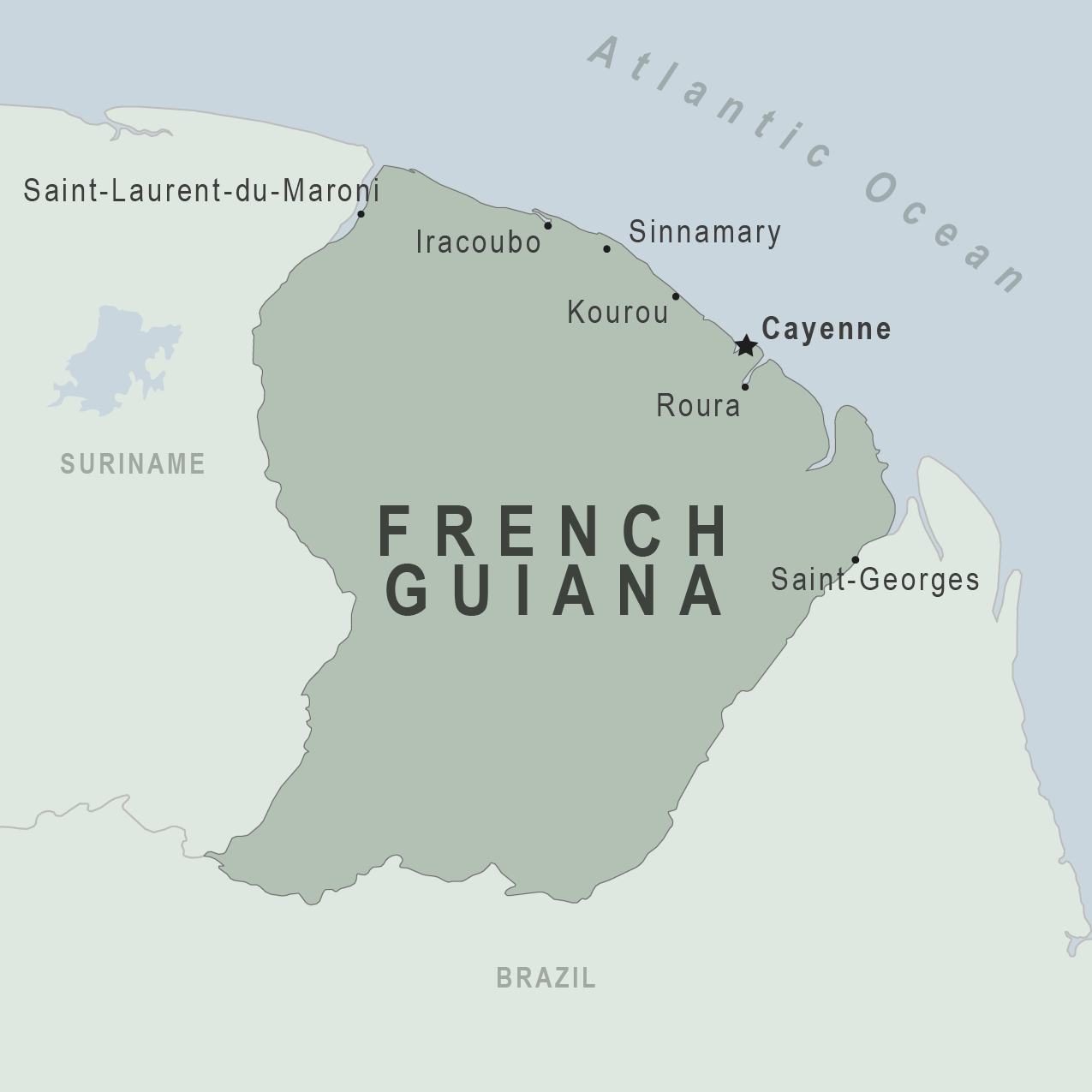
Be aware of current health issues in French Guiana. Learn how to protect yourself.
Level 1 Practice Usual Precautions
- Dengue in the Americas April 18, 2024 Dengue is a risk in many parts of Central and South America, Mexico, and the Caribbean. Some countries are reporting increased numbers of cases of the disease. Travelers to the Americas can protect themselves by preventing mosquito bites. Destination List: Argentina, Brazil, Colombia, Costa Rica, Ecuador, including the Galápagos Islands, French Guiana (France), Guadeloupe, Guatemala, Martinique (France), Mexico, Nicaragua, Panama, Paraguay, Peru, Turks and Caicos Islands (U.K.), Uruguay
⇧ Top
Check the vaccines and medicines list and visit your doctor at least a month before your trip to get vaccines or medicines you may need. If you or your doctor need help finding a location that provides certain vaccines or medicines, visit the Find a Clinic page.
Routine vaccines
Recommendations.
Make sure you are up-to-date on all routine vaccines before every trip. Some of these vaccines include
- Chickenpox (Varicella)
- Diphtheria-Tetanus-Pertussis
- Flu (influenza)
- Measles-Mumps-Rubella (MMR)
Immunization schedules
All eligible travelers should be up to date with their COVID-19 vaccines. Please see Your COVID-19 Vaccination for more information.
COVID-19 vaccine
Hepatitis A
Recommended for unvaccinated travelers one year old or older going to French Guiana.
Infants 6 to 11 months old should also be vaccinated against Hepatitis A. The dose does not count toward the routine 2-dose series.
Travelers allergic to a vaccine component or who are younger than 6 months should receive a single dose of immune globulin, which provides effective protection for up to 2 months depending on dosage given.
Unvaccinated travelers who are over 40 years old, immunocompromised, or have chronic medical conditions planning to depart to a risk area in less than 2 weeks should get the initial dose of vaccine and at the same appointment receive immune globulin.
Hepatitis A - CDC Yellow Book
Dosing info - Hep A
Hepatitis B
Recommended for unvaccinated travelers of all ages traveling to French Guiana.
Hepatitis B - CDC Yellow Book
Dosing info - Hep B
CDC recommends that travelers going to certain areas of French Guiana take prescription medicine to prevent malaria. Depending on the medicine you take, you will need to start taking this medicine multiple days before your trip, as well as during and after your trip. Talk to your doctor about which malaria medication you should take.
Find country-specific information about malaria.
Malaria - CDC Yellow Book
Considerations when choosing a drug for malaria prophylaxis (CDC Yellow Book)
Malaria information for French Guiana.
Cases of measles are on the rise worldwide. Travelers are at risk of measles if they have not been fully vaccinated at least two weeks prior to departure, or have not had measles in the past, and travel internationally to areas where measles is spreading.
All international travelers should be fully vaccinated against measles with the measles-mumps-rubella (MMR) vaccine, including an early dose for infants 6–11 months, according to CDC’s measles vaccination recommendations for international travel .
Measles (Rubeola) - CDC Yellow Book
French Guiana is free of dog rabies. However, rabies may still be present in wildlife species, particularly bats. CDC recommends rabies vaccination before travel only for people working directly with wildlife. These people may include veterinarians, animal handlers, field biologists, or laboratory workers working with specimens from mammalian species.
Rabies - CDC Yellow Book
Recommended for most travelers, especially those staying with friends or relatives or visiting smaller cities or rural areas.
Typhoid - CDC Yellow Book
Dosing info - Typhoid
Yellow Fever
Required for all arriving travelers ≥1 year old.
Recommended for all travelers ≥9 months old.
Yellow Fever - CDC Yellow Book
Avoid contaminated water
Leptospirosis
How most people get sick (most common modes of transmission)
- Touching urine or other body fluids from an animal infected with leptospirosis
- Swimming or wading in urine-contaminated fresh water, or contact with urine-contaminated mud
- Drinking water or eating food contaminated with animal urine
- Avoid contaminated water and soil
Clinical Guidance
Avoid bug bites, chagas disease (american trypanosomiasis).
- Accidentally rub feces (poop) of the triatomine bug into the bug bite, other breaks in the skin, your eyes, or mouth
- From pregnant woman to her baby, contaminated blood products (transfusions), or contaminated food or drink.
- Avoid Bug Bites
Chagas disease
- Mosquito bite
Leishmaniasis
- Sand fly bite
- An infected pregnant woman can spread it to her unborn baby
Airborne & droplet
- Breathing in air or accidentally eating food contaminated with the urine, droppings, or saliva of infected rodents
- Bite from an infected rodent
- Less commonly, being around someone sick with hantavirus (only occurs with Andes virus)
- Avoid rodents and areas where they live
- Avoid sick people
Tuberculosis (TB)
- Breathe in TB bacteria that is in the air from an infected and contagious person coughing, speaking, or singing.
Learn actions you can take to stay healthy and safe on your trip. Vaccines cannot protect you from many diseases in French Guiana, so your behaviors are important.
Eat and drink safely
Food and water standards around the world vary based on the destination. Standards may also differ within a country and risk may change depending on activity type (e.g., hiking versus business trip). You can learn more about safe food and drink choices when traveling by accessing the resources below.
- Choose Safe Food and Drinks When Traveling
- Water Treatment Options When Hiking, Camping or Traveling
- Global Water, Sanitation and Hygiene | Healthy Water
- Avoid Contaminated Water During Travel
You can also visit the Department of State Country Information Pages for additional information about food and water safety.
Prevent bug bites
Bugs (like mosquitoes, ticks, and fleas) can spread a number of diseases in French Guiana. Many of these diseases cannot be prevented with a vaccine or medicine. You can reduce your risk by taking steps to prevent bug bites.
What can I do to prevent bug bites?
- Cover exposed skin by wearing long-sleeved shirts, long pants, and hats.
- Use an appropriate insect repellent (see below).
- Use permethrin-treated clothing and gear (such as boots, pants, socks, and tents). Do not use permethrin directly on skin.
- Stay and sleep in air-conditioned or screened rooms.
- Use a bed net if the area where you are sleeping is exposed to the outdoors.
What type of insect repellent should I use?
- FOR PROTECTION AGAINST TICKS AND MOSQUITOES: Use a repellent that contains 20% or more DEET for protection that lasts up to several hours.
- Picaridin (also known as KBR 3023, Bayrepel, and icaridin)
- Oil of lemon eucalyptus (OLE) or para-menthane-diol (PMD)
- 2-undecanone
- Always use insect repellent as directed.
What should I do if I am bitten by bugs?
- Avoid scratching bug bites, and apply hydrocortisone cream or calamine lotion to reduce the itching.
- Check your entire body for ticks after outdoor activity. Be sure to remove ticks properly.
What can I do to avoid bed bugs?
Although bed bugs do not carry disease, they are an annoyance. See our information page about avoiding bug bites for some easy tips to avoid them. For more information on bed bugs, see Bed Bugs .
For more detailed information on avoiding bug bites, see Avoid Bug Bites .
Note: Zika is a risk in French Guiana. For more information, see Zika Travel Information .
Stay safe outdoors
If your travel plans in French Guiana include outdoor activities, take these steps to stay safe and healthy during your trip.
- Stay alert to changing weather conditions and adjust your plans if conditions become unsafe.
- Prepare for activities by wearing the right clothes and packing protective items, such as bug spray, sunscreen, and a basic first aid kit.
- Consider learning basic first aid and CPR before travel. Bring a travel health kit with items appropriate for your activities.
- If you are outside for many hours in heat, eat salty snacks and drink water to stay hydrated and replace salt lost through sweating.
- Protect yourself from UV radiation : use sunscreen with an SPF of at least 15, wear protective clothing, and seek shade during the hottest time of day (10 a.m.–4 p.m.).
- Be especially careful during summer months and at high elevation. Because sunlight reflects off snow, sand, and water, sun exposure may be increased during activities like skiing, swimming, and sailing.
- Very cold temperatures can be dangerous. Dress in layers and cover heads, hands, and feet properly if you are visiting a cold location.
Stay safe around water
- Swim only in designated swimming areas. Obey lifeguards and warning flags on beaches.
- Practice safe boating—follow all boating safety laws, do not drink alcohol if driving a boat, and always wear a life jacket.
- Do not dive into shallow water.
- Do not swim in freshwater in developing areas or where sanitation is poor.
- Avoid swallowing water when swimming. Untreated water can carry germs that make you sick.
- To prevent infections, wear shoes on beaches where there may be animal waste.
Keep away from animals
Most animals avoid people, but they may attack if they feel threatened, are protecting their young or territory, or if they are injured or ill. Animal bites and scratches can lead to serious diseases such as rabies.
Follow these tips to protect yourself:
- Do not touch or feed any animals you do not know.
- Do not allow animals to lick open wounds, and do not get animal saliva in your eyes or mouth.
- Avoid rodents and their urine and feces.
- Traveling pets should be supervised closely and not allowed to come in contact with local animals.
- If you wake in a room with a bat, seek medical care immediately. Bat bites may be hard to see.
All animals can pose a threat, but be extra careful around dogs, bats, monkeys, sea animals such as jellyfish, and snakes. If you are bitten or scratched by an animal, immediately:
- Wash the wound with soap and clean water.
- Go to a doctor right away.
- Tell your doctor about your injury when you get back to the United States.
Consider buying medical evacuation insurance. Rabies is a deadly disease that must be treated quickly, and treatment may not be available in some countries.
Reduce your exposure to germs
Follow these tips to avoid getting sick or spreading illness to others while traveling:
- Wash your hands often, especially before eating.
- If soap and water aren’t available, clean hands with hand sanitizer (containing at least 60% alcohol).
- Don’t touch your eyes, nose, or mouth. If you need to touch your face, make sure your hands are clean.
- Cover your mouth and nose with a tissue or your sleeve (not your hands) when coughing or sneezing.
- Try to avoid contact with people who are sick.
- If you are sick, stay home or in your hotel room, unless you need medical care.
Avoid sharing body fluids
Diseases can be spread through body fluids, such as saliva, blood, vomit, and semen.
Protect yourself:
- Use latex condoms correctly.
- Do not inject drugs.
- Limit alcohol consumption. People take more risks when intoxicated.
- Do not share needles or any devices that can break the skin. That includes needles for tattoos, piercings, and acupuncture.
- If you receive medical or dental care, make sure the equipment is disinfected or sanitized.
Know how to get medical care while traveling
Plan for how you will get health care during your trip, should the need arise:
- Carry a list of local doctors and hospitals at your destination.
- Review your health insurance plan to determine what medical services it would cover during your trip. Consider purchasing travel health and medical evacuation insurance.
- Carry a card that identifies, in the local language, your blood type, chronic conditions or serious allergies, and the generic names of any medications you take.
- Some prescription drugs may be illegal in other countries. Call French Guiana’s embassy to verify that all of your prescription(s) are legal to bring with you.
- Bring all the medicines (including over-the-counter medicines) you think you might need during your trip, including extra in case of travel delays. Ask your doctor to help you get prescriptions filled early if you need to.
Many foreign hospitals and clinics are accredited by the Joint Commission International. A list of accredited facilities is available at their website ( www.jointcommissioninternational.org ).
In some countries, medicine (prescription and over-the-counter) may be substandard or counterfeit. Bring the medicines you will need from the United States to avoid having to buy them at your destination.
Malaria is a risk in French Guiana. Fill your malaria prescription before you leave and take enough with you for the entire length of your trip. Follow your doctor’s instructions for taking the pills; some need to be started before you leave.
Select safe transportation
Motor vehicle crashes are the #1 killer of healthy US citizens in foreign countries.
In many places cars, buses, large trucks, rickshaws, bikes, people on foot, and even animals share the same lanes of traffic, increasing the risk for crashes.
Be smart when you are traveling on foot.
- Use sidewalks and marked crosswalks.
- Pay attention to the traffic around you, especially in crowded areas.
- Remember, people on foot do not always have the right of way in other countries.
Riding/Driving
Choose a safe vehicle.
- Choose official taxis or public transportation, such as trains and buses.
- Ride only in cars that have seatbelts.
- Avoid overcrowded, overloaded, top-heavy buses and minivans.
- Avoid riding on motorcycles or motorbikes, especially motorbike taxis. (Many crashes are caused by inexperienced motorbike drivers.)
- Choose newer vehicles—they may have more safety features, such as airbags, and be more reliable.
- Choose larger vehicles, which may provide more protection in crashes.
Think about the driver.
- Do not drive after drinking alcohol or ride with someone who has been drinking.
- Consider hiring a licensed, trained driver familiar with the area.
- Arrange payment before departing.
Follow basic safety tips.
- Wear a seatbelt at all times.
- Sit in the back seat of cars and taxis.
- When on motorbikes or bicycles, always wear a helmet. (Bring a helmet from home, if needed.)
- Avoid driving at night; street lighting in certain parts of French Guiana may be poor.
- Do not use a cell phone or text while driving (illegal in many countries).
- Travel during daylight hours only, especially in rural areas.
- If you choose to drive a vehicle in French Guiana, learn the local traffic laws and have the proper paperwork.
- Get any driving permits and insurance you may need. Get an International Driving Permit (IDP). Carry the IDP and a US-issued driver's license at all times.
- Check with your auto insurance policy's international coverage, and get more coverage if needed. Make sure you have liability insurance.
- Avoid using local, unscheduled aircraft.
- If possible, fly on larger planes (more than 30 seats); larger airplanes are more likely to have regular safety inspections.
- Try to schedule flights during daylight hours and in good weather.
Medical Evacuation Insurance
If you are seriously injured, emergency care may not be available or may not meet US standards. Trauma care centers are uncommon outside urban areas. Having medical evacuation insurance can be helpful for these reasons.
Helpful Resources
Road Safety Overseas (Information from the US Department of State): Includes tips on driving in other countries, International Driving Permits, auto insurance, and other resources.
The Association for International Road Travel has country-specific Road Travel Reports available for most countries for a minimal fee.
Maintain personal security
Use the same common sense traveling overseas that you would at home, and always stay alert and aware of your surroundings.
Before you leave
- Research your destination(s), including local laws, customs, and culture.
- Monitor travel advisories and alerts and read travel tips from the US Department of State.
- Enroll in the Smart Traveler Enrollment Program (STEP) .
- Leave a copy of your itinerary, contact information, credit cards, and passport with someone at home.
- Pack as light as possible, and leave at home any item you could not replace.
While at your destination(s)
- Carry contact information for the nearest US embassy or consulate .
- Carry a photocopy of your passport and entry stamp; leave the actual passport securely in your hotel.
- Follow all local laws and social customs.
- Do not wear expensive clothing or jewelry.
- Always keep hotel doors locked, and store valuables in secure areas.
- If possible, choose hotel rooms between the 2nd and 6th floors.
Healthy Travel Packing List
Use the Healthy Travel Packing List for French Guiana (France) for a list of health-related items to consider packing for your trip. Talk to your doctor about which items are most important for you.
Why does CDC recommend packing these health-related items?
It’s best to be prepared to prevent and treat common illnesses and injuries. Some supplies and medicines may be difficult to find at your destination, may have different names, or may have different ingredients than what you normally use.
If you are not feeling well after your trip, you may need to see a doctor. If you need help finding a travel medicine specialist, see Find a Clinic . Be sure to tell your doctor about your travel, including where you went and what you did on your trip. Also tell your doctor if you were bitten or scratched by an animal while traveling.
If your doctor prescribed antimalarial medicine for your trip, keep taking the rest of your pills after you return home. If you stop taking your medicine too soon, you could still get sick.
Malaria is always a serious disease and may be a deadly illness. If you become ill with a fever either while traveling in a malaria-risk area or after you return home (for up to 1 year), you should seek immediate medical attention and should tell the doctor about your travel history.
For more information on what to do if you are sick after your trip, see Getting Sick after Travel .
Map Disclaimer - The boundaries and names shown and the designations used on maps do not imply the expression of any opinion whatsoever on the part of the Centers for Disease Control and Prevention concerning the legal status of any country, territory, city or area or of its authorities, or concerning the delimitation of its frontiers or boundaries. Approximate border lines for which there may not yet be full agreement are generally marked.
Other Destinations
If you need help finding travel information:
Message & data rates may apply. CDC Privacy Policy
File Formats Help:
- Adobe PDF file
- Microsoft PowerPoint file
- Microsoft Word file
- Microsoft Excel file
- Audio/Video file
- Apple Quicktime file
- RealPlayer file
- Zip Archive file
Exit Notification / Disclaimer Policy
- The Centers for Disease Control and Prevention (CDC) cannot attest to the accuracy of a non-federal website.
- Linking to a non-federal website does not constitute an endorsement by CDC or any of its employees of the sponsors or the information and products presented on the website.
- You will be subject to the destination website's privacy policy when you follow the link.
- CDC is not responsible for Section 508 compliance (accessibility) on other federal or private website.
French Guiana

- 2 Other destinations
- 3.1 Climate
- 3.2 Landscape
- 3.3 Visitor information
- 5.1 By plane
- 5.2 By boat
- 5.3.1 Oyapock River Bridge
- 6.1 By boat
- 6.3 By taxi
- 6.5 By plane
- 15 Stay safe
- 16 Stay healthy
French Guiana ( French : Guyane or Guyane française ) is an overseas French department and region in the Amazonia region of South America , bordering the North Atlantic Ocean, between Brazil and Suriname . It is governed as an overseas department of France with the same rights and privileges granted to all other French departments, and it benefits financially from the arrangement.

Cities [ edit ]
- 4.938611 -52.335 1 Cayenne , the administrative capital of French Guiana
- 5.158333 -52.642778 2 Kourou , the city which hosts the space centre and Arianespace
- 5.503889 -54.028889 3 Saint-Laurent , on the Maroni River, which forms the natural border between Suriname and French Guyana.
- 3.889444 -51.801111 4 Saint-Georges , on the Oyapock River, which is the natural border between Brazil and French Guyana.
Other destinations [ edit ]
- 2.838333 -53.772222 2 Guiana Amazonian Park – the largest national park in the European Union making up for 41 per cent of French Guiana's land area
Understand [ edit ]
Originally inhabited by various indigenous peoples (Kalina, Arawak, Galibi, Palikur, Teko, Wayampi and Wayana), French Guiana was colonised by the French during the seventeenth century in the face of opposition from the indigenous Amerindians as well as the Portuguese and English. French Guiana was the site of notorious penal settlements (collectively known as Devil's Island) until 1951. The European Space Agency launches its communication satellites from Kourou . It is the only portion of mainland South America still governed by an overseas nation.
Climate [ edit ]
Tropical; hot, humid; little seasonal temperature variation and heavy rainfall throughout most of the year.
Landscape [ edit ]
Low-lying coastal plains rising to hills and small mountains, mostly an unsettled wilderness. It also consists of hill plateaus and the Tumuc-humac mountains.
Visitor information [ edit ]
- official tourism website (in French)
Talk [ edit ]
French is the official language of French Guiana (as it's a part of France), although Creole is widely spoken. The majority of the population speaks French while few understand English. However, some officials, police, and gendarmes may speak English. Because of the presence of many Brazilians and Dominicans, lots of people understand basic Portuguese and basic Spanish. On the Maroni River, Sranan Tong (Taki-taki) is often used.
Get in [ edit ]

Concerning immigration, French Guiana has different laws. French Guiana is not part of the Schengen Area , and your passport or ID-card is checked upon arrival even if you're arriving from mainland or Caribbean France. However, the department is covered by the directive for Freedom of Movement, so EU-citizens have the right to stay indefinitely. For some neighboring countries (e.g. Brazil, Suriname) it is easier to go to Paris than it is to reach Cayenne.
In addition, holding a yellow fever vaccination certificate is mandatory , regardless of citizenship or where you've recently been. Be prepared to show this certificate before boarding a plane to French Guiana, or at the border if you are arriving overland.
By plane [ edit ]
Félix Eboué Airport [dead link] ( CAY IATA ) just outside Cayenne is the only international airport and the main point of entry to the territory. Air France and Air Caraibes each have a daily flight from Paris Orly Airport , so it's relatively easy to get in from Europe. Air France and Air Guyane Express also have flights to two major French outposts in the Caribbean, namely Martinique and Guadeloupe and this is probably the best way to get in from North America and the Caribbean. Suriname Airways connects to Paramaribo and Belém (in Brazil ) with connections to other parts of South America. In addition there are a couple of seasonal charter flights from Miami Airport and various Brazilian cities. From other parts of the world, expect a complicated journey with three or four transfers.
By boat [ edit ]
From Brazil and Suriname , getting into French Guiana overland includes a 15-minute crossing by boat across Oyapoque (from Brazil) or Le Maroni (from Suriname). It's not very expensive, unless you want to take a car across, but you have to haggle .
French Guiana's main seaport is the port of Dégrad des Cannes, located on the estuary of the Mahury River, in the commune of Remire-Montjoly, a south-eastern suburb of Cayenne. However these days, freighter travel is the only possibility to get into French Guyana from further away by boat.
By car [ edit ]

From Brazil you can take a private barge across the Oiapoque River. Its owner can be contacted in St Georges or in Oiapoque. From Suriname , there is a ferry to cross the Maroni River.
Oyapock River Bridge [ edit ]
The Oyapock River Bridge is a cable-stayed bridge. It spans the Oyapock River to link the cities of Oiapoque in Brazil and Saint-Georges de l'Oyapock in French Guiana. The two towers rise to a height of 83 meters, it's 378 meters long and it has two lanes of 3.50 m wide. The vertical clearance under the bridge is 15 metres. Construction was completed in August 2011, it didn't open to traffic until March 2017.
On the French side, access is through a border checkpoint (FCP) which will present three government control: the Border Police, the Customs and the Directorate for Food, Agriculture and Forestry.
The bridge over the Oyapock is toll-free (the booths are control booths, not toll booths), and it's accessible to both vehicles and pedestrians.
By bus [ edit ]
From Macapá (Brazil) and Paramaribo (Suriname) you can get to the border by minibus, but in both cases you need to cross the river by boat and take another bus after the crossing.
Get around [ edit ]
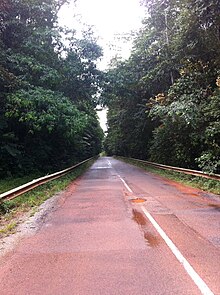
Population and therefore transportation is mostly concentrated along a rather narrow sliver of land along the coast. Heading inland from there can be complicated. There are no passenger railways nor have there ever been serious plans for any.
3,400 km of French Guiana's waterways are navigable by native craft; 460 km navigable by small oceangoing vessels and coastal and river steamers.
There is limited public transportation throughout the territory. Transport Interurbain de la Guyane operates bus routes between major towns.
Minibuses go between major towns but there may only be a few per day. They leave when they are full. Fares are fixed per route; if only going partial distance to Cayenne you may have to pay the full fare. E.g. St. Laurent du Maroni to Kourou you may have to pay the full fare to Cayenne. Fare for St. Laurent to Cayenne is €25.
By taxi [ edit ]
It's quite easy to find a taxi, but this is a very expensive way of getting around. The 15-minute ride from the airport to central Cayenne will cost €35, and to travel one way from Cayenne to Kourou, you'll have to fork out €85.
As the public transportation is limited, renting a car is also an option for getting around. Hitchhiking is a good and free alternative. A lot of locals do it as well.
An asphalted road from Régina to Saint-Georges de l'Oyapock (a town by the Brazilian border) was opened in 2004, completing the road from Cayenne to the Brazilian border. It is now possible to drive on a fully paved road from Saint-Laurent-du-Maroni on the Surinamese border to Saint-Georges de l'Oyapock on the Brazilian border.
There aren't really any roads in the inner parts of the country. If you don't want to travel by boat, Air Guyane Express [dead link] has flights from Cayenne to major inland settlements.
See [ edit ]

- Guiana Space Centre close to Kourou . There is a free tour twice a day. And for a few euros you can visit a museum. Check the rocket launch schedule for a special experience.
- Cayenne , the capital, has some museums and colonial architecture.
- The Îles du salut and Kourou used to form a penal colony, colloquially known as the Devil's Island (although in reality that's the name of just one of the islands). From Kourou you can visit the islands by boat, however the Devil's Island proper isn't open for visitors.
- Plage les Hattes at Awala-Yalimapo in the northwest is the most important nesting site in the world for giant leatherback turtles.
- The Zoo Guyane , deep in the jungle near Macouria, is a wildlife sanctuary where animals native to French Guiana wander the grounds.
- Ilet la Mère is an uninhabited island a 30-minute boat trip from the marina at Dégrad des Cannes, just outside Cayenne, that is home to the gentle and gregarious squirrel monkeys.
- Shop Cayenne's main market in Place Victor Schoelcher for locally made handicrafts and souvenirs, tropical fruits, perfumes, fragrant spices, and Asian foods such as Vietnamese noodle soup, tropical juices.
Do [ edit ]
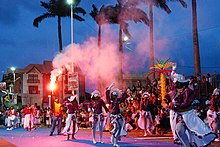
- Take a guided tour to the inland rainforest .
- Take a river trip in a pirougue .
- The Tresór Nature Reserve encompasses a huge area of the Kaw ecosystem a 2-hour drive from Cayenne. Its marshes are home to black caimans, a smaller relative of the American alligator, and the scarlet ibis.
- Enjoy the beach at Remire-Montjoly near Cayenne.
- Like in many other Catholic countries, the carnival is celebrated early in the year. In French Guiana the festivities take place between the first Sunday in January and Ash Wednesday. During the carnival people put on masks and traditional dresses and go out dancing along the streets every Sunday in Cayenne, Kourou and St.Laurent. Visitors are also welcome to dress up and participate in the parades. During the carnival the festivities continue through the night in bars and nightclubs.
Buy [ edit ]
The official currency is the euro just like in mainland France. Most purchases will be more expensive than you expect, as a lot of stuff has to be imported - even food and drinks are flown from metropolitan France. Things like electronics are really expensive. However the local rum and objects carved out of wood are great souvenirs and relatively affordable.
For daily purchases, there is a shopping centre outside Cayenne similar to the "hypermarkets" of metropolitan France. Smaller grocery and convenience stores are in the city selling not just food but other small things you might need like insect repellent, toothpaste and other hygiene articles.
GDP per capita is around half that of mainland France and unemployment hovers around 20% which makes the economic situation pretty bad. The local economy largely depends on tourism and the spaceport but gold mining is another important factor. Sadly gold mining is often done illegally and in ways harmful to the environment.
Eat [ edit ]

A typical local dish includes fish and other seafood or game meat served with rice, red beans or couac (flour made out of dried cassava) and can be rather fierce, as they often use liberal amounts of spices. What else would you expect from a region whose capital has given name to the cayenne pepper? You can of course always ask the chef to make your dish less spicy. Guyanese specialties include:
- Bouillon d'Awara - broth of awara fruit ( Astrocaryum vulgare )
- Colombo - a Creole dish with pork or chicken
- Red beans - served with game or fish
- Lentils - served with game or fish
- Kalou/Kalalou - a fish dish with spinach and okra
- Pimentade - peppered and lemon-seasoned fish in tomato sauce
- Blaf de poisson - fish prepared with court-bouillon
- Roti couniad - fish barbecued with its scale
In some restaurants you may find meat of threatened species (such as caiman and certain turtles) on the menu. Think twice before ordering any of those exotic dishes.
Drink [ edit ]
Tafia is a local hard liquor that is widely drunk and used for medical purposes. One can drink it with lime juice or with salt and it's used in a drink called Planter, excellent. Rum and ti-punch are also common.
Wassaï juice (also known as acaï) is a drink consumed cold. The pulp of the fruit which comes from the Wassaï palm is first soaked, then kneaded and finally filtered. Its pulp gives a creamy drink that can be drunk by mixing it with sweetened milk.
Wassaï juice can also be enjoyed with meat, fish or even served with couac (traditional cassava flour from French Guyana). This drink is very popular in French Guiana for its anti-oxidants, energy content and for its protein and fatty acid contributions.
Sleep [ edit ]

Hotels are rather expensive in French Guiana: at many of them, you'll need to spend well over €100 for a night. For cheaper accommodation, there are also a couple of hostels; they don't have web pages.
The cheapest accommodation is also the most adventurous one. For a few euros you can sleep in a hammock in a traditional carbet , a shelter without walls. This is the only type of accommodation available in the rainforest.
Learn [ edit ]
There are two higher education institutions in the departement: L'Université des Antilles et de la Guyane (UAG) and Le Pôle Universitaire Guyanais (PUG) [dead link] .
Work [ edit ]

For European people coming from an EU country, working in French Guiana is allowed without a problem. If you're from outside the EU, you will probably need a work permit - check with the French Embassy in your country. Do not forget though that the unemployment rate is high. But if you work in the health sector (doctor, nurse), it will be much easier. French proficiency is essential.
Voluntary service: Volontariat Civil à l'Aide Technique (VCAT) or French Civic Service . Conditions: you must be French or from another EU-member state or a country belonging to the European Economic Area. You must be over 18 and under 28 years old (inclusive). You must not have had your civic rights revoked by a court or have been convicted of certain offences.
Stay safe [ edit ]
It is advisable to pay extreme attention not to lose your passport: there are very few consulates in French Guiana as such services are provided by consulates in Paris , so you will be required to go to Paris in case you need your passport to be reissued if you are not an EU citizen.
Some parts of the department are patrolled by the French Foreign Legion, including the Kourou Space Centre and areas where illegal gold mining have occurred.
Stay healthy [ edit ]
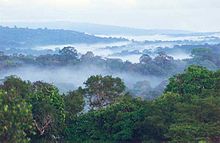
Vaccination against yellow fever is necessary; without a yellow fever vaccination certificate you are not allowed into French Guiana. Also two other tropical mosquito-borne diseases, namely malaria and dengue fever are endemic to the region. In other words, do protect yourself from mosquitoes and ticks - long sleeved clothing and insect repellent are recommended. The risk is lower in the cities and towns. Swimming in still-standing water is not a good idea as it often contains parasites. This is less of a problem in rivers. However water in nature is not safe for drinking.
Poisonous snakes and spiders also pose a risk, and you should definitely wear boots in the rainforest and not "explore" hollow trees where these creatures often lurk. Remember that it can take a very long time to get to a hospital if you get bitten.
Other health risks include cholera, typhoid fever and rabies.
Healthcare is almost up to the same standards as in mainland France, although slightly more expensive. There are hospitals in Cayenne and Kourou. Concerning tropical diseases, they are better equipped and more experienced than mainland hospitals.
As in the rest of France, French and EU residents get most of their health care costs covered by the compulsory health insurance plan (sécurité sociale). This plan does not cover nonresidents, who will be expected to pay full price. Travel health insurance is thus advised.
Visitors from the European Union should bring an EHIC (European Health Insurance Card) - obtained in their own country before departure. The E111 form is no longer valid. Ask for details at your local health care organisation.
Respect [ edit ]
The Creole culture is deeply rooted in French Guyana, but the population is still proud of being French. Hence insinuating they aren't really French is likely to cause offense. For example mainland France should be referred to as metropolitan/mainland France ("métropole"), not "France". The locals are happy to answer any questions about their culture, history and religion. However, slavery is a sensitive subject that should be avoided.
Connect [ edit ]
For cheaper local calls and calls to mainland France it's advisable to buy a local prepaid SIM card. The Alizé cards by France Telecom offer 13 hours of communication for €15.
There are three GSM operators: Orange Caraïbe, Digicel and Only.
- Has custom banner
- Has mapframe
- Has map markers
- Articles with dead external links
- Usable regions
- Usable articles
- Region articles
- Bottom-level regions
- Has Geo parameter
- South America
- All destination articles
- Pages with maps
Navigation menu
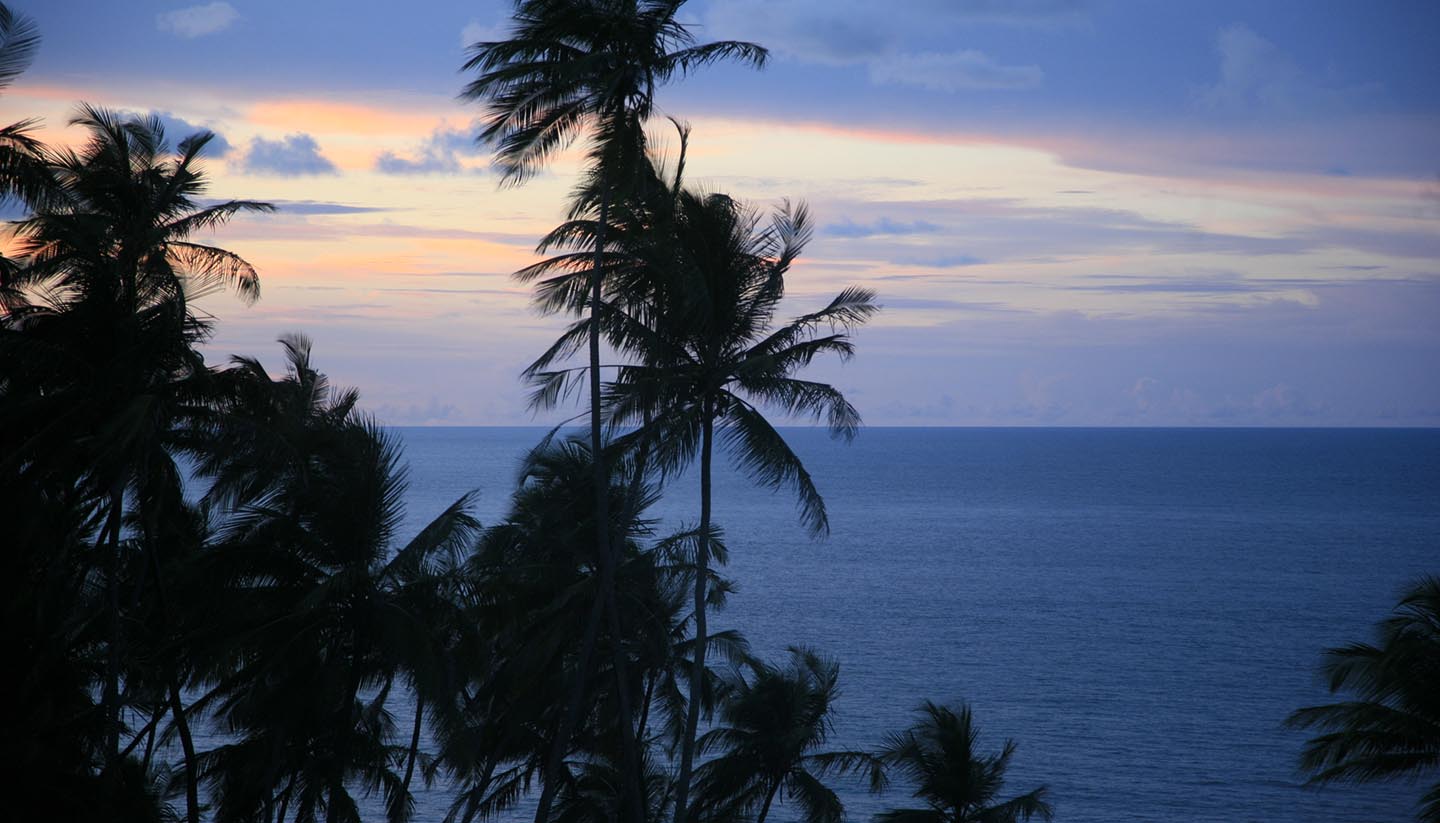
Introducing French Guiana
About french guiana.
- Images of French Guiana
- History, language & culture
- Weather & geography
Plan your trip
- Travel to French Guiana
- Where to stay
While you’re there
- Things to see & do
- Shopping & nightlife
- Food & drink
- Getting around
French Overseas Possessions: Key Info
- Passport & visa
- Public Holidays
- Money & duty free
Book your flights
French Guiana travel guide
French Guiana is a tropical backwater with intriguing highlights to satisfy the curious traveller: from rich wildlife encounters to cultural curiosities that sound like the setting for a Evelyn Waugh novel, including the launch site of the European Space Programme, chilling ruins of notorious penal colonies, and isolated indigenous communities.
Tucked between the Brazilian Amazon and the Atlantic Ocean, the sparsely populated country harbours an abundance of plants and animals, well protected in parks and reserves. As an overseas French département, French is the official language. With the Euro as its currency, prices are on a par with Europe, not cheap.
Despite its lack of beaches and swampy coastline, exploration of the jungle-clad interior reveals rewarding sights. St Laurent is the best gateway, an appealing colonial city and former penal transportation centre. Guided tours of the prison are available, and boats go down the Marowijne River, to visit Amerindian and Maroon villages. The welcoming locals have handicrafts for sale, and you can trek to beaches where leatherback turtles lay their eggs.
French Guiana’s most notorious penal camp was on the Iles du Salut, which include the infamous Devil's Island where political prisoners were held. Some 80,000 men died here from cruel hardship, disease and execution. Alfred Dreyfus was the most famous inmate, but it was Henri Charriere who recreated the camp’s horrors in his book, Papillon. Tours of the restored ruins relive this grim history, lightened up by the island’s rich wildlife, including parrots, monkeys and turtles.
By way of contrast, the other major attraction for visitors is the Ariane Space Station, Europe’s satellite launch centre. From the small coastal city of Kourou you can visit the centre, and watch rocket launches. Nearby are some decent beaches to lounge on afterwards, or visit the village of Sinnamary, where an Indonesian community sells handicrafts and art works.
83,534 sq km (32,253 sq miles).
275,688 (UN estimate 2016).
3 per sq km.
French Guiana is an Overseas Department of France and, as such, is an integral part of the French Republic.
President Emmanuel Macron since 2017, represented by prefect Antoine Poussier since 2023.
President Gabriel Serville since 2021.
Travel Advice
Before you travel .
No travel can be guaranteed safe. Read all the advice in this guide and any specific travel advice that applies to you:
- women travellers
- disabled travellers
- LGBT+ travellers
- solo and independent travel
- volunteering and adventure travel
Travel insurance
If you choose to travel, research your destinations and get appropriate travel insurance . Insurance should cover your itinerary, planned activities and expenses in an emergency.
About FCDO travel advice
The Foreign, Commonwealth & Development Office ( FCDO ) provides advice about risks of travel to help British nationals make informed decisions. Find out more about FCDO travel advice .
Follow and contact FCDO travel on Twitter , Facebook and Instagram . You can also sign up to get email notifications when this advice is updated.
This information is for people travelling on a full ‘British citizen’ passport from the UK. It is based on the UK government’s understanding of the current rules for the most common types of travel.
French Guiana is an Overseas Department of France (‘Département d’Outre-Mer’). The authorities in French Guiana set and enforce entry requirements. If you’re not sure how these requirements apply to you, contact the French Consulate General in the UK .
COVID-19 rules
There are no COVID-19 testing or vaccination requirements for travellers entering French Guiana.
Passport validity requirements
Your passport must have an ‘expiry date’ at least 3 months after the date you plan to leave French Guiana.
Check with your travel provider that your passport and other travel documents meet requirements. Renew your passport if you need to.
You will be denied entry if you do not have a valid travel document or try to use a passport that has been reported lost or stolen.
Visa requirements
French Guiana is an Overseas Department of France and is part of the EU.
You can visit French Guiana without a visa for up to 90 days for tourism or business. To stay longer, to work or study, for business travel or for other reasons, check the visa application process and timelines on the French visa website.
UK residents of French Guiana
Carry your residence document, as well as your passport, when entering or exiting French Guiana. If you’ve applied but not yet received your document, carry your certificate of application. You will have received this as an email.
Vaccine requirements
To enter French Guiana, you must have a certificate to prove you’ve had a yellow fever vaccination.
You may need a yellow fever certificate for onward travel to some other countries, due to the risk of yellow fever in French Guiana.
For full details about medical entry requirements and recommended vaccinations, see TravelHealthPro’s French Guiana guide .
Customs rules
There are strict rules about goods you can take into or out of French Guiana (in French). You must declare anything that may be prohibited or subject to tax or duty.
Taking food into French Guiana
You cannot take meat, milk or products containing them into EU countries . There are some exceptions such as powdered baby milk, baby food and special foods or pet feed required for medical reasons.
Taking money into French Guiana
Check what cash and valuables you need to declare to bring them into French Guiana.
Terrorism
There is a high threat of terrorist attack globally affecting UK interests and British nationals, including from groups and individuals who view the UK and British nationals as targets. Stay aware of your surroundings at all times.
UK Counter Terrorism Policing has information and advice on staying safe abroad and what to do in the event of a terrorist attack. Find out how to reduce your risk from terrorism while abroad .
Terrorism in French Guiana
Although there is no recent history of terrorism in French Guiana, attacks cannot be ruled out.
Protecting yourself and your belongings
Crime levels are low, but there is a risk of being robbed in some areas of Cayenne, especially after dark.
To reduce your personal risk:
- avoid isolated areas including secluded beaches, particularly after dark
- take a licensed or pre-arranged taxi after visiting an ATM in case you are followed
- do not wear expensive-looking jewellery or watches
- go into a shop or café to use your mobile
- place most of your cash and your valuables and travel documents in a safety deposit box or hotel safe
Outdoor activities and adventure tourism
Swimming safety .
See water safety on holiday from the Royal Life Saving Society.
Scuba diving
Diving schools may have limited resources and do not always observe safety and maintenance standards. Always:
- check a dive operator’s credentials
- check the conditions on your insurance policy – some policies require dive instructors to have certain qualifications
- make sure safety equipment is available on the boat, particularly oxygen
- ask about safety precautions, including the ability to transfer divers to a hyperbaric chamber
If you have not had any previous diving experience, check what to do if something goes wrong, including how to call for help while at sea.
Transport risks
Road travel .
If you are planning to drive in French Guiana, see information on driving abroad and check the rules of the road in the RAC’s France guide as French driving laws apply. The guide lists driving regulations and other legal requirements you need to be aware of.
You can use a UK photocard driving licence to drive in French Guiana. If you still have a paper driving licence, you may need to update it to a photocard licence or get the correct version of the international driving permit ( IDP ) as well.
Hire car companies often have stricter requirements for their customers, such as a year of driving experience, a higher minimum age and holding an IDP .
Drink-driving is a serious offence in French Guiana. The blood alcohol limit (0.05%) is lower than in England, Wales and Northern Ireland. If you are tested and found to be above the limit, you may get a fine and possible imprisonment.

Extreme weather and natural disasters
Find out what you can do to prepare for and respond to extreme weather and natural hazards .
Hurricanes
There’s a risk of tropical storms during the rainy season from December to July.
Monitor local news and check World Meteorological Organization and US National Hurricane Center weather reports for the region.
Before you travel check that:
your destination can provide the healthcare you may need
you have appropriate travel insurance for local treatment or unexpected medical evacuation
This is particularly important if you have a health condition or are pregnant.
Emergency medical number
Call 15 or 112 and ask for an ambulance.
Contact your insurance company quickly if you’re referred to a medical facility for treatment.
Vaccine recommendations and health risks
At least 8 weeks before your trip:
- check the latest vaccine recommendations for French Guiana
- see where to get vaccines and whether you have to pay on the NHS travel vaccinations page
See what health risks you’ll face in French Guiana, including:
- Zika virus
- yellow fever
Medication
The legal status and regulation of some medicines prescribed or bought in the UK can be different in other countries.
Read best practice when travelling with medicines on TravelHealthPro .
Healthcare in French Guiana
General health care facilities in French Guiana are very good. The standard of health service hospitals and GP practices is equivalent to mainland France.
Health insurance cards
To get medically necessary state healthcare in French Guiana, you need a Global Health Insurance Card ( GHIC ) or a European Health Insurance Card ( EHIC ).
The NHS’s getting healthcare abroad webpage has details about:
- how to apply for a GHIC
- how to get temporary cover if you lose your card or it does not arrive in time
- who qualifies for a new EHIC instead of a GHIC
- what treatment counts as medically necessary
A GHIC or EHIC is not an alternative to travel insurance. You may have costs your GHIC or EHIC does not cover, including:
- changes to travel and accommodation bookings
- additional standard costs for treatment
- medical repatriation to the UK
- treatment that is ruled non-urgent
- private healthcare
- private clinics
Healthcare for residents
If you plan to live in French Guiana, consult the UK Department for Work and Pensions ( DWP ) about long-term entitlement to healthcare under the French national system.
DWP Overseas Medical Benefits helpline: +44 (0)191 218 1999
You can also get English-language information about French social security services online or on +33 (0)820 90 42 12. You can get French-language information online about state services in French Guiana .
Travel and mental health
Read FCDO guidance on travel and mental health . There is also mental health guidance on TravelHealthPro .
The Foreign, Commonwealth & Development Office ( FCDO ) cannot provide tailored advice for individual trips. Read this travel advice and carry out your own research before deciding whether to travel.
Emergency services in French Guiana
Telephone: 112 (emergency switchboard)
Ambulance: 15
Police: 17
Contact your travel provider and insurer
Contact your travel provider and your insurer if you are involved in a serious incident or emergency abroad. They will tell you if they can help and what you need to do.
Refunds and changes to travel
For refunds or changes to travel, contact your travel provider. You may also be able to make a claim through insurance. However, insurers usually require you to talk to your travel provider first.
Find out more about changing or cancelling travel plans , including:
- where to get advice if you are in a dispute with a provider
- how to access previous versions of travel advice to support a claim
Support from FCDO
FCDO has guidance on staying safe and what to do if you need help or support abroad, including:
- getting help if you’re a victim of crime
- what to do if you’re in hospital
- if you’re affected by a crisis , such as a terrorist attack
Contacting FCDO
Follow and contact FCDO travel on Twitter , Facebook and Instagram . You can also sign up to get email notifications when this travel advice is updated.
You can also contact FCDO online .
Help abroad in an emergency
There is no British Embassy in French Guiana and the British Embassy in Paris, France , supports British nationals who need emergency help from the UK government.
FCDO in London
You can call FCDO in London if you need urgent help because something has happened to a friend or relative abroad.
Telephone: 020 7008 5000 (24 hours)
Find out about call charges

Book a Hotel
© Columbus Travel Media Ltd. All rights reserved 2024
- Skip to main content
- Skip to "About this site"
Language selection
Search travel.gc.ca.
Help us to improve our website. Take our survey !
COVID-19: travel health notice for all travellers
French Guiana travel advice
Latest updates: The Health section was updated - travel health information (Public Health Agency of Canada)
Last updated: April 15, 2024 13:01 ET
On this page
Safety and security, entry and exit requirements, laws and culture, natural disasters and climate, french guiana - take normal security precautions.
Take normal security precautions in French Guiana
Back to top
Petty Crime
Petty crime, such as pickpocketing and purse snatching, occurs regularly, particularly in urban areas.
Thefts commonly occur:
- in popular tourist areas, including viewpoints
- on buses, at bus stations as well as in airport terminals
- in hotel lobbies
- at restaurants, including on patios located near streets
While in French Guiana:
- ensure that your personal belongings, including your passport and other travel documents, are secure at all times
- avoid isolated or deserted areas
- avoid walking alone after dark
- avoid showing signs of affluence
Violent crime
Violent crime occurs occasionally.
Violent incidents commonly include burglaries of private homes, during which acts of violence are committed against the occupants.
- Stay in reputable accommodation with adequate security measures
- Keep doors and windows locked at all times
- In case of an attack, do not resist
Credit card, debit card, and ATM fraud can occur.
When using credit or debit cards at an ATM or with a card reader:
- cover the keypad with one hand when entering your PIN
- pay careful attention when your cards are being handled by others
- avoid using card readers with an irregular or unusual feature
- use ATMs located in well-lit public areas or inside a bank or business
- check for any unauthorized transactions on your account statements
Overseas fraud
Adventure tourism
Outdoor activities, such as jungle expeditions and other adventure sports can be dangerous if unprepared. Trails are not always marked and weather conditions can change rapidly, even in the summer.
Some gold miners operating in the Amazon rainforest also carry out illegal activities. You could find yourself in the wrong place at the wrong time.
You may need a permit to access certain parts of the Amazon rainforest.
If you intend to participate in adventure tourism activities:
- never do so alone, and don’t part with your expedition companions
- obtain detailed information on your activity and on the environment in which you will be before setting out
- consider hiring an experienced guide from a reputable company
- inquire with the local authorities if the area where you plan to travel requires a special permit or permission
- buy travel insurance that includes helicopter rescue and medical evacuation
- ensure that your physical condition is good enough to meet the challenges of your activity
- avoid venturing off marked trails
- ensure that you’re adequately equipped and bring sufficient water
- stay informed of weather and other conditions that may pose a hazard
- refrain from using facilities or equipment if you have doubts on their safety
- inform a family member or friend of your itinerary
French Guiana - Tourism Committee of French Guiana
Water activities
Coastal waters can be dangerous.
Tidal changes and strong winds can cause hazardous currents and riptides.
Some beaches are unsupervised.
- Don’t swim alone
- Consult residents and tour operators for information on possible hazards and safe swimming areas
- Don’t dive into unknown waters, as hidden rocks or shallow depths can cause serious injury or death
- Always obey warning flags advertising dangerous conditions
- Watch out for weather alerts or warnings
- Follow the advice of local authorities
The rivers of French Guiana are, along with air travel, the only way to access the interior of the territory.
If you plan to navigate the river network:
- be sure that you have a good understanding of local laws and regulations
- engage an experienced guide from a reputable company
- do not overload your boat
- have personal safety devices available for all passengers
- carry a VHF marine radio to signal your position in case of an emergency
Water safety abroad
Telecommunications
The telecommunications network is not always reliable.
Cellular service might be intermittent, especially outside of cities. It is non-existent in certain regions of the Amazon rainforest.
- Don’t rely on your cellphone in an emergency, especially outside of population centres
- Avoid travelling alone
- Inform a family member or friend of your itinerary
Demonstrations
Demonstrations may occur.
Even peaceful demonstrations can turn violent at any time. They can also lead to disruptions to traffic and public transportation.
- Avoid areas where demonstrations and large gatherings are taking place
- Follow the instructions of local authorities
- Monitor local media for information on ongoing demonstrations
Mass gatherings (large-scale events)
Road safety
Road safety is overall very good throughout the territory.
Road conditions
Major roads are paved and well maintained.
Driving in remote areas could be dangerous due to:
- inadequate lighting
- insufficient road signage
- less-developed rural roads
Driving habits
Motorcyclists have little regard for traffic regulations. They could be reckless and drive at excessive speeds.
If you choose to drive in French Guiana:
- plan your route in advance, especially if you plan on travelling to rural areas
- avoid travelling after dark
- always carry a cellular phone and charger
- check local cellular phone coverage, which remains unstable in the Amazon rainforest
- advise a relative of your anticipated itinerary and route
- ask about insurance coverage options for roadside assistance when you rent a vehicle
Public transportation
Public taxis and vans are relatively safe.
A bus service serves the communes of:
- Montsinéry-Tonnegrande
- Remire-Montjoly
Taxis and shared taxis are available in coastal areas.
Shared taxis don’t follow a set schedule. They leave for their destination when the van is full. In addition to shared taxis operated by private companies, the government provides a public shared taxi service, the TIG. Every TIG vehicle carries an identifying “TIG” sticker.
A ferry service operates on the Maroni river, allowing passengers to cross the river border with Suriname.
Pirogues or dugout canoes equipped with outboard motors are the essential mode of public transportation along French Guiana’s river network. They are registered and security standards are generally respected.
Fares vary depending on the distance travelled.
Ensure to have life jackets available for all passengers.
We do not make assessments on the compliance of foreign domestic airlines with international safety standards.
Information about foreign domestic airlines
French Guiana is an overseas department of France. However, it is not part of the Schengen area.
Every country or territory decides who can enter or exit through its borders. The Government of Canada cannot intervene on your behalf if you do not meet your destination’s entry or exit requirements.
We have obtained the information on this page from the French authorities. It can, however, change at any time.
Verify this information with the Foreign Representatives in Canada .
Entry requirements vary depending on the type of passport you use for travel.
Before you travel, check with your transportation company about passport requirements. Its rules on passport validity may be more stringent than the country’s entry rules.
Regular Canadian passport
Your passport must be valid for at least 3 months beyond the date you expect to leave French Guiana.
Passport for official travel
Different entry rules may apply.
Official travel
Passport with “X” gender identifier
While the Government of Canada issues passports with an “X” gender identifier, it cannot guarantee your entry or transit through other countries. You might face entry restrictions in countries that do not recognize the “X” gender identifier. Before you leave, check with the closest foreign representative for your destination.
Other travel documents
Different entry rules may apply when travelling with a temporary passport or an emergency travel document. Before you leave, check with the closest foreign representative for your destination.
Useful links
- Foreign Representatives in Canada
- Canadian passports
Tourist visa: not required for stays up to 90 days Residence visa: required Work visa: required Business visa: required Student visa: required
Other entry requirements
Customs officials may ask you to show them:
- a return or onward ticket
- proof that you have a place to stay
- proof that you have sufficient funds for the duration of your stay
Drug screening
French Guiana is reinforcing its screening measures at Félix-Éboué international airport to combat drug trafficking. Customs officials may:
- search your luggage
- take your fingerprints
- X-ray you upon arrival or departure
Allow enough time for customs screening.
Children and travel
Learn more about travelling with children .
Yellow fever
Learn about potential entry requirements related to yellow fever (vaccines section).
Relevant Travel Health Notices
- Global Measles Notice - 13 March, 2024
- Zika virus: Advice for travellers - 31 August, 2023
- COVID-19 and International Travel - 13 March, 2024
- Dengue: Advice for travellers - 8 April, 2024
This section contains information on possible health risks and restrictions regularly found or ongoing in the destination. Follow this advice to lower your risk of becoming ill while travelling. Not all risks are listed below.
Consult a health care professional or visit a travel health clinic preferably 6 weeks before you travel to get personalized health advice and recommendations.
Routine vaccines
Be sure that your routine vaccinations , as per your province or territory , are up-to-date before travelling, regardless of your destination.
Some of these vaccinations include measles-mumps-rubella (MMR), diphtheria, tetanus, pertussis, polio, varicella (chickenpox), influenza and others.
Pre-travel vaccines and medications
You may be at risk for preventable diseases while travelling in this destination. Talk to a travel health professional about which medications or vaccines may be right for you, based on your destination and itinerary.
There is a risk of hepatitis A in this destination. It is a disease of the liver. People can get hepatitis A if they ingest contaminated food or water, eat foods prepared by an infectious person, or if they have close physical contact (such as oral-anal sex) with an infectious person, although casual contact among people does not spread the virus.
Practise safe food and water precautions and wash your hands often. Vaccination is recommended for all travellers to areas where hepatitis A is present.
Yellow fever is a disease caused by a flavivirus from the bite of an infected mosquito.
Travellers get vaccinated either because it is required to enter a country or because it is recommended for their protection.
- There is a risk of yellow fever in this country.
Country Entry Requirement*
- Proof of yellow fever vaccination for travellers from all countries.
Recommendation
- Vaccination is recommended.
- Contact a designated Yellow Fever Vaccination Centre well in advance of their trip to arrange for vaccination.
- Discuss travel plans, activities, and destinations with a health care professional.
- Protect yourself from mosquito bites .
About Yellow Fever
Yellow Fever Vaccination Centres in Canada * It is important to note that country entry requirements may not reflect your risk of yellow fever at your destination. It is recommended that you contact the nearest diplomatic or consular office of the destination(s) you will be visiting to verify any additional entry requirements.
Measles is a highly contagious viral disease. It can spread quickly from person to person by direct contact and through droplets in the air.
Anyone who is not protected against measles is at risk of being infected with it when travelling internationally.
Regardless of where you are going, talk to a health care professional before travelling to make sure you are fully protected against measles.
Hepatitis B is a risk in every destination. It is a viral liver disease that is easily transmitted from one person to another through exposure to blood and body fluids containing the hepatitis B virus. Travellers who may be exposed to blood or other bodily fluids (e.g., through sexual contact, medical treatment, sharing needles, tattooing, acupuncture or occupational exposure) are at higher risk of getting hepatitis B.
Hepatitis B vaccination is recommended for all travellers. Prevent hepatitis B infection by practicing safe sex, only using new and sterile drug equipment, and only getting tattoos and piercings in settings that follow public health regulations and standards.
Coronavirus disease (COVID-19) is an infectious viral disease. It can spread from person to person by direct contact and through droplets in the air.
It is recommended that all eligible travellers complete a COVID-19 vaccine series along with any additional recommended doses in Canada before travelling. Evidence shows that vaccines are very effective at preventing severe illness, hospitalization and death from COVID-19. While vaccination provides better protection against serious illness, you may still be at risk of infection from the virus that causes COVID-19. Anyone who has not completed a vaccine series is at increased risk of being infected with the virus that causes COVID-19 and is at greater risk for severe disease when travelling internationally.
Before travelling, verify your destination’s COVID-19 vaccination entry/exit requirements. Regardless of where you are going, talk to a health care professional before travelling to make sure you are adequately protected against COVID-19.
The best way to protect yourself from seasonal influenza (flu) is to get vaccinated every year. Get the flu shot at least 2 weeks before travelling.
The flu occurs worldwide.
- In the Northern Hemisphere, the flu season usually runs from November to April.
- In the Southern Hemisphere, the flu season usually runs between April and October.
- In the tropics, there is flu activity year round.
The flu vaccine available in one hemisphere may only offer partial protection against the flu in the other hemisphere.
The flu virus spreads from person to person when they cough or sneeze or by touching objects and surfaces that have been contaminated with the virus. Clean your hands often and wear a mask if you have a fever or respiratory symptoms.
Malaria is a serious and sometimes fatal disease that is caused by parasites spread through the bites of mosquitoes. There is a risk of malaria in certain areas and/or during a certain time of year in this destination.
Antimalarial medication may be recommended depending on your itinerary and the time of year you are travelling. Consult a health care professional or visit a travel health clinic before travelling to discuss your options. It is recommended to do this 6 weeks before travel, however, it is still a good idea any time before leaving. Protect yourself from mosquito bites at all times: • Cover your skin and use an approved insect repellent on uncovered skin. • Exclude mosquitoes from your living area with screening and/or closed, well-sealed doors and windows. • Use insecticide-treated bed nets if mosquitoes cannot be excluded from your living area. • Wear permethrin-treated clothing. If you develop symptoms similar to malaria when you are travelling or up to a year after you return home, see a health care professional immediately. Tell them where you have been travelling or living.
In this destination, rabies may be present in some wildlife species, including bats. Rabies is a deadly disease that spreads to humans primarily through bites or scratches from an infected animal.
If you are bitten or scratched by an animal while travelling, immediately wash the wound with soap and clean water and see a health care professional.
Before travel, discuss rabies vaccination with a health care professional. It may be recommended for travellers who will be working directly with wildlife.
Safe food and water precautions
Many illnesses can be caused by eating food or drinking beverages contaminated by bacteria, parasites, toxins, or viruses, or by swimming or bathing in contaminated water.
- Learn more about food and water precautions to take to avoid getting sick by visiting our eat and drink safely abroad page. Remember: Boil it, cook it, peel it, or leave it!
- Avoid getting water into your eyes, mouth or nose when swimming or participating in activities in freshwater (streams, canals, lakes), particularly after flooding or heavy rain. Water may look clean but could still be polluted or contaminated.
- Avoid inhaling or swallowing water while bathing, showering, or swimming in pools or hot tubs.
Typhoid is a bacterial infection spread by contaminated food or water. Risk is higher among children, travellers going to rural areas, travellers visiting friends and relatives or those travelling for a long period of time.
Travellers visiting regions with a risk of typhoid, especially those exposed to places with poor sanitation, should speak to a health care professional about vaccination.
Insect bite prevention
Many diseases are spread by the bites of infected insects such as mosquitoes, ticks, fleas or flies. When travelling to areas where infected insects may be present:
- Use insect repellent (bug spray) on exposed skin
- Cover up with light-coloured, loose clothes made of tightly woven materials such as nylon or polyester
- Minimize exposure to insects
- Use mosquito netting when sleeping outdoors or in buildings that are not fully enclosed
To learn more about how you can reduce your risk of infection and disease caused by bites, both at home and abroad, visit our insect bite prevention page.
Find out what types of insects are present where you’re travelling, when they’re most active, and the symptoms of the diseases they spread.
There is a risk of chikungunya in this country. The risk may vary between regions of a country. Chikungunya is a virus spread through the bite of an infected mosquito. Chikungunya can cause a viral disease that typically causes fever and pain in the joints. In some cases, the joint pain can be severe and last for months or years.
Protect yourself from mosquito bites at all times. There is no vaccine available for chikungunya.
- In this country, dengue is a risk to travellers. It is a viral disease spread to humans by mosquito bites.
- Dengue can cause flu-like symptoms. In some cases, it can lead to severe dengue, which can be fatal.
- The level of risk of dengue changes seasonally, and varies from year to year. The level of risk also varies between regions in a country and can depend on the elevation in the region.
- Mosquitoes carrying dengue typically bite during the daytime, particularly around sunrise and sunset.
- Protect yourself from mosquito bites . There is no vaccine or medication that protects against dengue.
Zika virus is a risk in this country.
Zika virus is primarily spread through the bite of an infected mosquito. It can also be sexually transmitted. Zika virus can cause serious birth defects.
During your trip:
- Prevent mosquito bites at all times.
- Use condoms correctly or avoid sexual contact, particularly if you are pregnant.
If you are pregnant or planning a pregnancy, you should discuss the potential risks of travelling to this destination with your health care provider. You may choose to avoid or postpone travel.
For more information, see Zika virus: Pregnant or planning a pregnancy.
American trypanosomiasis (Chagas disease) is a risk in this country. It is caused by a parasite spread by infected triatomine bugs. The infection can be inactive for decades, but humans can eventually develop complications causing disability and even death.
Risk is generally low for most travellers. Protect yourself from triatomine bugs, which are active at night, by using mosquito nets if staying in poorly-constructed housing. There is no vaccine available for Chagas disease.
Animal precautions
Some infections, such as rabies and influenza, can be shared between humans and animals. Certain types of activities may increase your chance of contact with animals, such as travelling in rural or forested areas, camping, hiking, and visiting wet markets (places where live animals are slaughtered and sold) or caves.
Travellers are cautioned to avoid contact with animals, including dogs, livestock (pigs, cows), monkeys, snakes, rodents, birds, and bats, and to avoid eating undercooked wild game.
Closely supervise children, as they are more likely to come in contact with animals.
Person-to-person infections
Stay home if you’re sick and practise proper cough and sneeze etiquette , which includes coughing or sneezing into a tissue or the bend of your arm, not your hand. Reduce your risk of colds, the flu and other illnesses by:
- washing your hands often
- avoiding or limiting the amount of time spent in closed spaces, crowded places, or at large-scale events (concerts, sporting events, rallies)
- avoiding close physical contact with people who may be showing symptoms of illness
Sexually transmitted infections (STIs) , HIV , and mpox are spread through blood and bodily fluids; use condoms, practise safe sex, and limit your number of sexual partners. Check with your local public health authority pre-travel to determine your eligibility for mpox vaccine.
HIV (Human Immunodeficiency Virus) is a virus that attacks and impairs the immune system, resulting in a chronic, progressive illness known as AIDS (Acquired Immunodeficiency Syndrome).
High risk activities include anything which puts you in contact with blood or body fluids, such as unprotected sex and exposure to unsterilized needles for medications or other substances (for example, steroids and drugs), tattooing, body-piercing or acupuncture.
Medical services and facilities
Access to high quality healthcare is limited. Quality of care varies greatly throughout the country.
There are public and private health care providers, including hospitals and clinics, in French Guiana. Most hospitals and clinics are in coastal areas. The interior of the department has fewer medical facilities.
Ambulances are not always available or reliable. If you are hurt or injured, a taxi or a private vehicle could be more efficient for getting to the hospital.
Clinics may require an up-front payment before admitting patients.
Medical evacuation is very expensive. You will likely need medical evacuation in case of serious illness or injury.
Not all doctors speak or understand English.
Make sure you get travel insurance that includes coverage for medical evacuation and hospital stays.
Travel health and safety
Certain prescription medications may not be available in French Guiana.
If you take prescription medication, you’re responsible for determining their legality in French Guiana.
- Bring sufficient quantities of your medication with you
- Always keep your medication in the original container
- Pack them in your carry-on luggage
- Carry a copy of your prescription
Keep in Mind...
The decision to travel is the sole responsibility of the traveller. The traveller is also responsible for his or her own personal safety.
Be prepared. Do not expect medical services to be the same as in Canada. Pack a travel health kit , especially if you will be travelling away from major city centres.
You must abide by local laws.
Learn about what you should do and how we can help if you are arrested or detained abroad .
French Guiana is an overseas department of France.
Transfer to a Canadian prison
Canada and France are signatories to the Convention on the Transfer of Sentenced Persons. This enables a Canadian imprisoned in France to request a transfer to a Canadian prison to complete a sentence. The transfer requires the agreement of both Canadian and France authorities.
This process can take a long time, and there is no guarantee that the transfer will be approved by either or both sides.
Penalties for possession, use or trafficking of illegal drugs are severe. Convicted offenders can expect jail sentences and heavy fines.
- Pack your luggage yourself and keep it with you at all times
- Do not carry any parcels, bags, or luggage that do not belong to you
Drugs, alcohol and travel
2SLGBTQI+ travellers
French law does not prohibit sexual acts between individuals of the same sex. However, homosexuality is not widely socially accepted.
Travel and your sexual orientation, gender identity, gender expression and sex characteristics
Dual citizenship
Dual citizenship is legally recognized in France.
If you are a Canadian citizen, but also a citizen of France, our ability to offer you consular services may be limited while you're there. You may also be subject to different entry/exit requirements .
Travellers with dual citizenship
International Child Abduction
The Hague Convention on the Civil Aspects of International Child Abduction is an international treaty. It can help parents with the return of children who have been removed to or retained in certain countries in violation of custody rights. The convention applies between Canada and France.
If your child was wrongfully taken to, or is being held in French Guiana, and if the applicable conditions are met, you may apply for the return of your child to the Guianese court.
If you are in this situation:
- act as quickly as you can
- contact the Central Authority for your province or territory of residence for information on starting an application under The Hague Convention
- consult a lawyer in Canada and in French Guiana to explore all the legal options for the return of your child
- report the situation to the nearest Canadian government office abroad or to the Vulnerable Children’s Consular Unit at Global Affairs Canada by calling the Emergency Watch and Response Centre
If your child was removed from a country other than Canada, consult a lawyer to determine if The Hague Convention applies.
Be aware that Canadian consular officials cannot interfere in private legal matters or in another country’s judicial affairs.
- List of Canadian Central Authorities for the Hague Convention
- International Child Abduction: A Guidebook for Left-Behind Parents
- Travelling with children
- The Hague Convention - Hague Conference on Private International Law
- Canadian embassies and consulates by destination
- Emergency Watch and Response Centre
If you wish to marry in French Guiana, you should consult local authorities at the city hall to obtain the necessary information.
The Embassy of France in Canada can also provide you with the requested documents.
- Foreign diplomatic missions and consulates in Canada
- Get married in France - Embassy of Canada in France
- Marriage abroad
Investments
Disputes related to property acquisition or other investments are costly and take time to resolve.
If you plan on buying property, or making other investments in French Guiana:
- seek legal advice in Canada and in French Guiana before making commitments
- choose your own lawyer
- avoid hiring a lawyer recommended by a seller
You can drive with your Canadian license for up to 3 months.
You should carry an international driving permit.
The legal driving age in France and its territories is 18. However, many rental car companies require drivers to be at least 25 years of age and have two years of driving experience.
Priority to the right
The "priority to the right" system is in effect in French Guiana. Drivers must give way to vehicles approaching from the right at intersections except when otherwise indicated by road signs, usually on main roads.
This is often a surprise to foreign drivers and results in accidents.
- Driver’s licences in France
- International Driving Permit
The currency of French Guiana is the euro (EUR).
ATMs are rare outside of major cities.
Restaurants and hotels accept payment by credit card. However, small local businesses may only accept payment in cash.
Plan accordingly.
Rainy season
The rainy season extends from mid-December to June.
Seasonal flooding can hamper overland travel and reduce the provision of essential services. Roads may become impassable due to mudflows and landslides. Bridges, buildings, and infrastructure may be damaged.
- Monitor local media for the latest updates, including those on road conditions
- Stay away from flooded areas
- Monitor local news and weather reports
- Tornadoes, cyclones, hurricanes, typhoons and monsoons
- Large-scale emergencies abroad
Bush and forest fires can occur. The air quality in areas near active fires may deteriorate due to heavy smoke.
In case of a major fire:
- stay away from affected areas, particularly if you suffer from respiratory ailments
- monitor local media for up-to-date information on the situation
- follow the advice of local emergency services personnel
Local services
In case of emergency, dial 112.
Consular assistance
There is no resident Canadian government office in French Guiana. You can obtain consular assistance and further consular information from the Embassy of Canada to France, in Paris.
French Guiana, Guadeloupe, Martinique, Mayotte, Monaco, La Réunion, Saint-Barthélemy, Saint-Martin, Saint-Pierre-et-Miquelon
For emergency consular assistance, call the Embassy of Canada to France, in Paris, and follow the instructions. At any time, you may also contact the Emergency Watch and Response Centre in Ottawa.
The decision to travel is your choice and you are responsible for your personal safety abroad. We take the safety and security of Canadians abroad very seriously and provide credible and timely information in our Travel Advice to enable you to make well-informed decisions regarding your travel abroad.
The content on this page is provided for information only. While we make every effort to give you correct information, it is provided on an "as is" basis without warranty of any kind, expressed or implied. The Government of Canada does not assume responsibility and will not be liable for any damages in connection to the information provided.
If you need consular assistance while abroad, we will make every effort to help you. However, there may be constraints that will limit the ability of the Government of Canada to provide services.
Learn more about consular services .
Risk Levels
take normal security precautions.
Take similar precautions to those you would take in Canada.
Exercise a high degree of caution
There are certain safety and security concerns or the situation could change quickly. Be very cautious at all times, monitor local media and follow the instructions of local authorities.
IMPORTANT: The two levels below are official Government of Canada Travel Advisories and are issued when the safety and security of Canadians travelling or living in the country or region may be at risk.
Avoid non-essential travel
Your safety and security could be at risk. You should think about your need to travel to this country, territory or region based on family or business requirements, knowledge of or familiarity with the region, and other factors. If you are already there, think about whether you really need to be there. If you do not need to be there, you should think about leaving.
Avoid all travel
You should not travel to this country, territory or region. Your personal safety and security are at great risk. If you are already there, you should think about leaving if it is safe to do so.
We’re sorry, this site is currently experiencing technical difficulties. Please try again in a few moments. Exception: request blocked

12 Top-Rated Tourist Attractions in French Guiana
Written by Karen Hastings Updated Jan 17, 2021
Deep in equatorial South America, French Guiana (also known as "Guyane") is a department of France bordering Brazil, Suriname, and the Atlantic. It's a land where old abuts new in striking incongruity. Dense rainforests shelter centuries-old indigenous villages, while rockets zoom overhead, launched from the country's lucrative Space Centre.
The capital, Cayenne, is a melting pot of French, Asian, African, and Brazilian cultures, and if you visit during Carnival, between Epiphany and Ash Wednesday, you can join in the celebrations with parades every weekend.
Eco-tourism prevails in the country's largely unspoiled wilderness, which is home to an astounding diversity of wildlife. Along the coast, nature lovers can explore bird-rich marshes, where caimans lurk, and Atlantic beaches, where turtles nest in droves. Inland, vast savanna stretches to lushly cloaked mountains, and rivers slice through steamy jungle.
Traveling through this pricey French outpost can be challenging (especially for those who don't speak French), as the country lacks a well-developed tourist infrastructure. Less experienced travelers will benefit from using a tour company. Intrepid travelers will welcome the adventure.
Learn about the best places to visit in this country of contrasts with our list of the top attractions in French Guiana.
1. Îles du Salut (Salvation Islands)
2. hattes beach (plages les hattes), 3. guiana space centre (centre spatial guyanais), 4. tresor nature reserve, kaw, 5. zoo de guyane, 6. ilet la mère, 7. remire-montjoly beach, 8. pirogue river trip, 9. camp de la transportation, 10. place victor schoelcher market, cayenne, 11. musée départemental de franconie, cayenne, frequently asked questions, when is the best time to visit french guiana, what is french guiana food like, is french guiana safe.
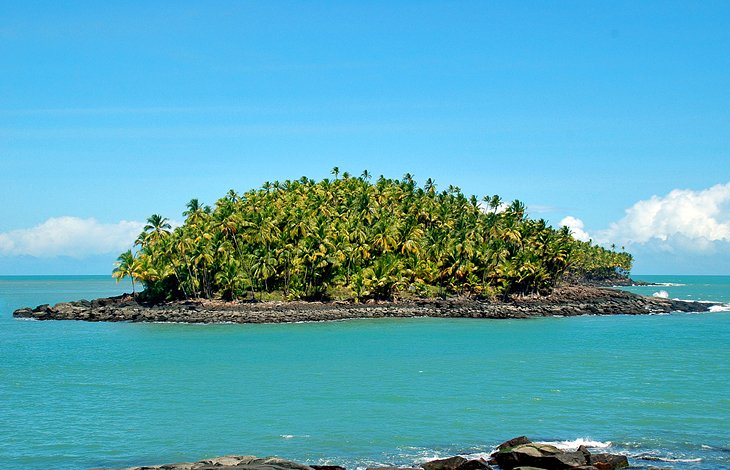
In 1931, Frenchman Henri Charrière was convicted of a murder he did not commit. He was sentenced to life imprisonment at the penal colony on Devil's Island , one of the infamous Îles du Salut , where shark-infested waters lash the rocky shores . After surviving 12 years of horrific conditions, he escaped to Venezuela. The book and movie, Papillon , recount his ordeal.
Today, a trip to the islands, about 11 kilometers offshore from Kourou, brings his story to life. Most visitors arrive at Île Royale , the largest of the three islands and the former administrative headquarters for the colony. The buildings have been converted to hotels and tourist facilities, and an abundant array of wildlife now inhabits the island, including macaws, monkeys, and agouti.
At the gift shop, you can buy postcards stamped "Devil's Island," and the harbor now welcomes cruise ships where prisoners were once disgorged.
Île St Joseph was reserved for solitary confinement for those prisoners at Devil's Island, and Île du Diable (Devil's Island) is now closed to the public.
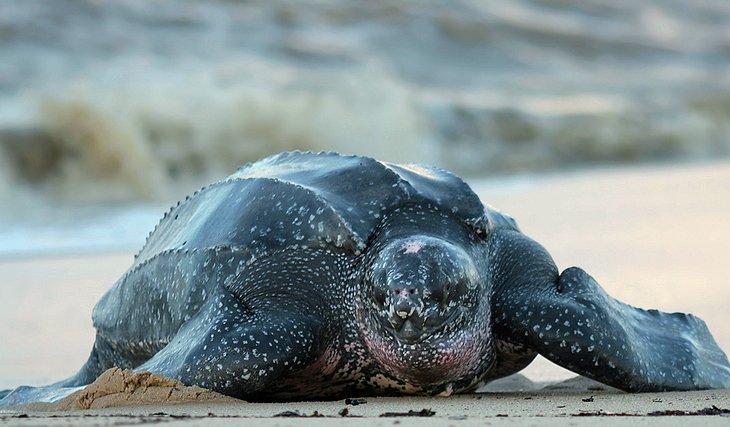
In the northwest corner of French Guiana, Plage les Hattes at Awala - Yalimapo is the most important single nesting site in the world for giant leatherback turtles .
During the peak season from April to July, more than 80 leatherbacks lumber up the beach in a single night. Their eggs hatch between July and September. This three-kilometer stretch of beach is also an important nesting site for green turtles and, on occasion, Olive Ridley and hawksbill turtles. Before heading to the beach, you can learn about these gentle creatures at the small local museum.
Also at Awala - Yalimapo are many Amerindian settlements, and you can cruise up the Maroni River and visit a permanent traditional village.
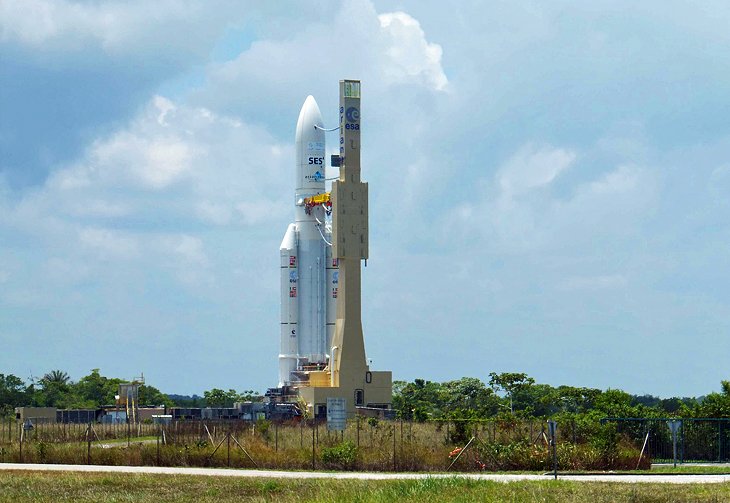
Apparently, rockets and rainforests are a good mix in French Guiana. In 1964, the French government chose this jungle-fringed slice of equatorial coast near Kourou for a space center, thanks to its low population density and distance from storm tracks and earthquake zones.
Three separate organizations operate at the Kourou Space Centre: the European Space Agency; the French Space Agency; and Arianespace, a private commercial enterprise developing the Ariane rocket. Aided by French-speaking guides, you can view a film tracing the history of the Space Centre and tour the Jupiter Control Centre and Ariane facilities. The free tours last about three hours.
A highlight of a visit to French Guiana is the chance to view a space launch from the jungle. The center conducts up to nine annually, and tourists can witness the spectacle by reserving a free ticket in advance (or just head to the beach and view it from there). See the website for launch dates.
Also here, the Space Museum illuminates the history of space through seven themed modules. Audio-visual and slide presentations provide added details and include the preparation and launch of Ariane from the Space Centre.
Official site: http://www.cnes-csg.fr/
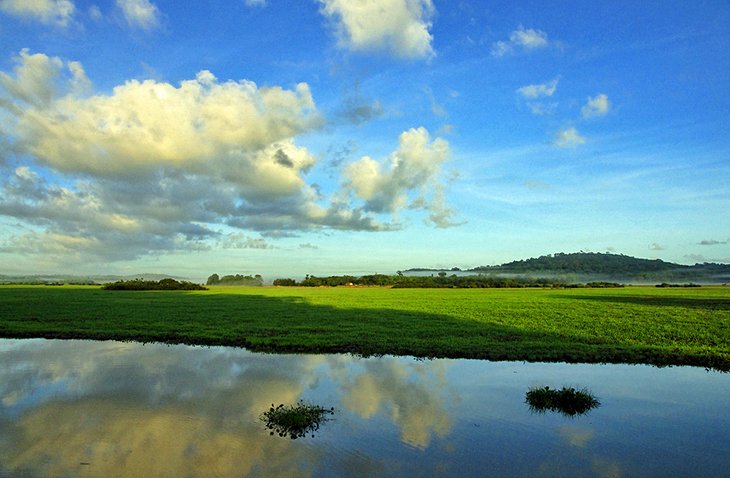
A 1.5- to 2-hour drive from Cayenne, the wildlife-rich marshes of Kaw cover thousands of square kilometers. The Tresór Nature Reserve encompasses a huge area of the Kaw ecosystem and is a great place to observe black caimans, a smaller relative of the American alligator, as well as a rich diversity of birdlife, such as the scarlet ibis.
Most tourists explore the wetlands on guided sightseeing tours aboard local boats that vary considerably in comfort. When booking boat tours, be sure to ask about shade canopies and seat cushions. Options include day or night trips, as well as a 24-hour excursion with an overnight stay in an Amerindian-style hut. Although this is one of French Guiana's most accessible wildlife areas, it is still well off the beaten track.
Within the Tresór Nature Reserve, Mont Favard features hiking trails, petroglyphs, and plentiful purple and yellow poison dart frogs.
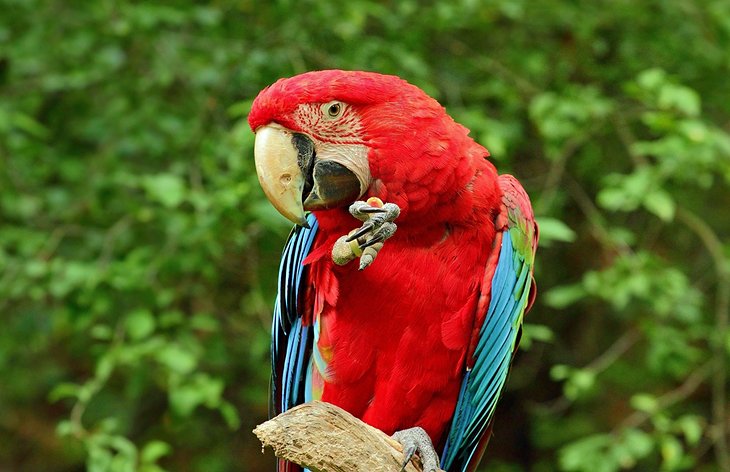
Set deep in the jungle, Zoo Guyane feels more like a wildlife sanctuary than a zoo. Here, you can see animals native to the Amazon in natural settings, where local wildlife is also free to wander the grounds. The focus is on animals native to French Guiana, so this is a great place to get acquainted with the country's wildlife before you venture into the wilderness.
The 450-plus animals in the zoo's collection represent around 75 different species, and you can access the naturalistic exhibits on a series of well-signposted trails through lush vegetation.
Sloths, agoutis, crocodiles, howler monkeys, anteaters, and a panoply of birds, such as toucans and macaws are just some of the residents at Zoo de Guyane. But, arguably, it's the big cats that steal the show - make sure you try and catch the jaguar feeding.
Kids and adults alike will love the treetop walk, strung through a canopy of native forest, and the children's playground is a hit with younger children.
Address: CD 5, PK 29 97355 Macouria
Official site: http://www.zoodeguyane.com/
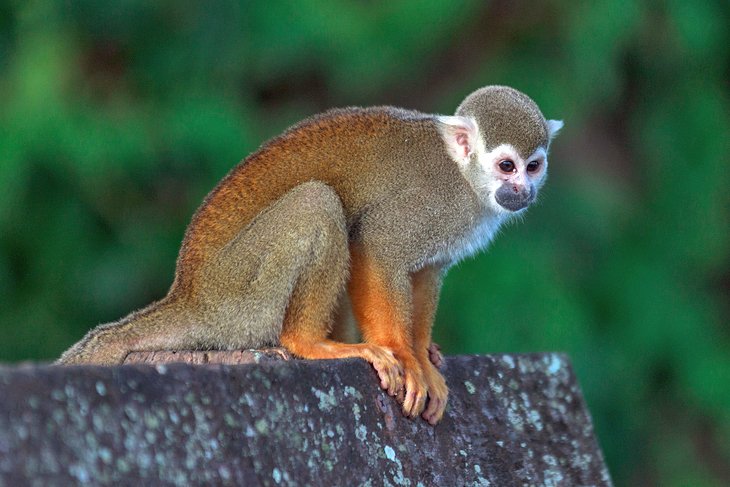
Squirrel monkeys are the main attraction at lovely little Ilet la Mère. This uninhabited island lies about a 30-minute boat trip from the marina at Dégrad des Cannes, just outside Cayenne. These gentle little critters have no fear - be prepared for them to jump on your shoulders and rifle through your bags.
Besides photo ops with the monkeys, popular things to do on the island include strolling around the walking trails, swimming and basking on the small beach, and enjoying a picnic, but you must bring your own food, as the island has no facilities. Local tour operators offer both half-day and full-day trips to the island.
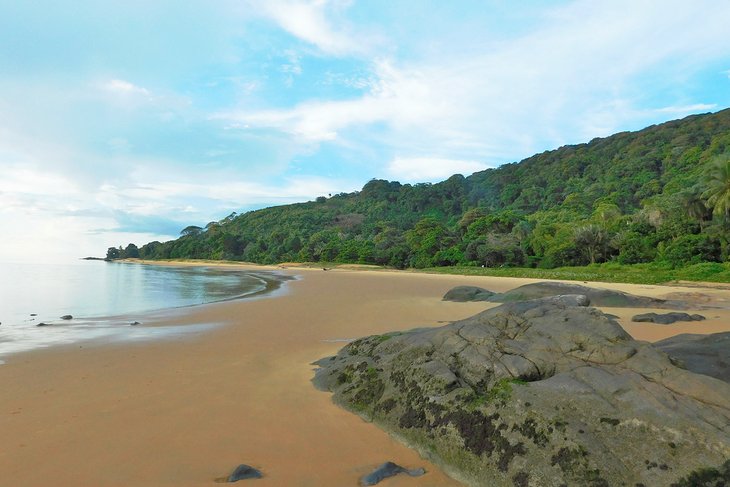
If you're seeking a beach fix, you'll find Cayenne's best stretch of sand and sea at Remire-Montjoly. French Guiana beaches are typically wild, windswept affairs, and this beach is no different, but it does have a narrow, strip of golden shoreline that is great for sunbathing. Palms and lush greenery fringe the sand, providing welcome patches of shade.
The silty waters here are not ideal for swimming but they're decent enough for a quick dip after a hike in the nearby nature reserve. You might spot sea turtles here during nesting season.
Fort Diamant presides on the point of the Cayenne Peninsula, and you can also see the ruins of an old sugar mill. From the town of Rémire-Montjoly, the scenic five-kilometer Rorotá Trail (Sentier du Rorotá) ascends Mahury Mountain with the chance to see wide-eyed sloths clinging to the trees.
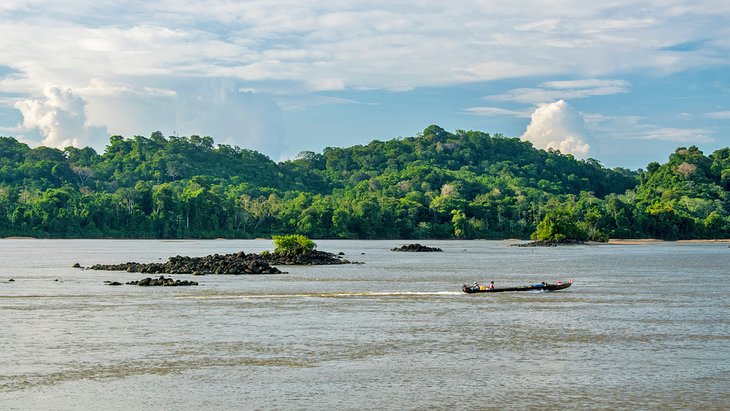
Paddling along a jungle-fringed river in a local boat is an exhilarating way to explore French Guiana's seemingly impenetrable wilderness. The rivers flow through the heart of the steamy jungle and are the best way to travel between remote villages and see wildlife in its natural habitat, including capybara, caiman, and monkeys. Typically, guides offer cruises in pirogues, dugout canoes carved from local wood.
One of the most popular rivers to paddle is the Maroni River, on the border of French Guiana and Suriname. This is the country's longest and most populated waterway and provides a chance to encounter Amerindians and Maroons and learn about their culture.
The 263-kilometer Sinnamary River cuts through the Amazon rainforest. Peaceful pools and swirling rapids punctuate this unspoiled, wild waterway.
Another option is the Oyapock River. Rich in gold mining history, it offers both a wilderness experience and a chance to meet Amerindians and Brazilians, who make their home along its banks. On the Approuague River , paddlers will find the highest rapids in French Guiana, as well as pristine forests.
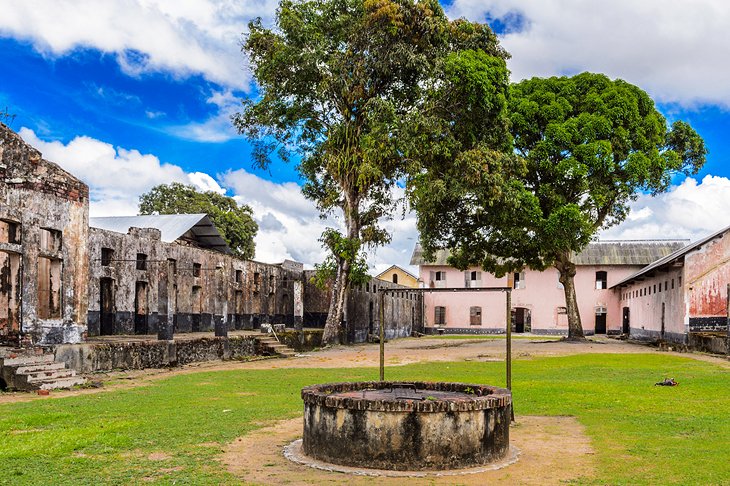
In the border town of Saint-Laurent-du-Maroni , at the chilling Camp de la Transportation, prisoners arrived for processing and transfer to penal colonies throughout the territory. After walking through the same gates as former inmates Alfred Dreyfus and Papillon, you can see rusty shackles and solitary confinement cells with tiny windows. Abundant foliage has softened some of the grim history here, but the impression of past brutality lingers.
Self-guided tours are free, or for a fee, French-speaking guides will take you on a more detailed tour . Look for Papillon's name engraved in one of the cells, and bring water and sun protection, as it can be hot walking around in the blazing sun.
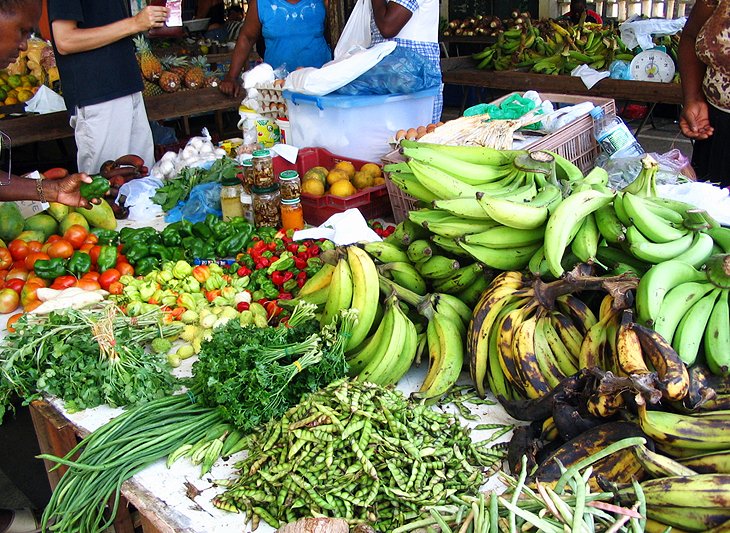
For a spicy snapshot of local life, head to Cayenne's main market in Place Victor Schoelcher . This town square is named after the man who ended slavery in French Guiana, and shopping here is one of the top things to do in Cayenne while you're visiting French Guiana.
Exotic aromas waft through the air, and the market stalls brim with tropical fruits, perfumes, fragrant spices, and Asian-inspired snacks. You can relax with a hot bowl of Vietnamese noodle soup, sip tropical juices, pick up some fresh-plucked produce, or purchase locally made handicrafts and souvenirs.
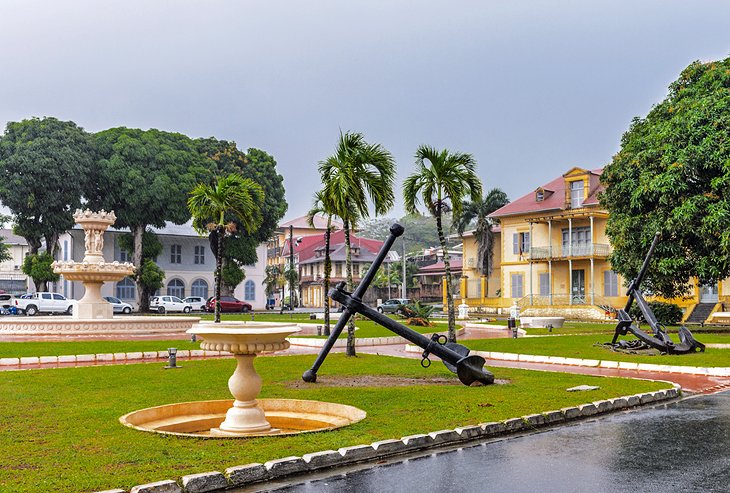
Near the Place de Palmistes , Cayenne's liveliest plaza, the Musée Départemental De Franconie offers an overview of the country's history, as well as its flora and fauna. The museum tucks into a simple wooden Creole house built in the 19th century by the Franconie family. Exhibits cover indigenous people, colonial history, and the penal colony, but the signs are only in French. Of note are the large stuffed black caiman and the Butterfly Room.
Address: 1 Avenue du Général de Gaulle, Cayenne, French Guiana
Official site: http://amazonian-museum-network.org/fr/les-musees-d-amazonie/musee-alexandre-franconie
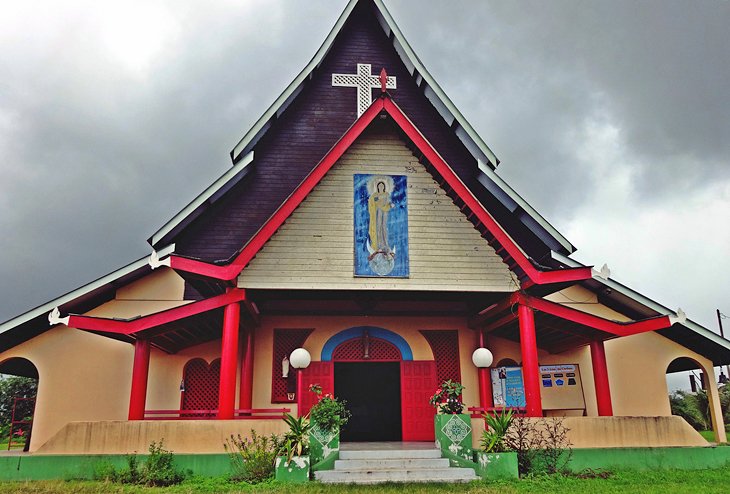
On the Comté River south of the capital, Cacao is a popular day trip from Cayenne. Hmong refugees transplanted from Laos in the 1970s are the main ethnic group in this small Asian village of wooden stilt houses.
Sunday is the best day to visit, when the popular market features Hmong embroidery and weaving, as well as local noodle soups. The insect museum, Le Planeur Bleu , is also worth a stop for its extensive bug and butterfly collections and impressive specimens of scorpions and spiders.
From the village, you can also embark on a scenic hike through the misty jungle or paddle the river in a canoe.
French Guiana is hot and humid almost all year. The best time to visit is the dry season, from July through November . Try to avoid the months of April through June, when heavy downpours and high humidity can make traveling through the country sticky and uncomfortable.
French Guiana's food reflects its rich mix of cultures. Depending on where you travel, you'll find everything from French, Creole, Caribbean, and Vietnamese to Chinese and South American specialties on the menus. Popular dishes include a palm-pulp concoction called Awara broth, as well as "Blaff," a tomato-based broth with peppers and fish. Staples include rice and beans with local game meat, as well as traditional stews and seafood dishes like bouillon d'aurora, a mix of smoked fish, vegetables, and sometimes chicken.
Crime rates in French Guiana are relatively low, but it's always wise to exercise caution in the cities and remote areas - avoid going out alone after dark, and don't carry large amounts of cash or valuables.

More on French Guiana
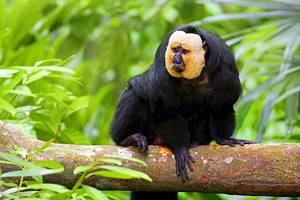
Explore French Guiana
Plan your trip to french guiana: best of french guiana tourism.

Essential French Guiana

Trending in the forums
French Guiana Is Great For
Eat & drink.

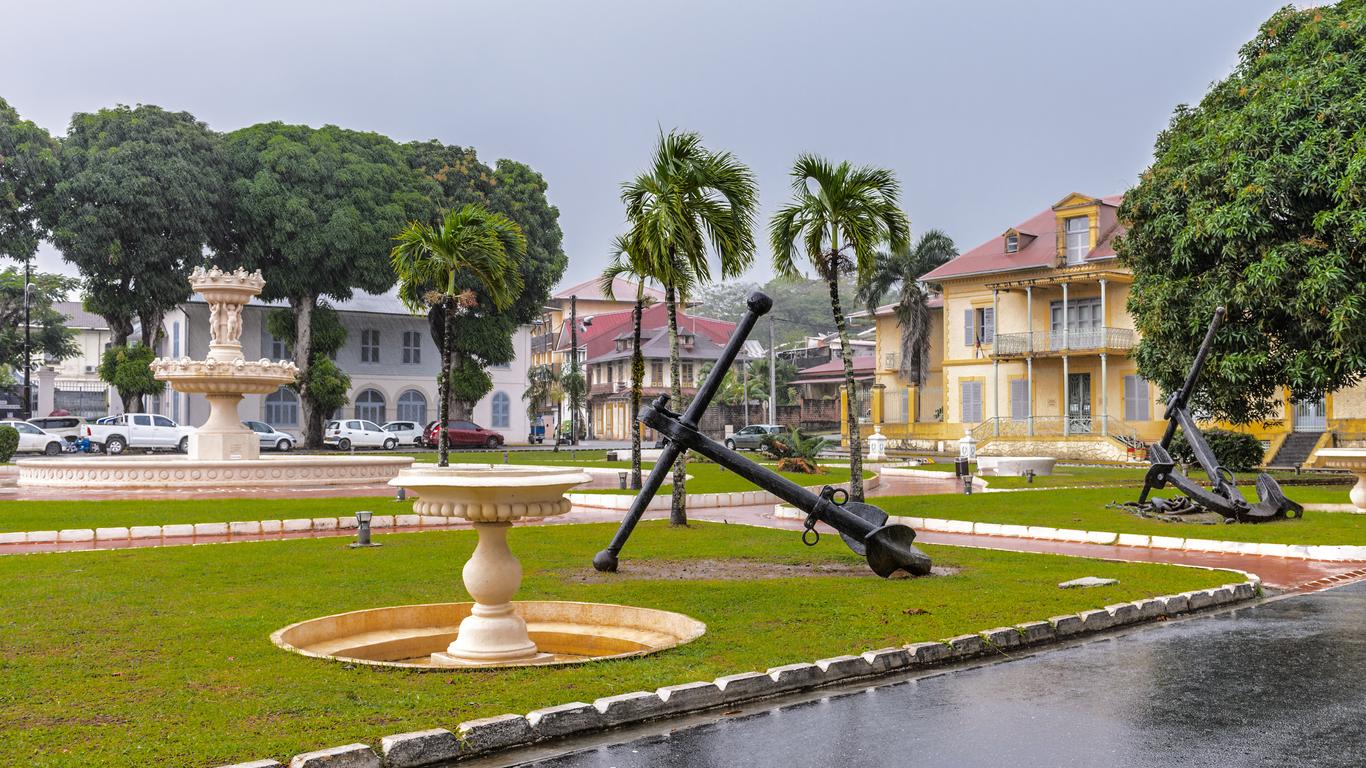
Find cheap flights to French Guiana from $2,208
This is the cheapest round-trip flight price found by a kayak user in the last 72 hours by searching for a flight from the united states to french guiana departing on 7/9. fares are subject to change and may not be available on all flights or dates of travel. click the price to replicate the search for this deal., search hundreds of travel sites at once for deals on flights to french guiana.
Save 22% or more Compare multiple travel sites with one search.
Track prices Not ready to book? Create a price alert for when prices drop.
Filter your deals Choose cabin class, free Wi-Fi and more.
Bundle and save Save money when you bundle your flight + hotel.
Best French Guiana Flight Deals
Cheapest round-trip prices found by our users on KAYAK in the last 72 hours
Good to know
Faqs - booking french guiana flights, how long is the flight to french guiana.
An average nonstop flight from the United States to French Guiana takes 20h 40m, covering a distance of 2807 miles. The most popular route is New York - Cayenne with an average flight time of 20h 40m.
What is the cheapest flight to French Guiana?
The cheapest ticket to French Guiana from the United States found in the last 72 hours was $2,208. The most popular route is New York John F Kennedy Intl to Cayenne Rochambeau and the cheapest round-trip airline ticket found on this route in the last 72 hours was $2,208.
What is the most popular destination in French Guiana?
Based on KAYAK flight searches, the most popular destination is Cayenne (100% of total searches to French Guiana).
How does KAYAK’s flight Price Forecast tool help me choose the right time to buy?
KAYAK’s flight Price Forecast tool uses historical data to determine whether the price for a given destination and date is likely to change within 7 days, so travelers know whether to wait or book now.
Top tips for finding cheap flights to French Guiana
- Enter your preferred departure airport and travel dates into the search form above to unlock the latest French Guiana flight deals.
Top airlines flying to French Guiana
L’équipe a été super serviable avec mon enfant de 11 mois. Un petit cadeau l attendait dans l avion, petits pots etc…
Went in with low expectations based on other reviews/the fact that this is a budget airline, but I was pleasantly surprised! Everything went smoothly, seats were comfortable, food was not bad for airplane food, and of course the price of the flight was fantastic. The only real negatives I can think of are that the plane is a bit on the older side (think 2012-ish era planes, not a huge deal), wifi is a bit expensive, and the movie catalog is mediocre. But that is to be expected on a budget airline (I was honestly surprised they had free movies). I would definitely fly again.
No organization when it came to checking in and boarding. If you have diet restrictions make sure to plan ahead.
The check in was horrible. I stood in line for 1 hour to check in with an Air France ticket. Then I was told I had to go to Delta counter onstead to check in instead. It made no sense.
Generally good. The crew is excellent. The food could be better.
They wanted to close counter although they did not provide the wheelchair requested which ended by going alone to transit security and lost long time and they did not want to wait .
Business class in the second leg - CDG-EVN was a disaster.
Everything went smoothly with Air France. There was a delay in departure which seemed to relate to the immigration services being short staffed.
worst experience ever i choose my seat in advance and also have my seat selected in my boarding and the they told me that my seat has been changed without notify me
Food could have been better especially the breakfast. Overall it was a good flight
No birding was given for next trip on same carrier, food was very moderate.
We transited through Chad and what was supposed to be a 1hr 20 minutes transit time lasted over 4hrs. We didn't get regular updates until we complained. After a 10hr flight from Paris no form of refreshment given and finally arrived Abuja over 6hrs later and none of my bags came
The line at boarding was not well organized and managed
Book Cheap French Guiana Plane Tickets
Recent round-trip flight deals, search by stops, search by price, flights to french guiana, return flight deals:.
French Guiana - United States
Cabin classes:
Browse origins:.
- Flights »
- United States
Browse destinations:
- Worldwide »
- South America »
- French Guiana
Cookies on GOV.UK
We use some essential cookies to make this website work.
We’d like to set additional cookies to understand how you use GOV.UK, remember your settings and improve government services.
We also use cookies set by other sites to help us deliver content from their services.
You have accepted additional cookies. You can change your cookie settings at any time.
You have rejected additional cookies. You can change your cookie settings at any time.
- Passports, travel and living abroad
- Travel abroad
- Foreign travel advice
French Guiana
Safety and security, terrorism .
There is a high threat of terrorist attack globally affecting UK interests and British nationals, including from groups and individuals who view the UK and British nationals as targets. Stay aware of your surroundings at all times.
UK Counter Terrorism Policing has information and advice on staying safe abroad and what to do in the event of a terrorist attack. Find out how to reduce your risk from terrorism while abroad .
Terrorism in French Guiana
Although there is no recent history of terrorism in French Guiana, attacks cannot be ruled out.
Protecting yourself and your belongings
Crime levels are low, but there is a risk of being robbed in some areas of Cayenne, especially after dark.
To reduce your personal risk:
- avoid isolated areas including secluded beaches, particularly after dark
- take a licensed or pre-arranged taxi after visiting an ATM in case you are followed
- do not wear expensive-looking jewellery or watches
- go into a shop or café to use your mobile
- place most of your cash and your valuables and travel documents in a safety deposit box or hotel safe
Outdoor activities and adventure tourism
Swimming safety .
See water safety on holiday from the Royal Life Saving Society.
Scuba diving
Diving schools may have limited resources and do not always observe safety and maintenance standards. Always:
- check a dive operator’s credentials
- check the conditions on your insurance policy – some policies require dive instructors to have certain qualifications
- make sure safety equipment is available on the boat, particularly oxygen
- ask about safety precautions, including the ability to transfer divers to a hyperbaric chamber
If you have not had any previous diving experience, check what to do if something goes wrong, including how to call for help while at sea.
Transport risks
Road travel .
If you are planning to drive in French Guiana, see information on driving abroad and check the rules of the road in the RAC’s France guide as French driving laws apply. The guide lists driving regulations and other legal requirements you need to be aware of.
You can use a UK photocard driving licence to drive in French Guiana. If you still have a paper driving licence, you may need to update it to a photocard licence or get the correct version of the international driving permit ( IDP ) as well.
Hire car companies often have stricter requirements for their customers, such as a year of driving experience, a higher minimum age and holding an IDP .
Drink-driving is a serious offence in French Guiana. The blood alcohol limit (0.05%) is lower than in England, Wales and Northern Ireland. If you are tested and found to be above the limit, you may get a fine and possible imprisonment.
Extreme weather and natural disasters
Find out what you can do to prepare for and respond to extreme weather and natural hazards .
Hurricanes
There’s a risk of tropical storms during the rainy season from December to July.
Monitor local news and check World Meteorological Organization and US National Hurricane Center weather reports for the region.
Related content
Is this page useful.
- Yes this page is useful
- No this page is not useful
Help us improve GOV.UK
Don’t include personal or financial information like your National Insurance number or credit card details.
To help us improve GOV.UK, we’d like to know more about your visit today. We’ll send you a link to a feedback form. It will take only 2 minutes to fill in. Don’t worry we won’t send you spam or share your email address with anyone.
- Français ( French )

We offer you more than 20 different activities during your stay, the hardest will be to choose!
Transportation
We offer a selection of vehicles and ships to discover French Guiana by land or by water: boats, buses, cars …
French Guiana
A few photo albums to invite you to discover French Guiana, its fauna, its flora, its beaches, its forests …
An unique and unforgettable experience …
Guyane evasion is an incoming travel agency in french guiana, our expertise:.
- Custom-made tours design including accommodation, transportation, catering, touristic activities for groups and individuals.
- Day trips or half day in French Guiana.
- Flight tickets for domestic flights in French Guiana (Maripasoula Grand Santi, Saul).
- Tours designed for groups and individuals from the neighboring countries (Brazil and Suriname), but also for people from all other countries, departure from Cayenne.
Why French Guiana?
- No existing natural disaster
- Stable political and economic situation
- Mild weather all year round
- An exotic and unusual destination
- French Department, experience it in the french way

Guyane Evasion offers turn-key customized tours for groups or individuals of short or long duration.
Several themes can be proposed: adventure, culture, visit of the must-sees in French Guiana, VIP pack, exceptional circuits …

Discover the different transportation option we can provide you with driver, by rental car, by bus, by boat, canoe, sailing boat …

For a better understanding, Guyane Evasion locates all sights we offer on a map.
Discover French Guiana with ease!

Practical information


25 places other than France where speaking French is helpful
Posted: January 8, 2024 | Last updated: January 8, 2024
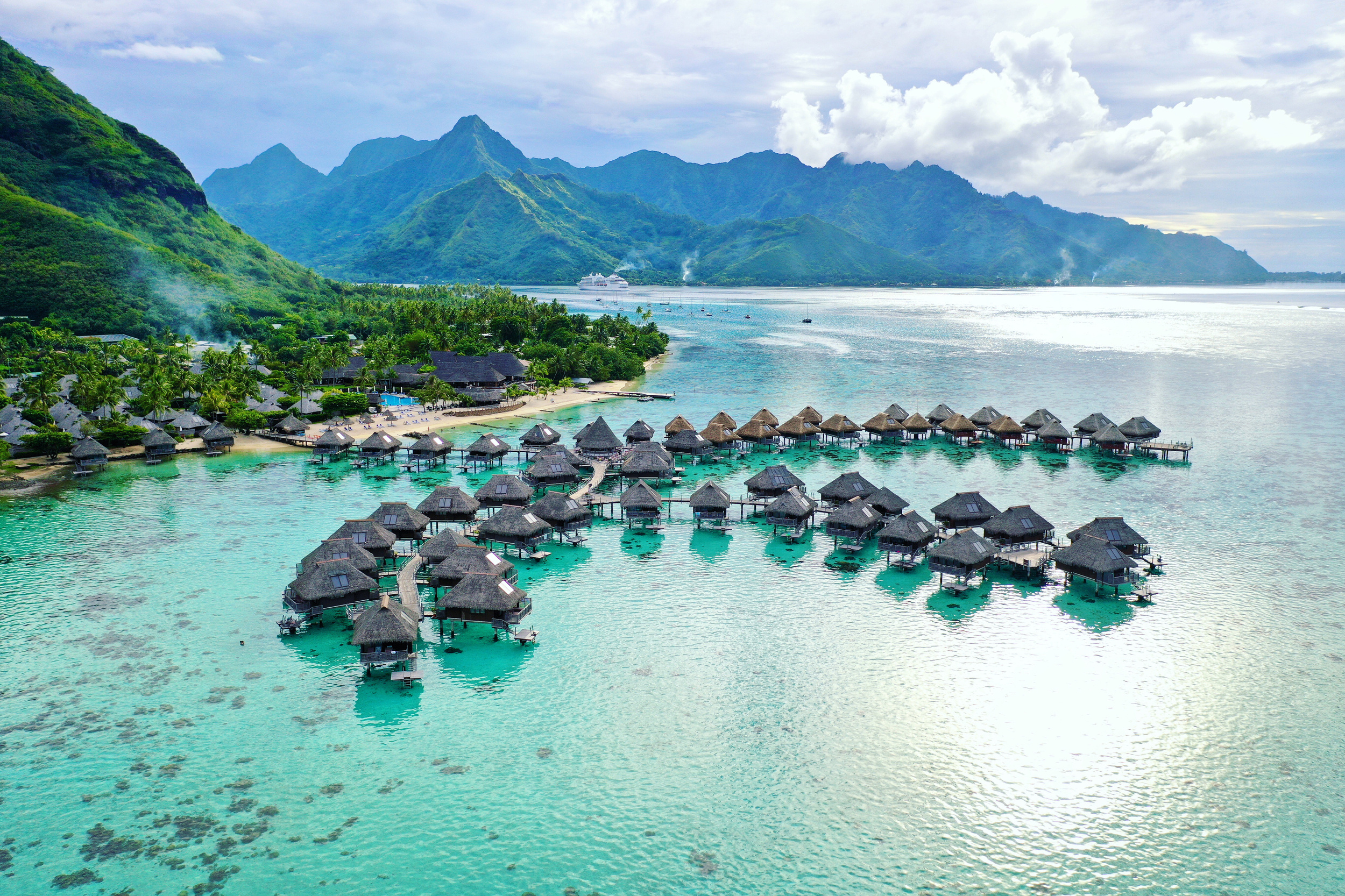
Speaking another language is always helpful, especially if you love to travel. And French, commonly thought of as one of the most beautiful in the world, is also more useful than you might realize. Here are 25 destinations outside of France where you can put your French language skills to good use!
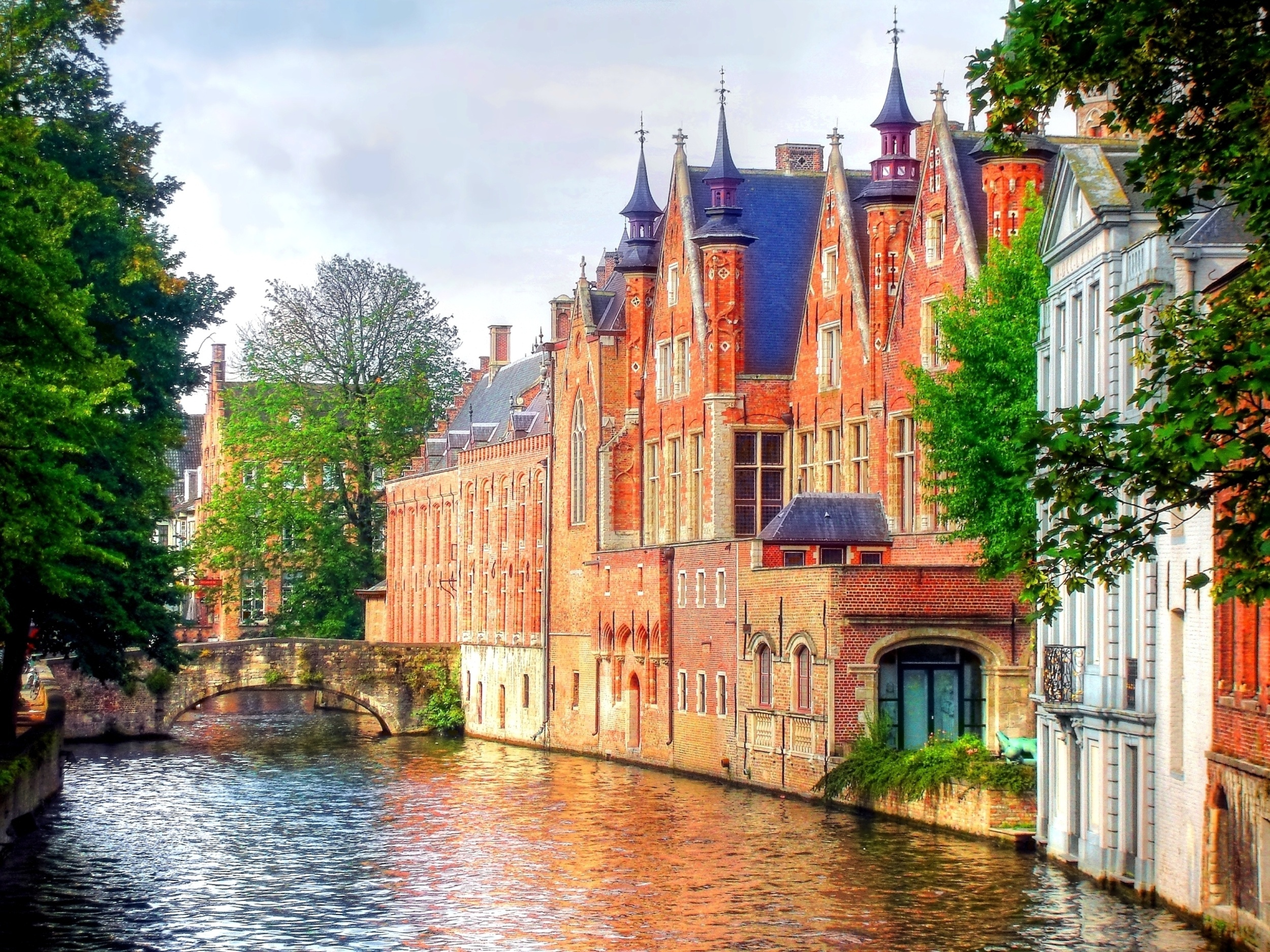
Home to delicious beer, chocolate, waffles, and fries (no, they actually didn’t originate in France), Belgium is also a French-speaking country. The language is one of three officially spoken in the country; the other two are Dutch and German. French is mostly spoken in the capital, Brussels, and in the south of the country.
You may also like: 15 weird & wonderful roadside attractions in the United States
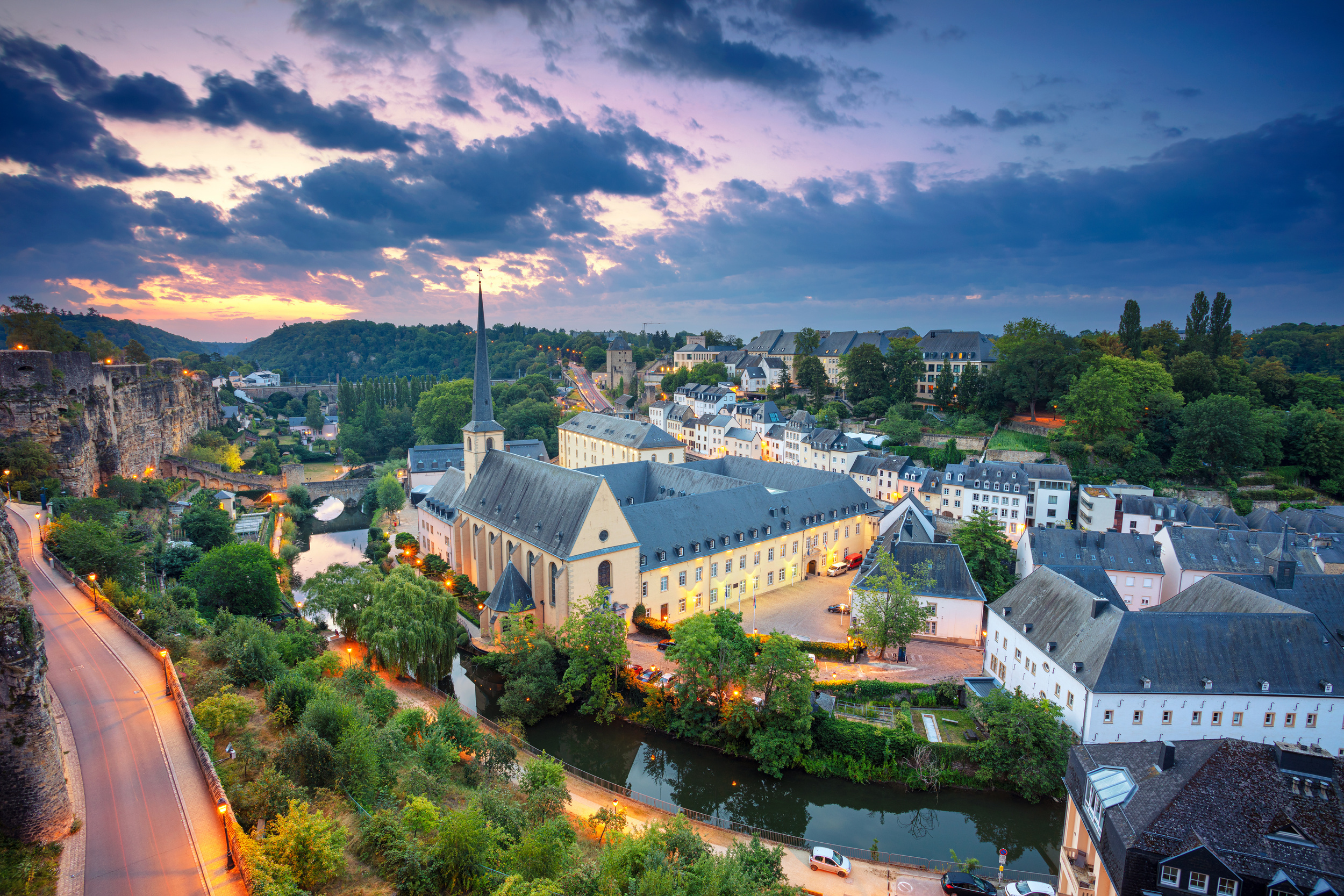
Another multilingual state that borders France, the Grand Duchy has French, German, and Luxembourgish as official languages. However, French is one most commonly used on signs and in written communication in the country. You’ll also find it most helpful for small talk and chatting with residents.
Follow us on MSN to see more of our exclusive lifestyle content.
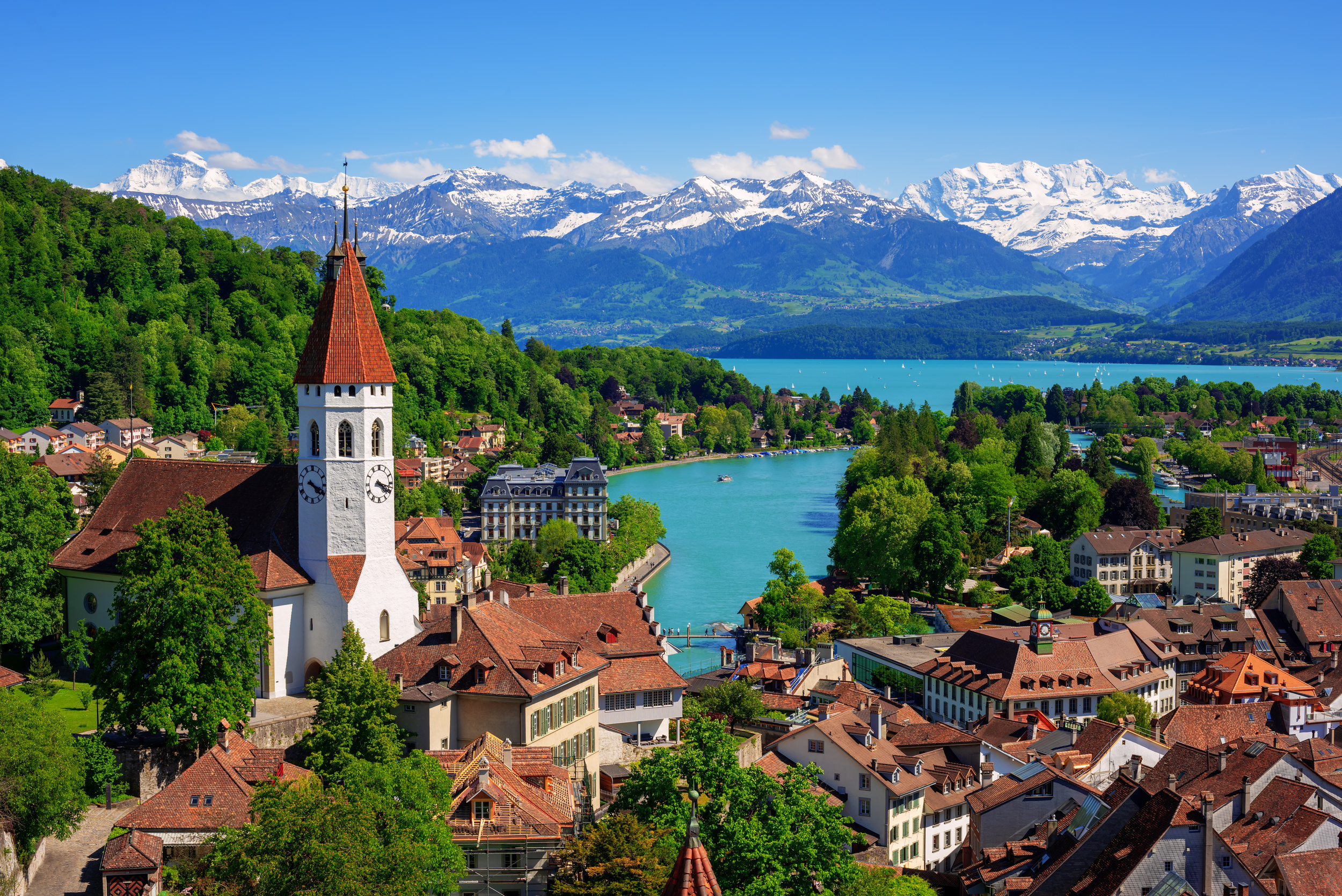
Switzerland
Yet another European country with French as one of the official languages (the others are German, Italian, and Rhaeto-Romance). You’ll find French most useful in Geneva and the surrounding area, although it’s used throughout Switzerland.
You may also like: Layered dips you can make that will feed the whole team
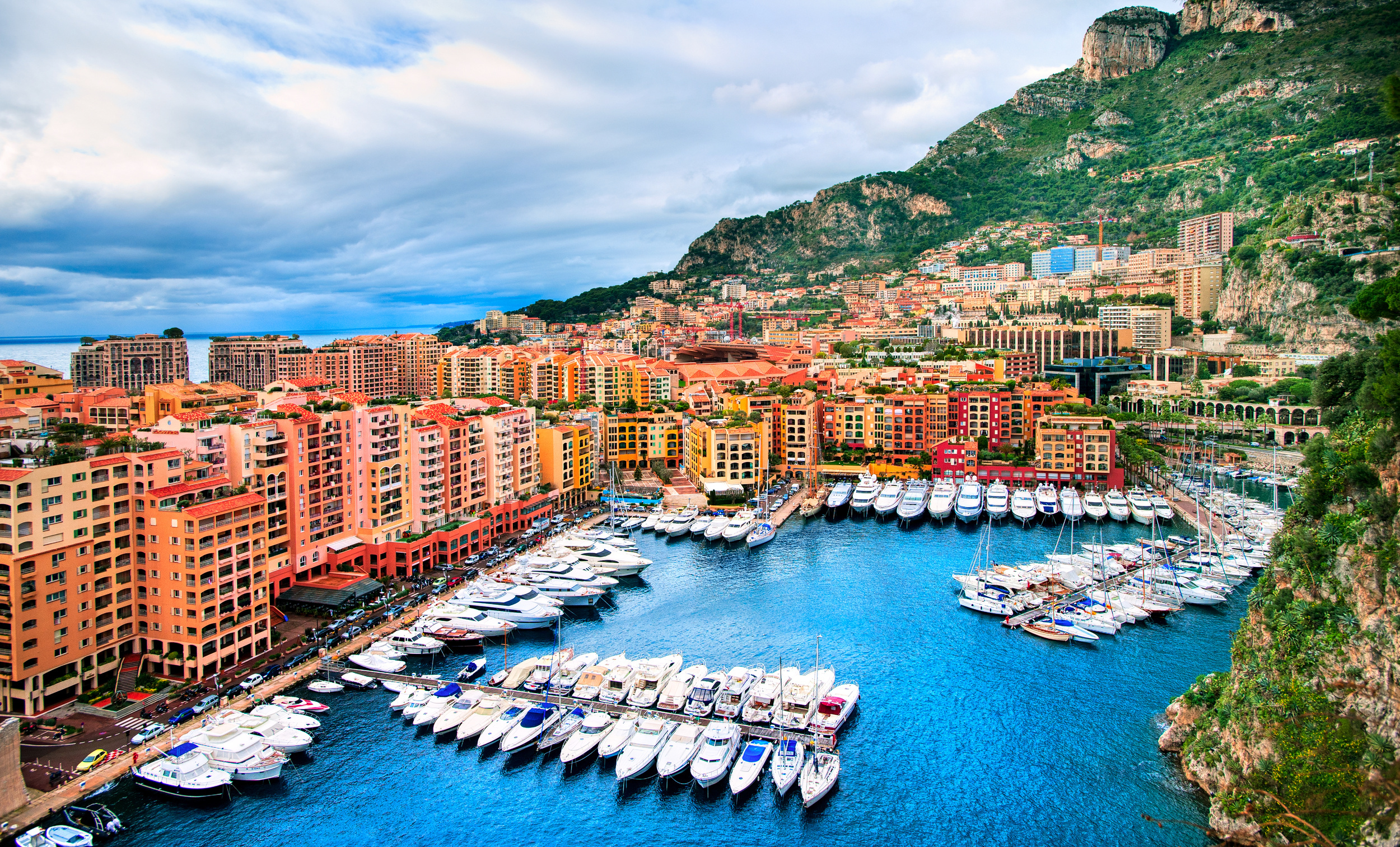
Many people make the mistake of assuming that this tiny state is a part of France. And while Monaco is surrounded by its’ much larger neighbor and uses the French language, it is a sovereign city-state with a monarchy. There is also a Monégasque language that has official status.
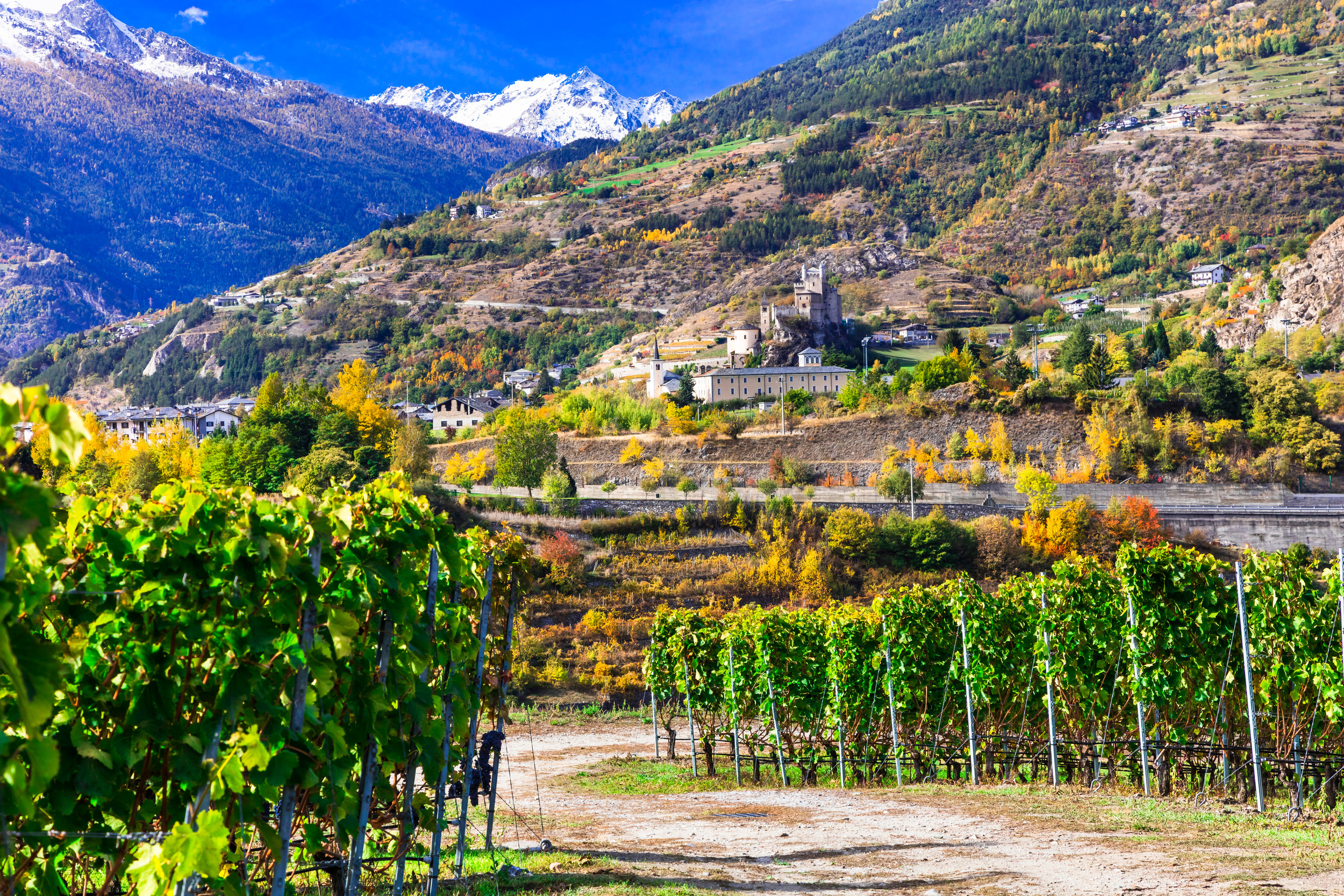
Aosta Valley
This region of Italy is located in the northwest of the country, near France. Latin was replaced by French as the official language after the fall of the Roman Empire and then, in the 19th century, was replaced with Italian. Today, the region is bilingual, and you’ll see French and Italian written on road signs and hear the two spoken by locals.
You may also like: 13 foods & drinks that cause bad breath and 13 that combat it
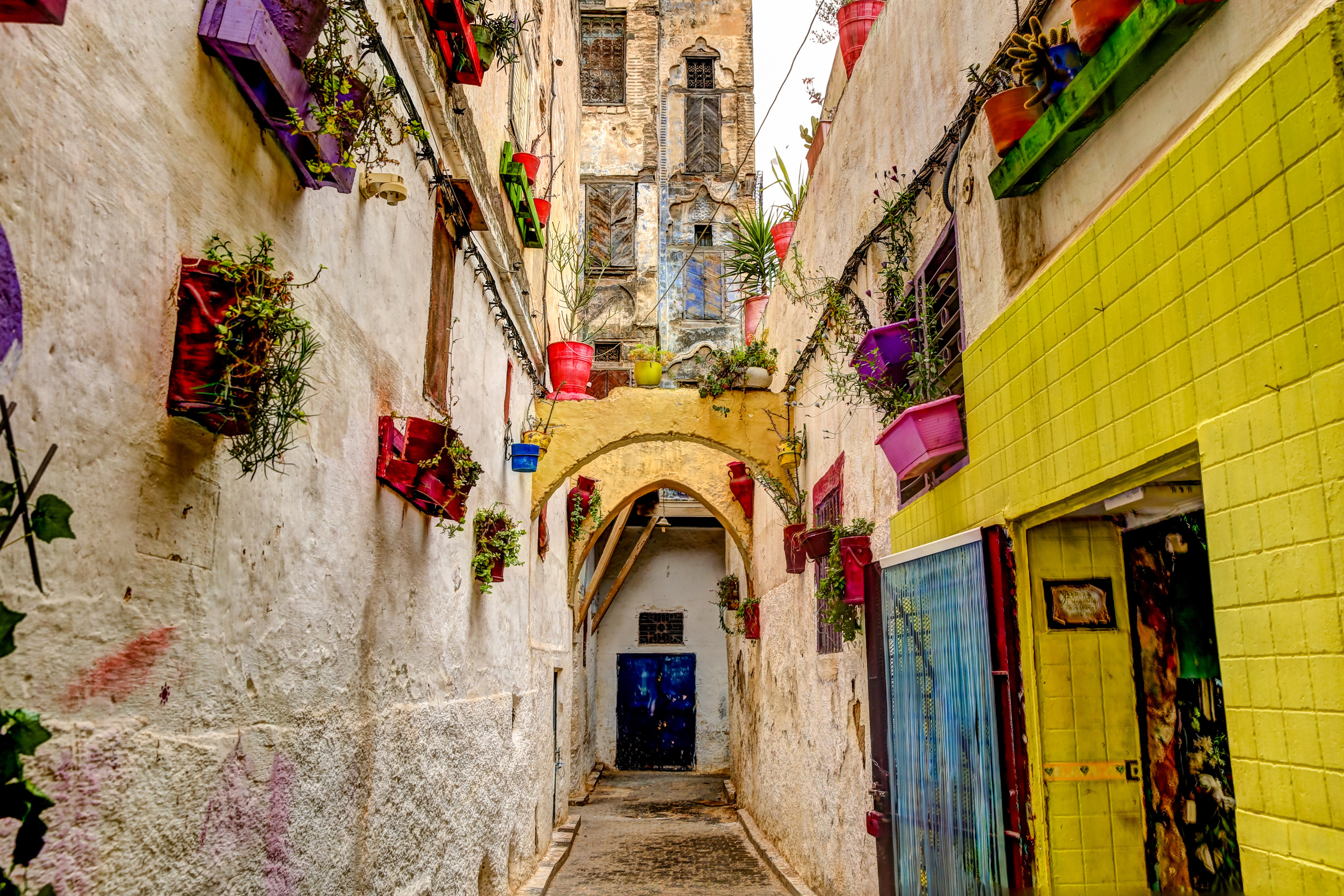
The French Empire had a strong presence in North Africa, and thus many nations in the region still use French as an official language. Morocco is one of these, and French is widespread along with Arabic and various Berber dialects. As a visitor, you’ll find it extremely useful when speaking to locals or reading signs and menus.
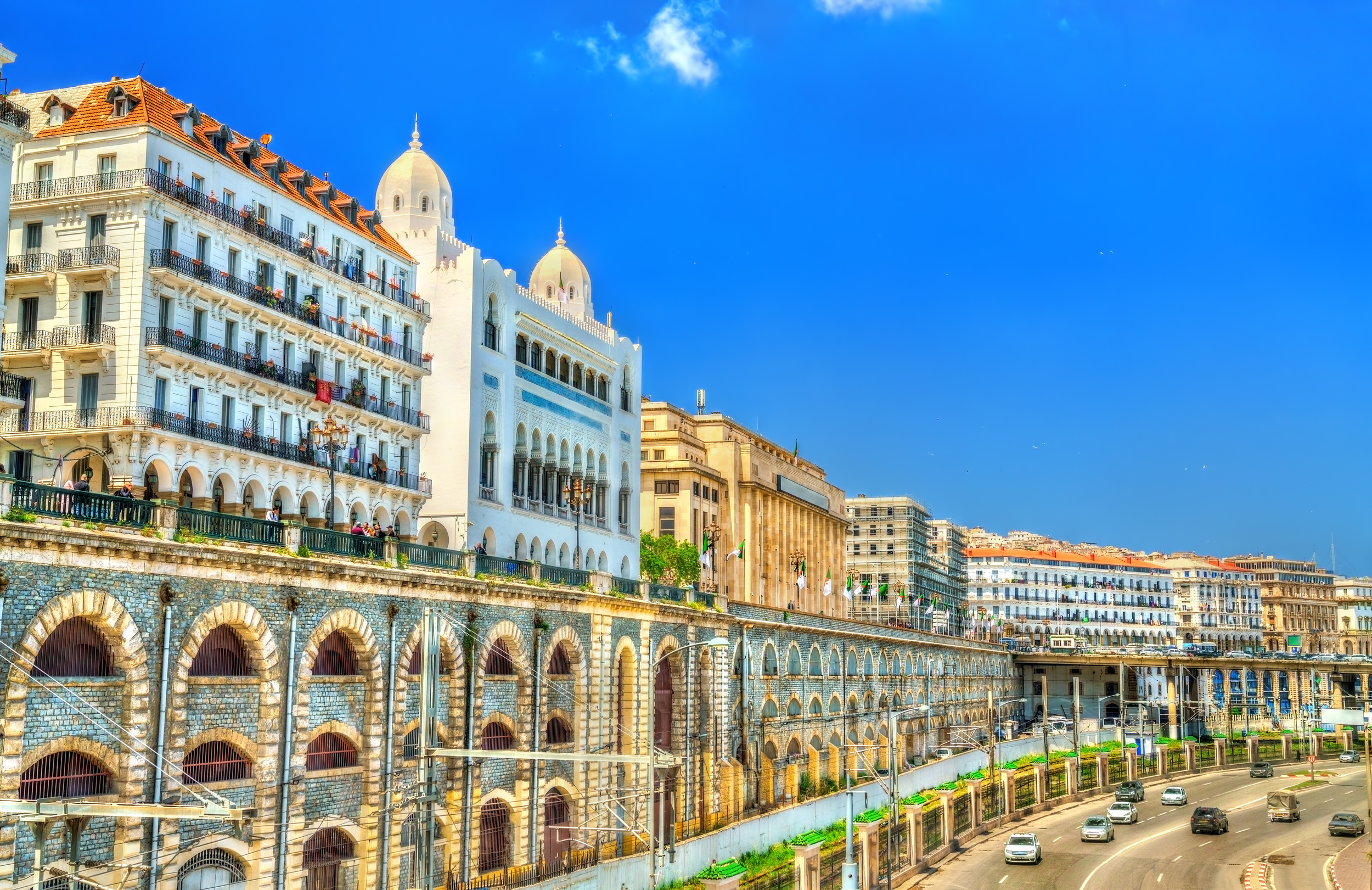
Algeria’s official languages are Arabic and Berber, but French is also commonly understood. While not as widely used as in neighboring Morocco, it will be your best bet if you don’t speak one of the official languages.
You may also like: 20 ingredients that will make your grilled cheese even better
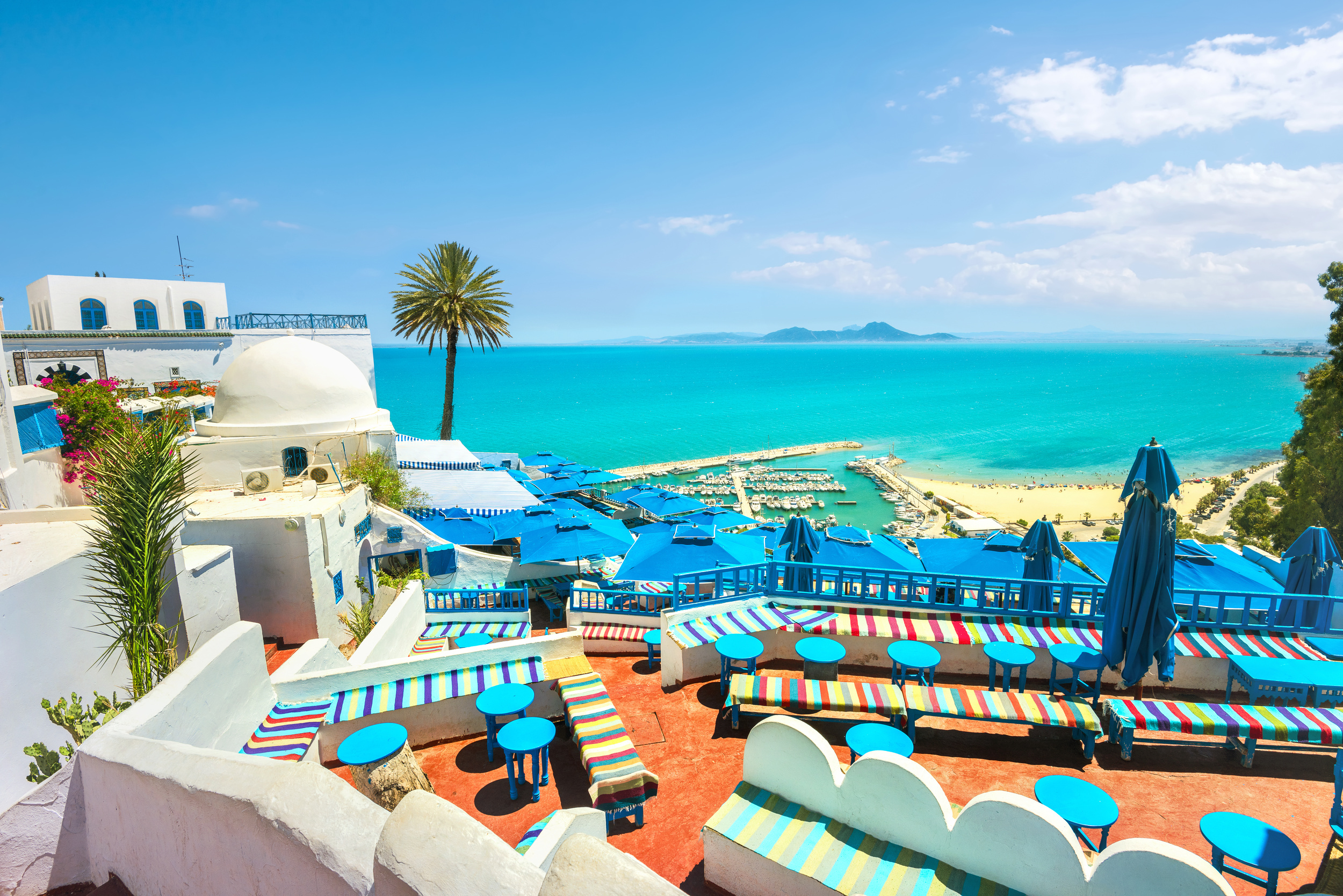
Another former French colonial outpost, the language is used and understood throughout the country in addition to Arabic and Tunisian. It’s estimated over half the population speaks French, and it’s the teaching language of high schools in the country.
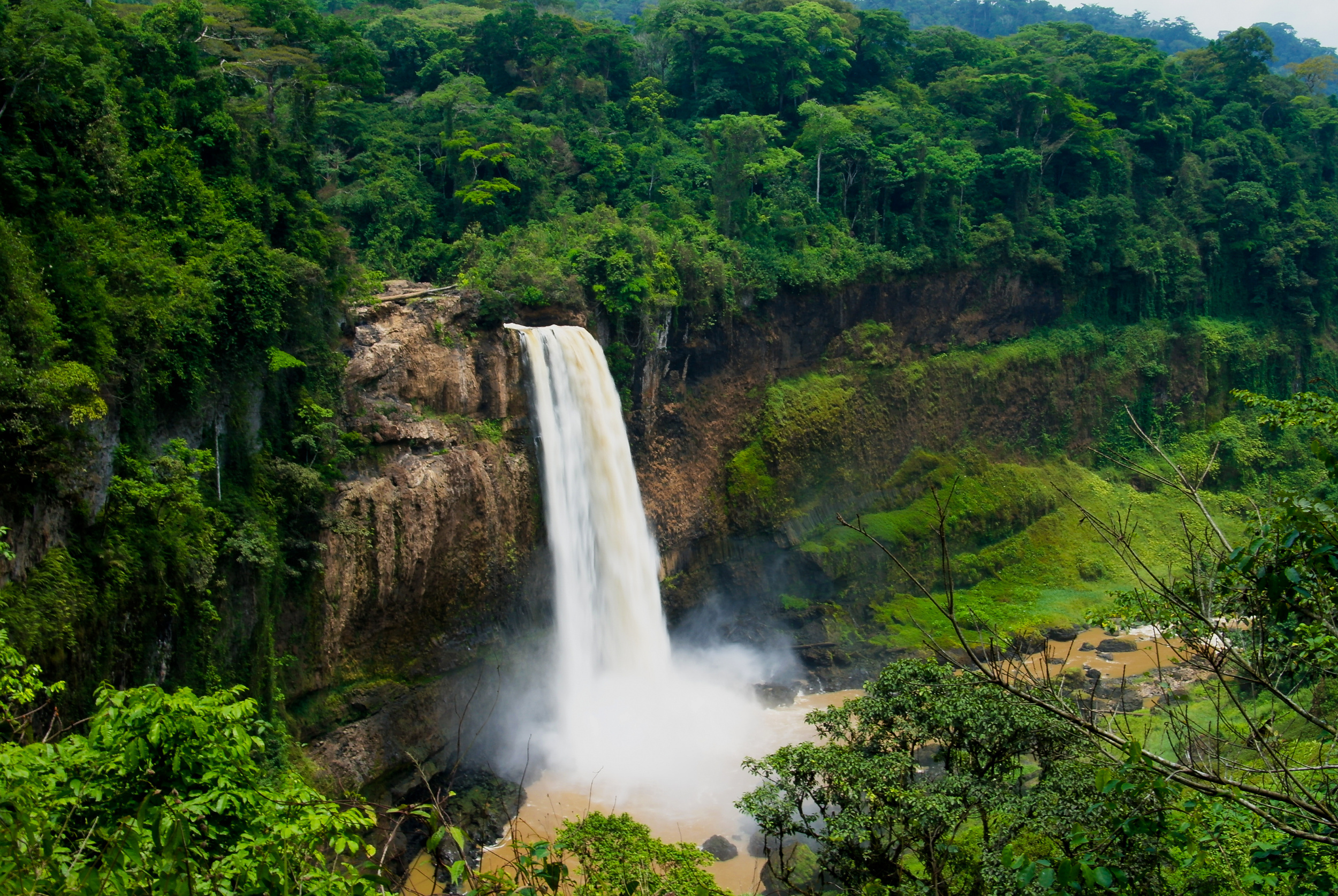
Cameroon was a colony of both the UK and France in the early 20th century. So, English and French are spoken in the country. However, French is the most prevalent, with eight of 10 regions considered Francophone. Locals also speak numerous other indigenous languages.
You may also like: 20 beauty and skincare hacks that actually work
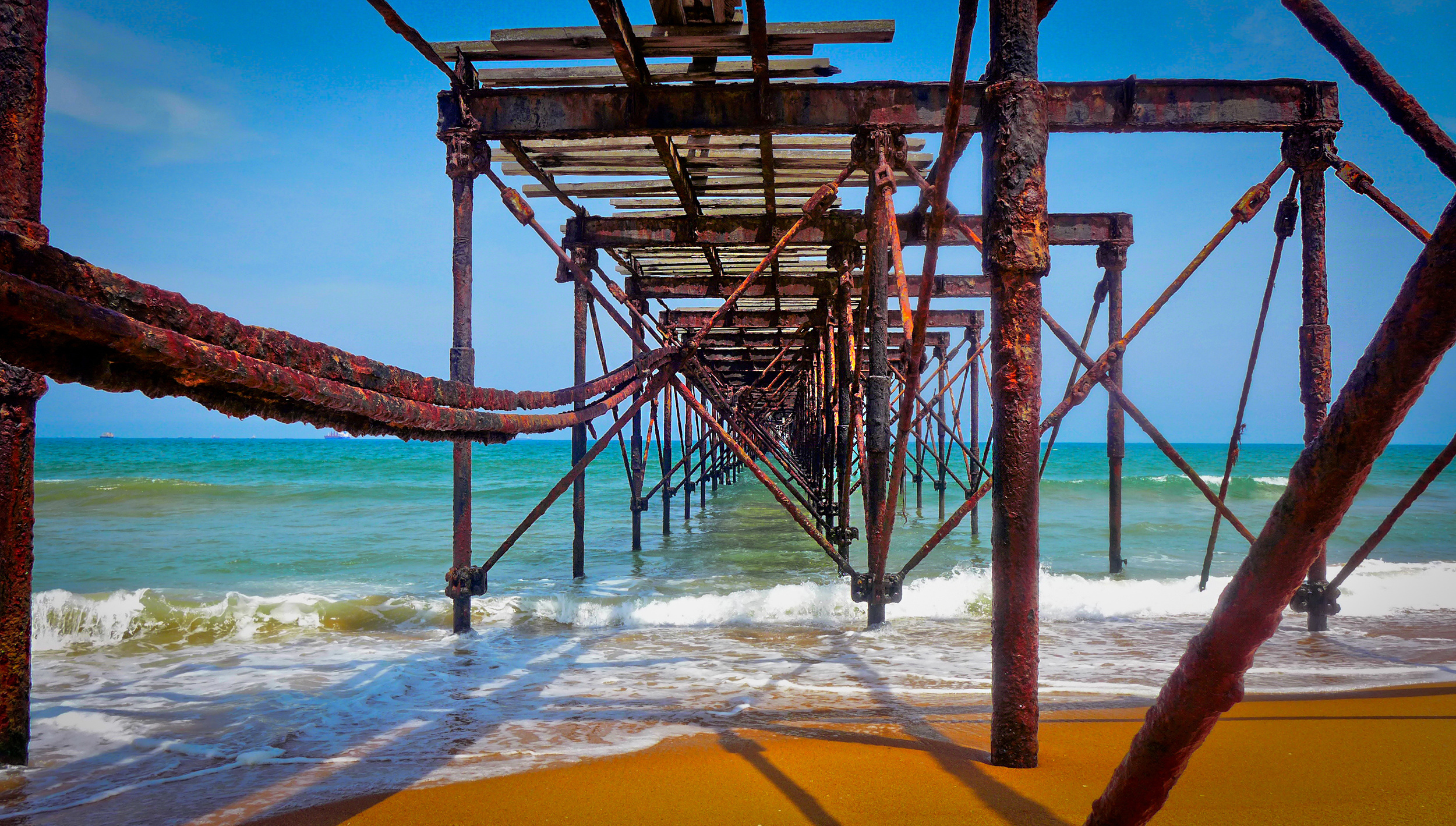
Ivory Coast
Known as “Côte d’Ivoire” in French, this coastal nation uses the old colonial language as the official one. Additionally, numerous indigenous languages also have recognized status in the Ivory Coast.
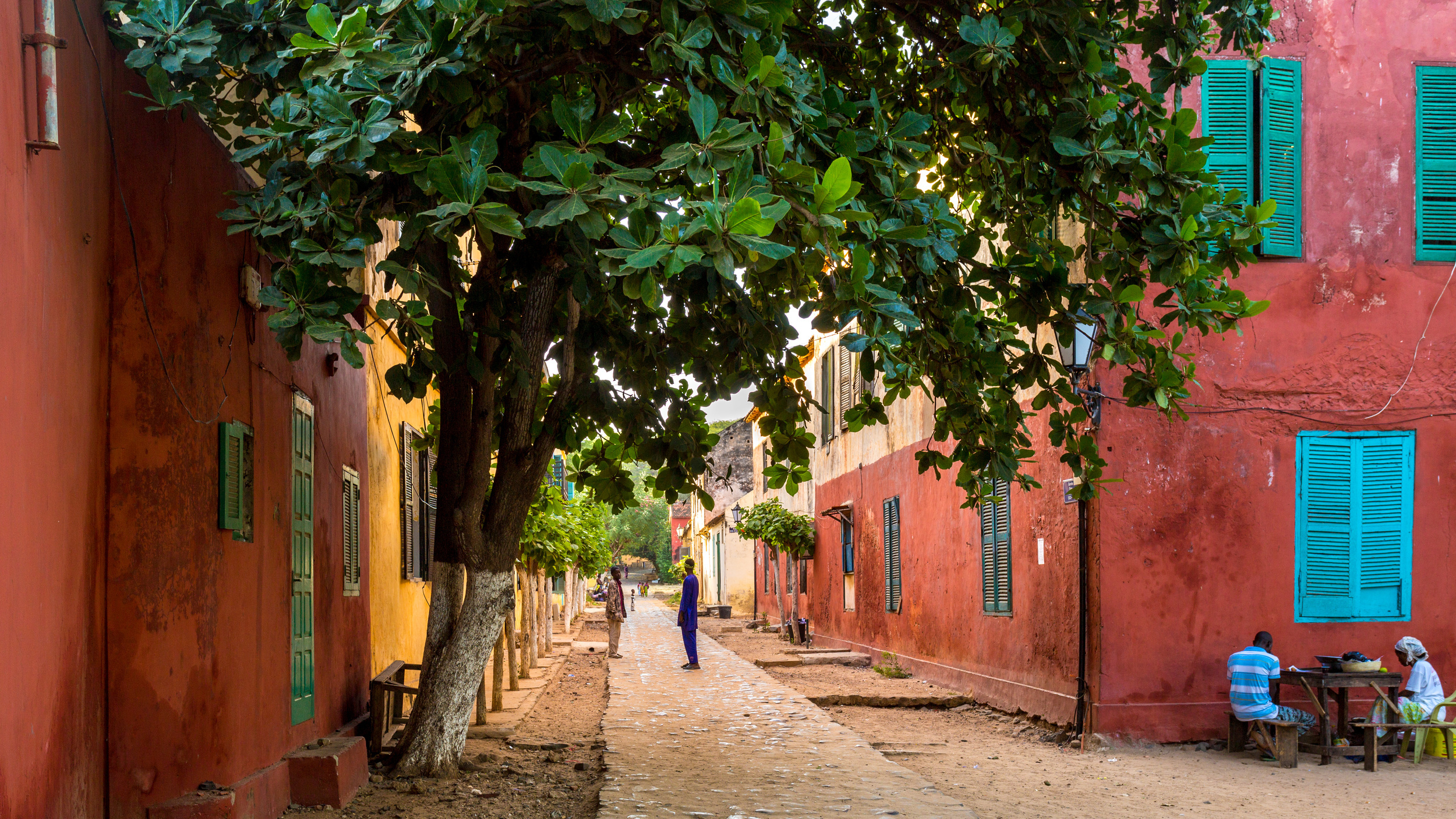
Senegal has six recognized indigenous languages, the most well-known and commonly spoken is Wolof. However, French is still the official language of the country despite Wolof being more widely used and understood.
You may also like: Add these 20 unusual U.S. destinations to your travel bucket list
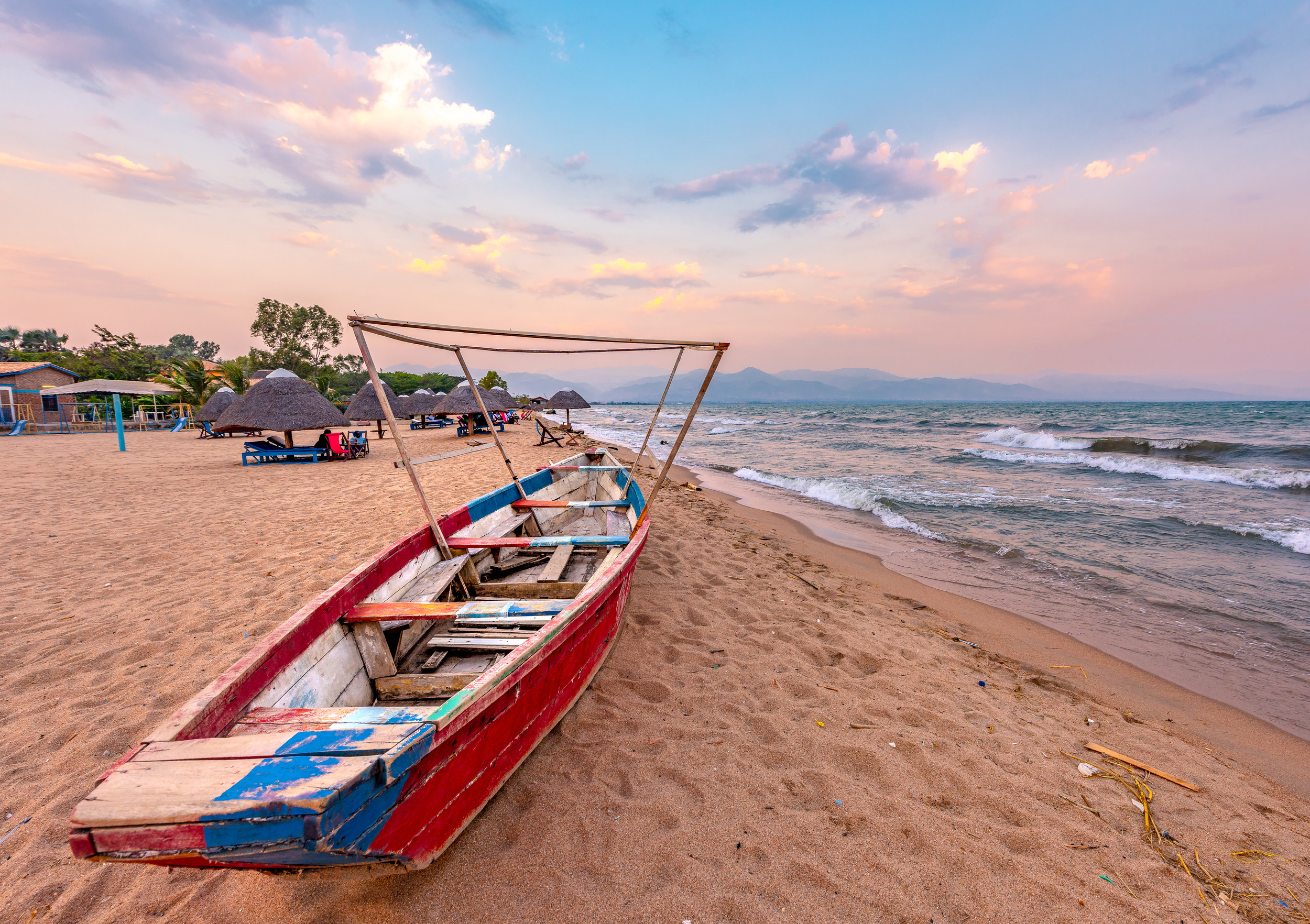
Yet another multilingual former French colony, Burundi has three official languages. In addition to French, Kirundi, and Swahili are recognized by the government. In 2014, English also gained status in the country.
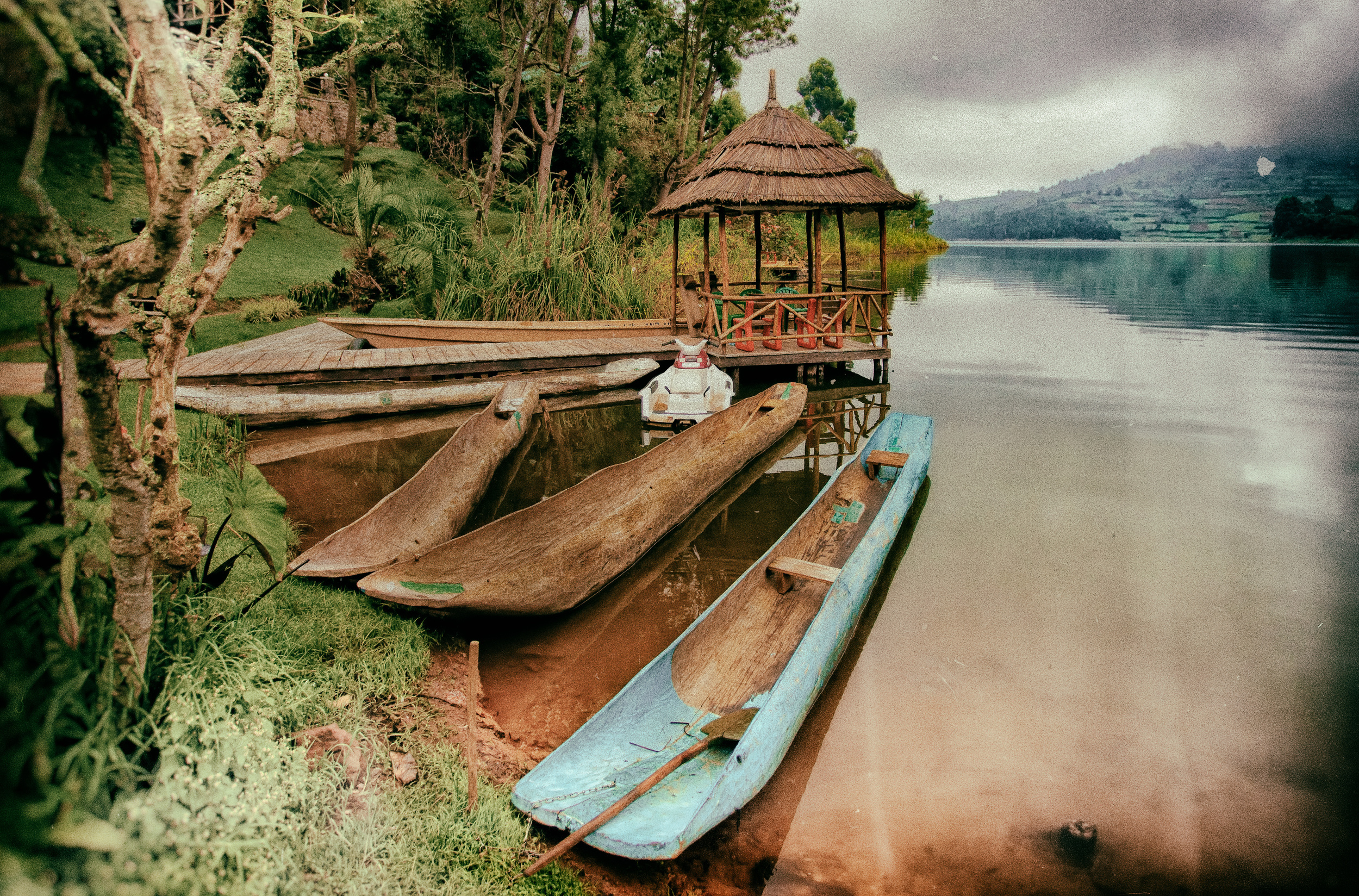
Republic of the Congo
Also known as the Congo or Congo-Brazzaville, it is not to be confused with its neighbor, the Democratic Republic of the Congo. Formerly known as the French Congo, due to colonization, the language is still the official one of use to this day. The local Bantu language, Kituba, Lingala, and numerous other indigenous languages are also widely spoken.
You may also like: 20 cookies you probably never tried before (but should!)
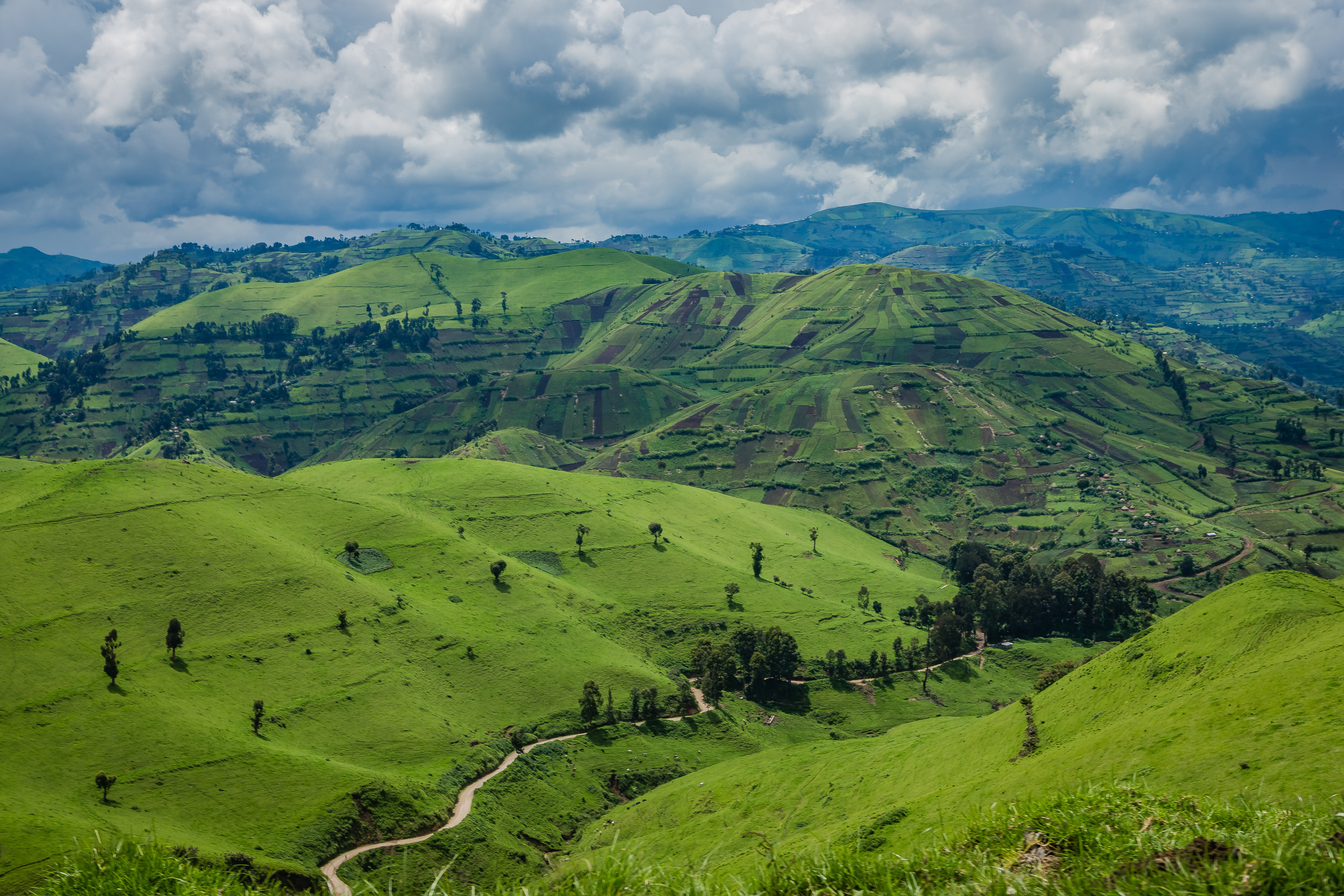
Democratic Republic of the Congo (DRC)
The DRC has four main languages: Kikongo (Kituba), Lingala, Swahili, and Tshiluba. However, as a former Belgian colony, French is still widely used and understood.
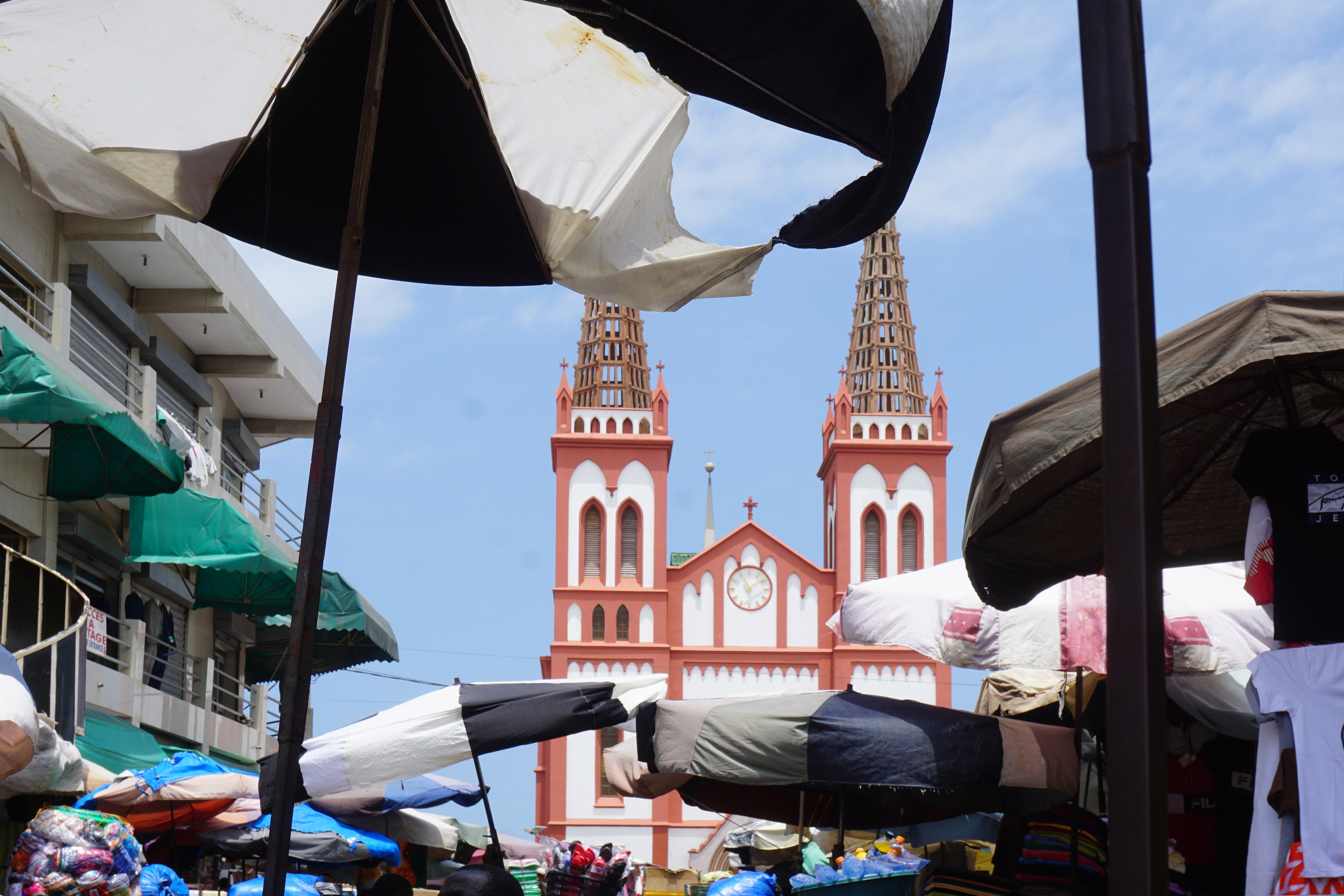
Togo is a very multilingual country, and in addition to the official language, French has over 40 in use throughout the country. Many signs will be in French, and most locals speak some.
You may also like: 25 gameday snacks you can make in a slow cooker
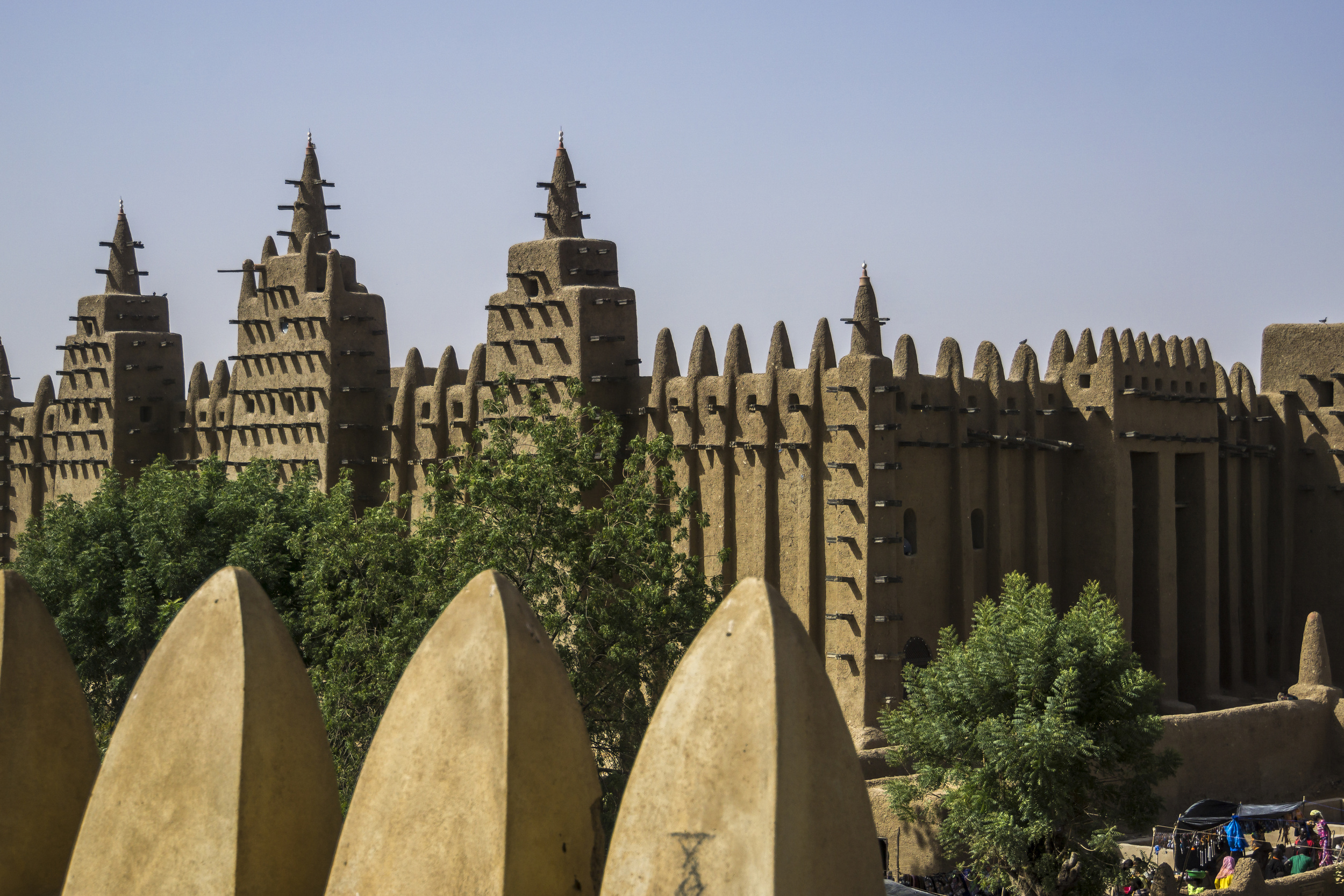
Yet another former French colony, visitors to Mali will find the language very useful in most interactions. Additionally, the country is home to more than 80 other local languages.
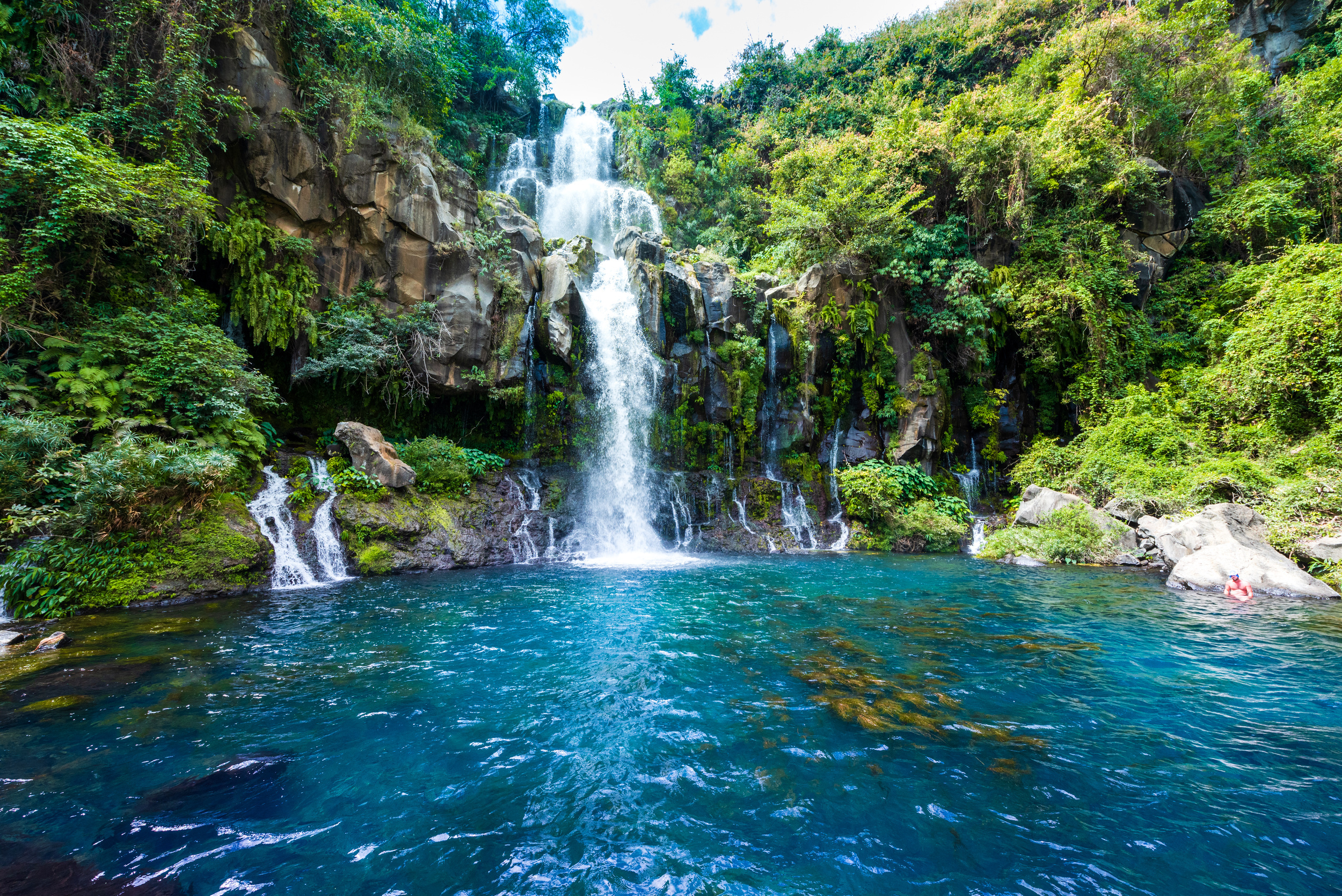
The British and French fought over Canada, with the former finally winning out, but the Francophone portion of the population remained influential. So much so that the country has two official languages: English and French, with over 70 indigenous languages in existence. And the province of Québec only has French as the official language (and frequently threatens to secede from Canada). Its neighbor, New Brunswick, is the only officially bilingual province.
You may also like: 20 essential organizing tips for living in small spaces
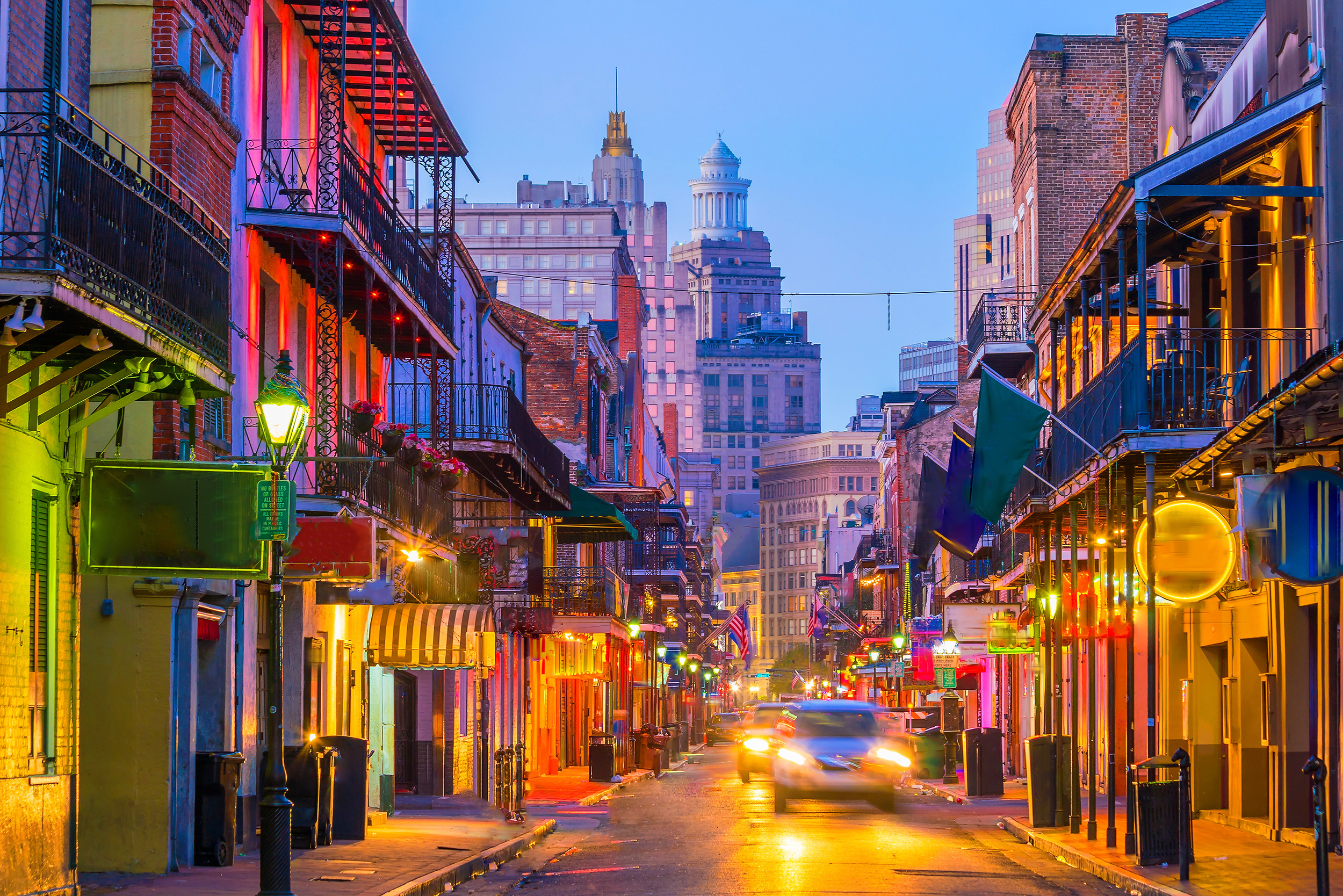
When the U.S. purchased Louisiana territory from the French in 1803, it probably wasn’t considered how long the language would stick around. In the 1960s, efforts were made to revive the language in the state after decades of suppression and Americanization. Now, French is spoken by an estimated 100,000 to 200,000 residents, ranging from traditional and Cajun (Louisiana) French.
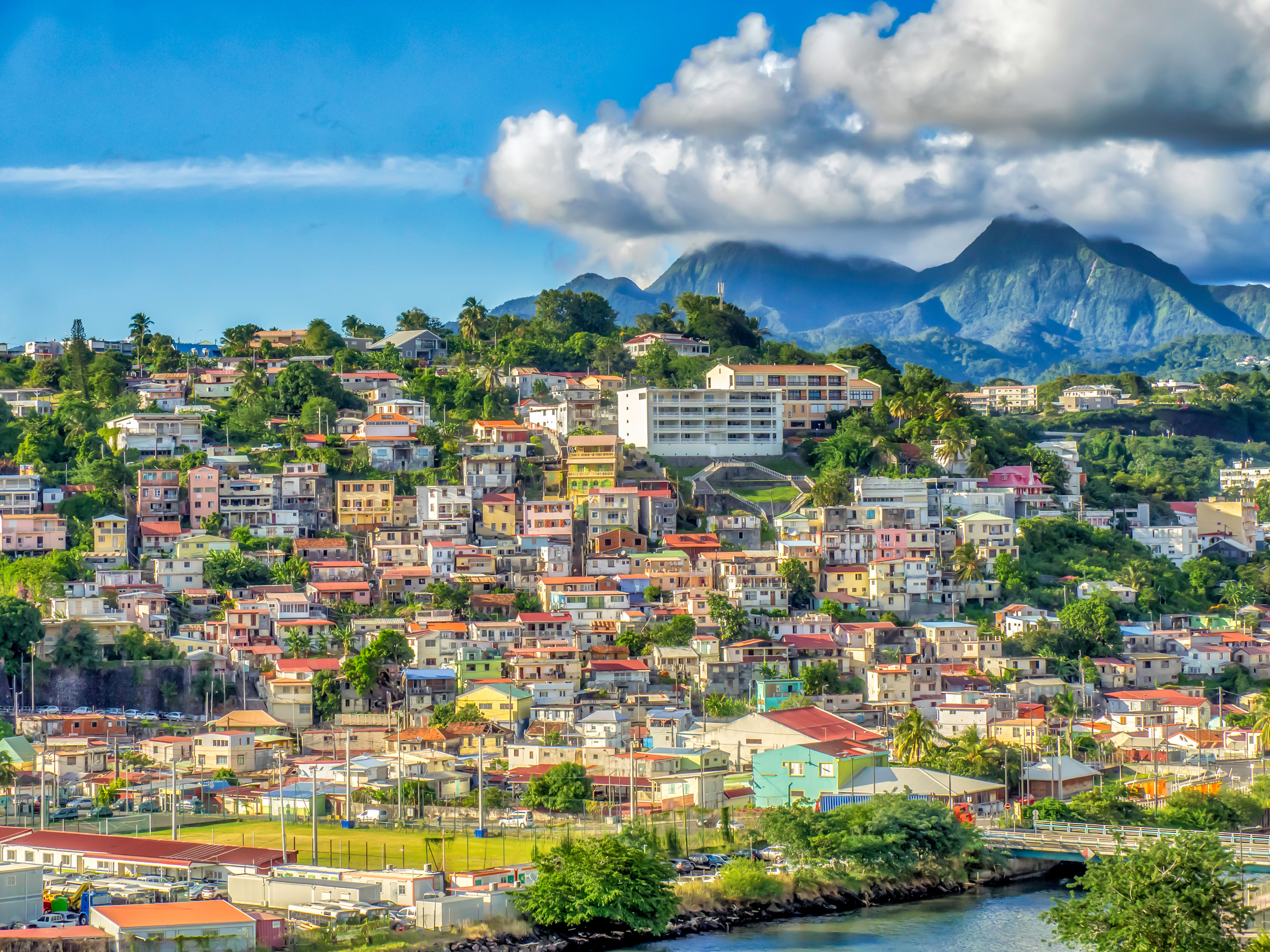
The Spanish colonized this Caribbean island before the Brits and French arrived. Then in 1763, France took over, and in 1943, it became semi-autonomous before gaining its current status as an Overseas Department in 1946. French is the official language, and visitors will find it helpful to know basic phrases, but Martinique Creole is unofficially the local language of communication.
You may also like: 15 quick and easy gameday appetizers
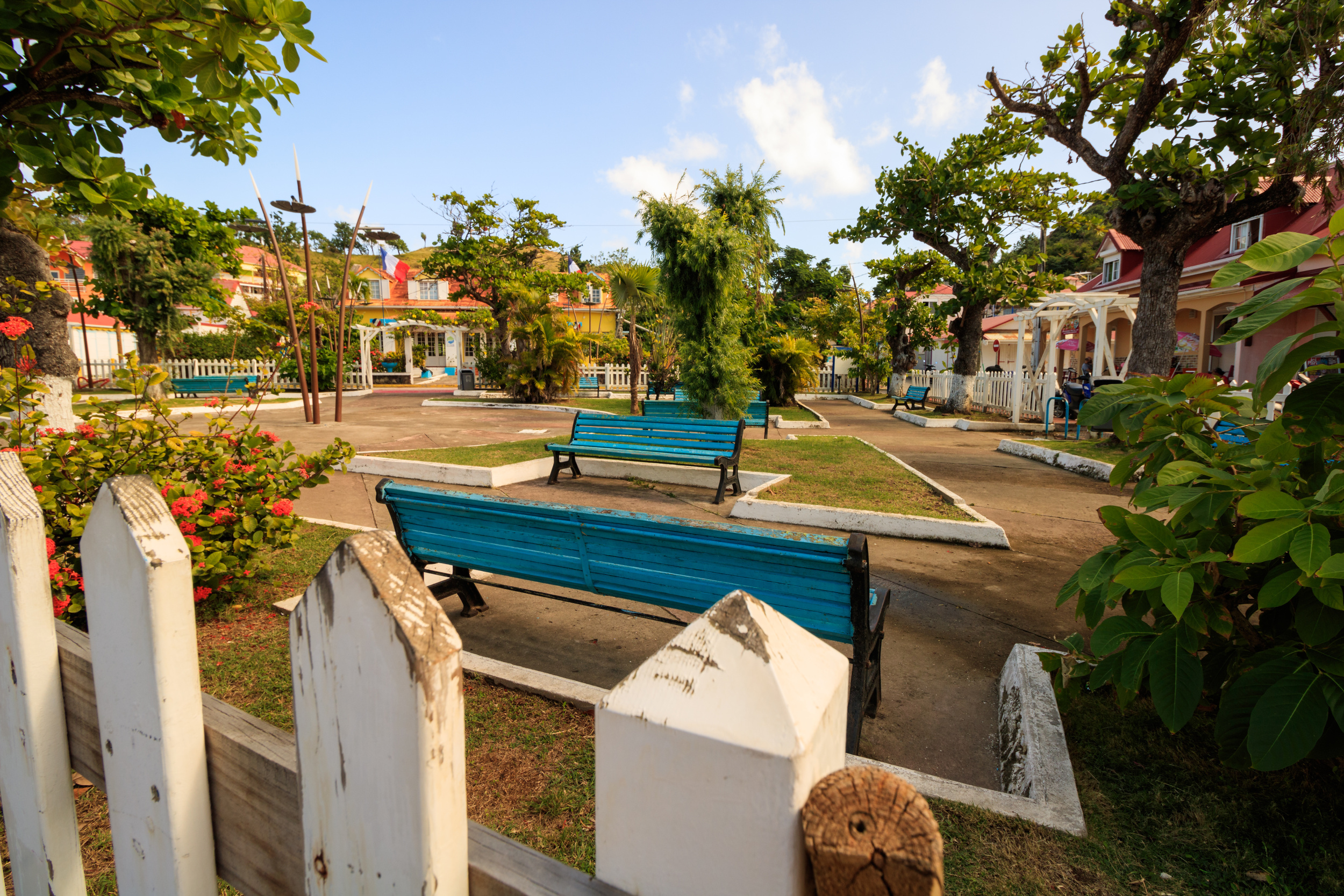
Another current French Overseas Department first colonized by the Spanish, Guadalupe has French as its official language, but like Martinique, Creole is widely used by locals.
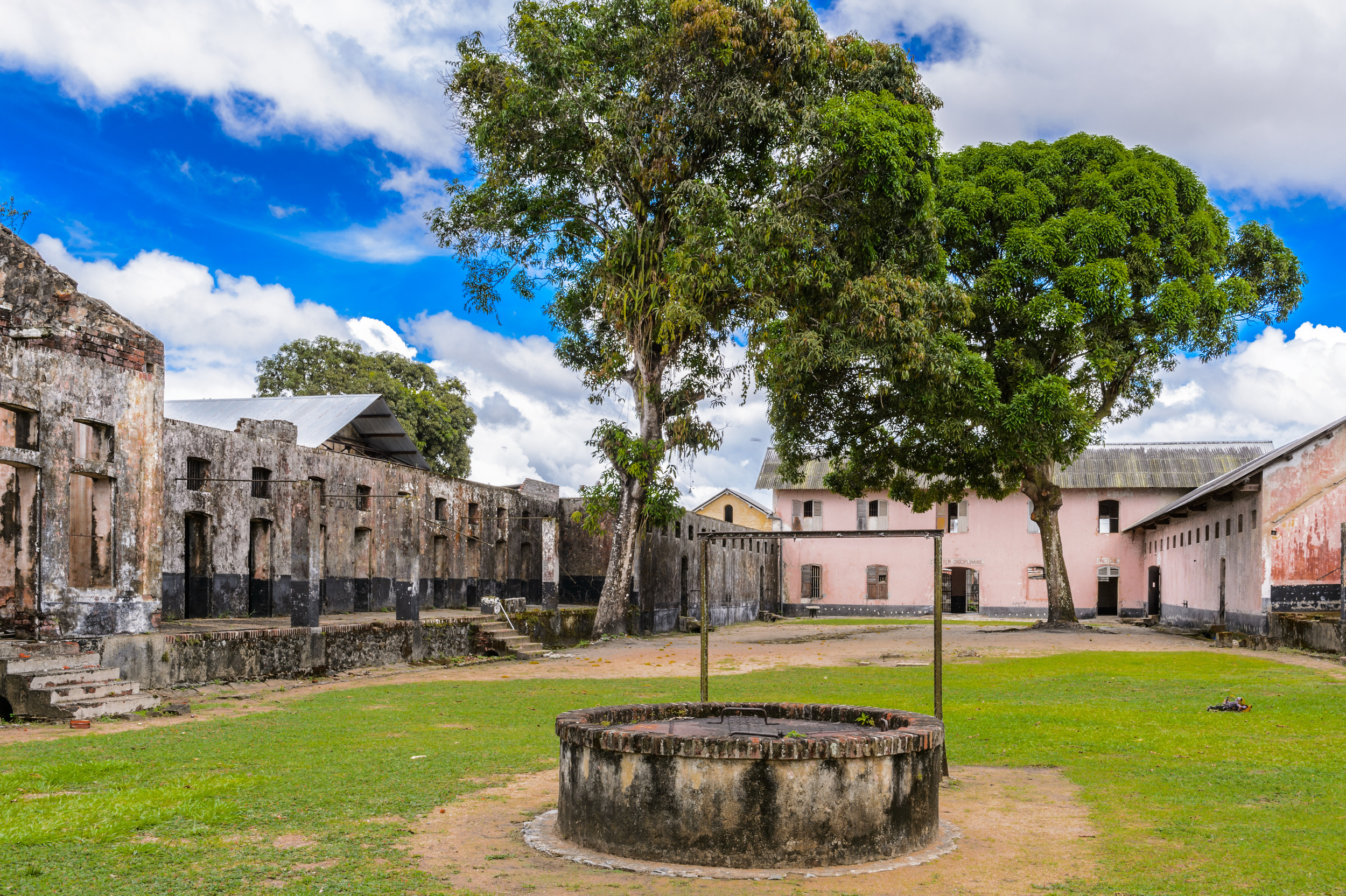
French Guiana
This small section of the South American continent, located between far northeastern Brazil and Suriname and Guyana, is a former colony that housed a penal colony of France. Today, it is a French Overseas Department. Thus, French is the official language, but Creole is the language of use by many residents.
You may also like: 22 healthy snacks you can make on gameday
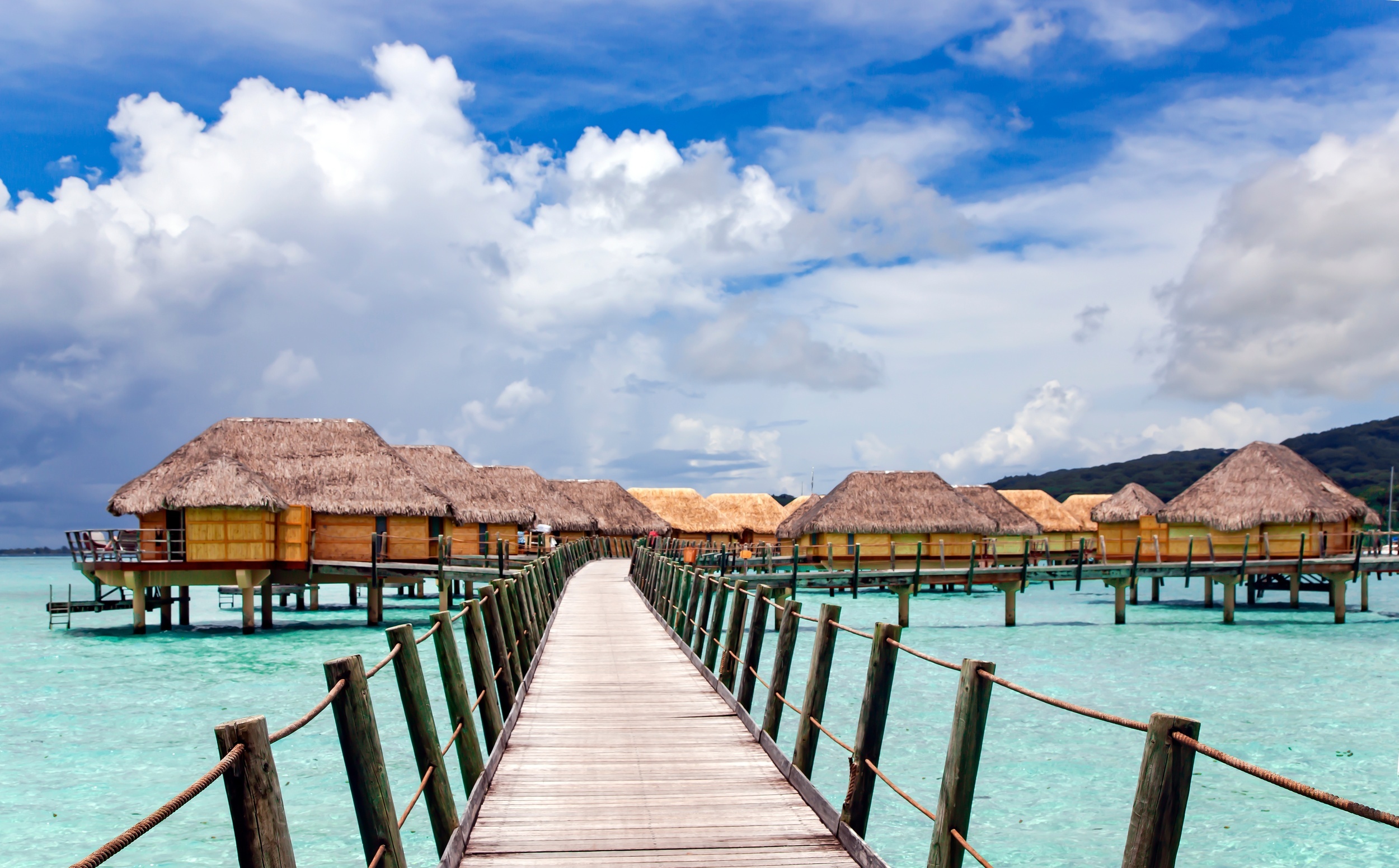
French Polynesia
Colonized by the French, the islands received the name “French Polynesia” after being designated a French Overseas Territory in the '50s. Then, in 1977, the country received autonomy and is now considered an overseas country of the French Republic, with French as the official language.
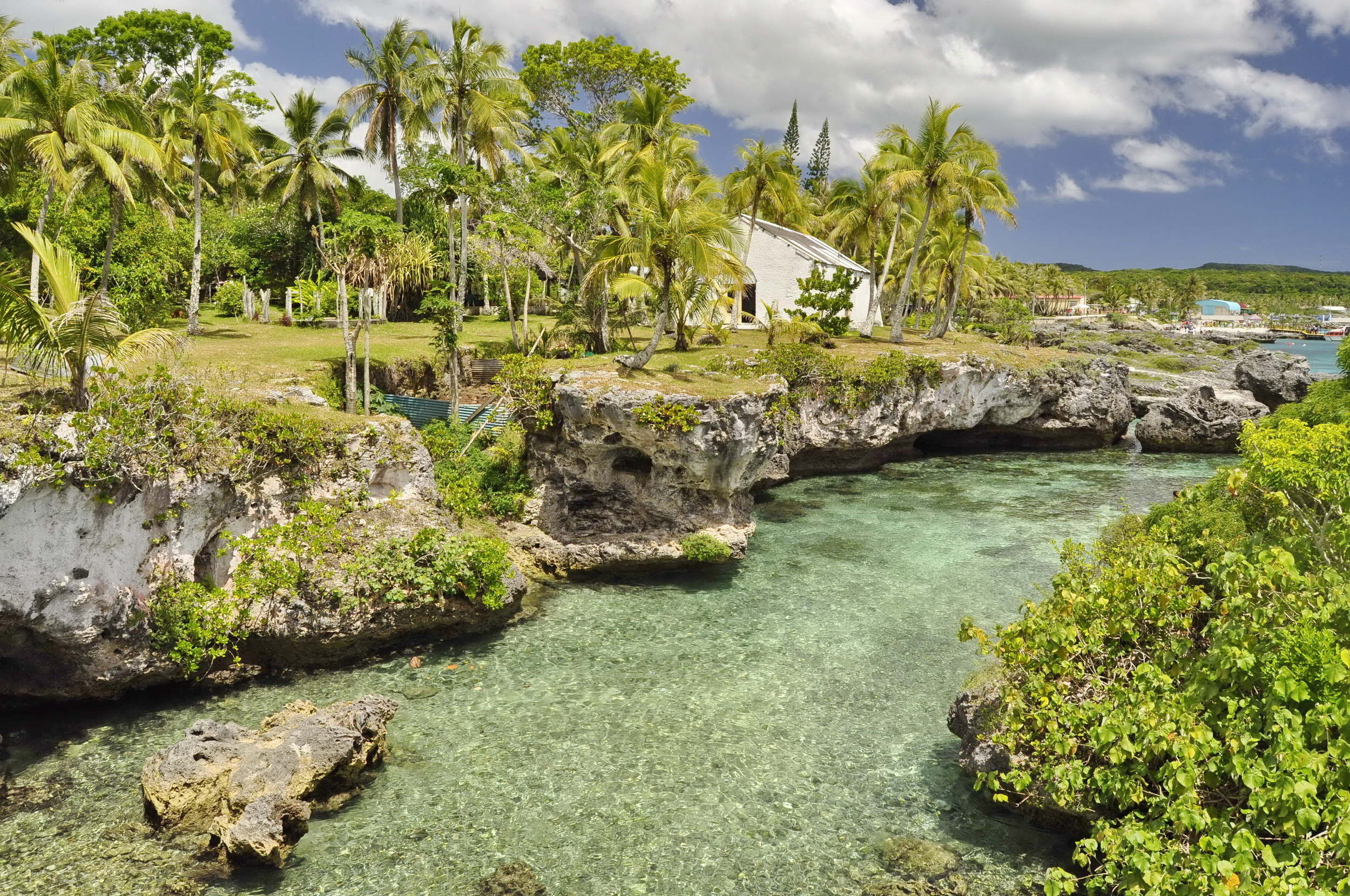
New Caledonia
The British initially colonized these islands in the South Pacific before the French took over in 1853. Recent years have brought referendums for independence, but a slim majority of the population has voted in favor of remaining part of France. French remains the official language of the territory.
You may also like: 20 essential tips for your best hair ever
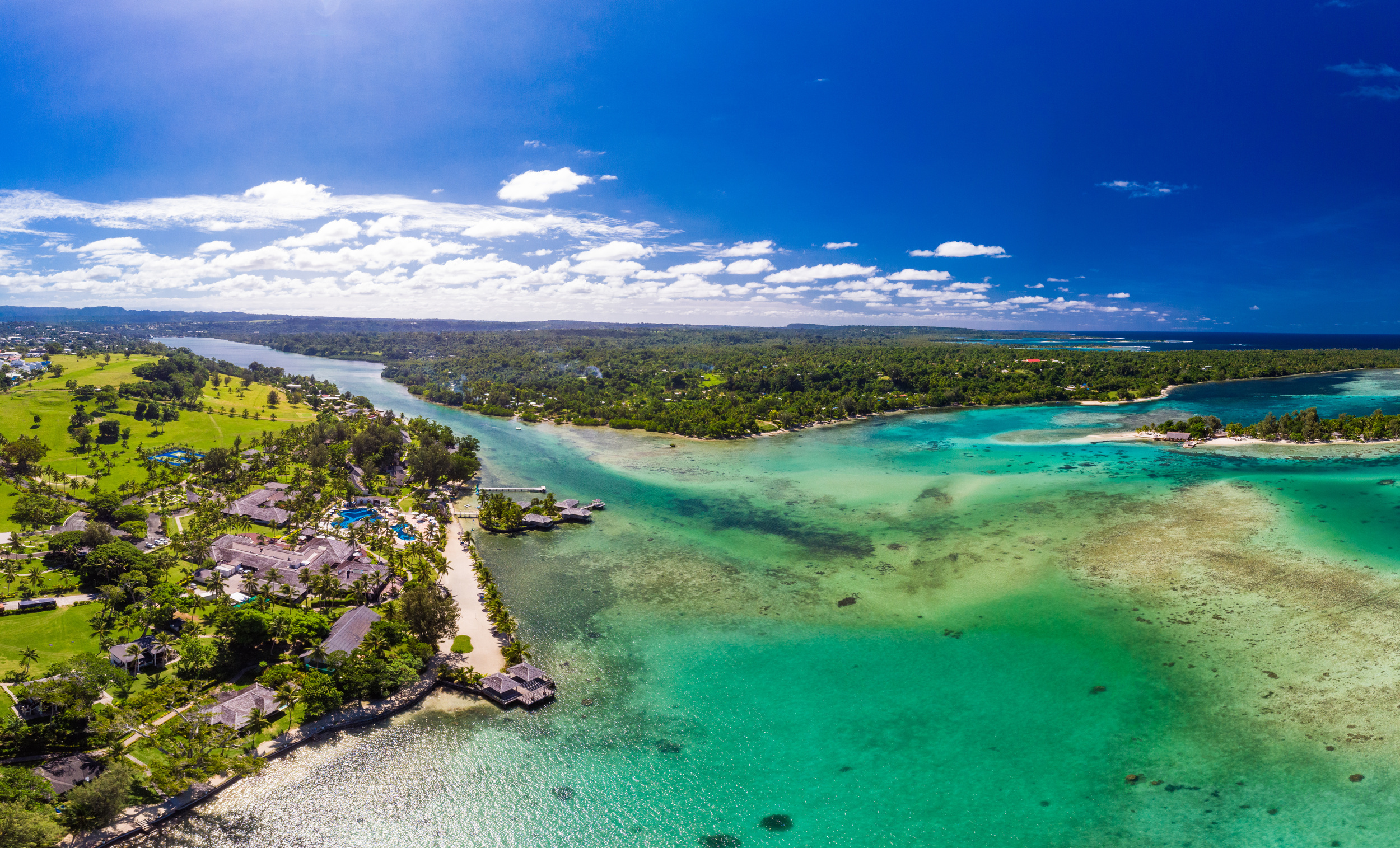
This Pacific country is very multilingual, with French, English, and Bislama all considered official languages. However, it doesn’t stop there, as over 100 languages are spoken on the island. After centuries of colonization, independence was finally declared in 1980.
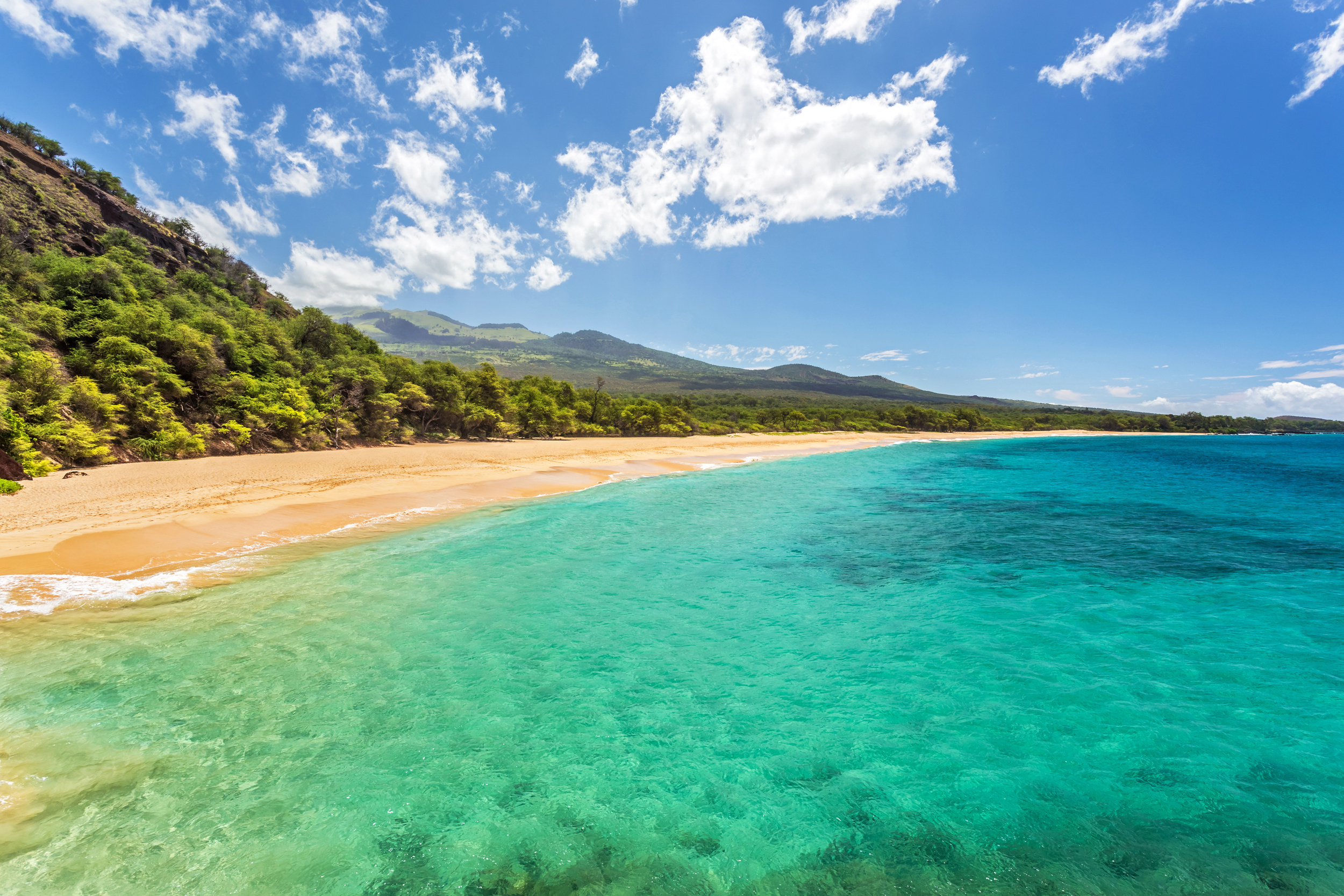
Wallis & Futuna
Made up of the Wallis, Futuna, and Alofi islands, all three were French protectorates and colonies until 1961. Then, the islands became a French Overseas Territory until 2003, when they received status as an Overseas Collectivity. French has been the official language throughout all the status changes.
Did you enjoy this slideshow? Follow us on MSN to see more of our exclusive lifestyle content.
More for You
US buys 81 Soviet-era combat aircraft from Russia's ally costing on average less than $20,000 each, report says
19 Things That Will Happen When You Stop Drinking Alcohol
Poland Issues Grim Prediction for Russia if It Attacks
Unsellable Houses' Lyndsay Lamb Says Buyers Are Moving Away From This Color Trend
Team USA Issues Statement Regarding Caitlin Clark's Olympic Status
The seven new types of old age – and how to tell which one you are
How much protein do you need to build muscle?
18 Most Common Reasons Women Leave Their Marriages
How Much Beer You'd Have To Drink To Equal A Single Shot Of Liquor
Man loses 450 pounds after reaching 'rock bottom.' 1 key diet change helped
6 Things A Doctor Wants You To Do Before Getting A Blood Test
Age at which you're officially old has changed
This Unlikely Supermodel-Favorite Sneaker Is the Next 'It' Shoe for Summer 2024
10 Low Carb Recipes for Stable Blood Sugar
Aileen Cannon Orders Classified Documents Evidence to be Made Public
If You See Black Residue on Your Cast-Iron Skillet, This Is What It Means
7 Things Stroke Doctors Say You Should Never, Ever Do
19 Things People Treat As Safe That Actually Are Pretty Dangerous
Netflix top 10 movies — here’s the 3 worth watching right now
The 26 Best Red Carpet Fashion Moments of All Time

IMAGES
VIDEO
COMMENTS
French Guiana. South America. French Guiana is a remote region of France covered in thick jungle and wilderness, although you'll also find colonial architecture, eerie prison-camp history and some of the world's most diverse plant and animal life here. It's a strange mix of French law and rainforest humidity where only a few destinations along ...
Exercise normal precautions in French Guiana. Read the country information page for additional information on travel to French Guiana. If you decide to travel to French Guiana: Enroll in the Smart Traveler Enrollment Program (STEP) to receive Alerts and make it easier to locate you in an emergency. Follow the Department of State on Facebook and ...
The Government of French Guiana requires all non-citizens age 12 and over entering the country to be fully vaccinated against COVID-19. Visit the Embassy of France website or the French government's official visa information page for the most current visa information. Note that French Guiana is an overseas department of France but is not a part of the Schengen zone.
If your travel plans in French Guiana include outdoor activities, take these steps to stay safe and healthy during your trip. Stay alert to changing weather conditions and adjust your plans if conditions become unsafe. Prepare for activities by wearing the right clothes and packing protective items, such as bug spray, sunscreen, and a basic ...
Restaurants in French Guiana are open. Bars in French Guiana are . Find continuously updated travel restrictions for French Guiana such as border, vaccination, COVID-19 testing, and quarantine requirements.
1 Cayenne, the administrative capital of French Guiana. 5.158333 -52.642778. 2 Kourou, the city which hosts the space centre and Arianespace. 5.503889 -54.028889. 3 Saint-Laurent, on the Maroni River, which forms the natural border between Suriname and French Guyana. 3.889444 -51.801111.
About French Guiana. French Guiana is a tropical backwater with intriguing highlights to satisfy the curious traveller: from rich wildlife encounters to cultural curiosities that sound like the setting for a Evelyn Waugh novel, including the launch site of the European Space Programme, chilling ruins of notorious penal colonies, and isolated indigenous communities.
FCDO travel advice for French Guiana. Includes safety and security, insurance, entry requirements and legal differences.
If you choose to drive in French Guiana: plan your route in advance, especially if you plan on travelling to rural areas. avoid travelling after dark. always carry a cellular phone and charger. check local cellular phone coverage, which remains unstable in the Amazon rainforest.
Update on Change to U.S. Travel Policy Requiring COVID-19 Vaccination for nonimmigrant travel. The Administration will end the COVID-19 vaccine requirements for international air travelers at the end of the day on May 11, the same day that the COVID-19 public health emergency ends. ... French Guiana has confirmed cases of COVID 19 within its ...
You can visit French Guiana without a visa for up to 90 days for tourism or business. To stay longer, to work or study, for business travel or for other reasons, check the visa application process ...
French Guiana travel guide Not on any established tourist trail, French Guiana is a complex and fascinating country; an outpost of France, ruled from Paris, but firmly in South America. Cloaked almost entirely in rainforest, it's not an easy country to travel around, but our French Guiana travel guide reveals its highlights, from a notorious ...
Learn about the best places to visit in this country of contrasts with our list of the top attractions in French Guiana. On This Page: 1. Îles du Salut (Salvation Islands) 2. Hattes Beach (Plages les Hattes) 3. Guiana Space Centre (Centre Spatial Guyanais) 4. Tresor Nature Reserve, Kaw.
2. Guiana Amazonian Park. The vast expanse of the Guiana Amazonian Park is a testament to the untouched beauty of French Guiana. As the largest national park in France and the European Union, it covers a staggering 20,300 square miles. This makes it a haven for biodiversity.
French Guiana Tourism: Tripadvisor has 15,836 reviews of French Guiana Hotels, Attractions, and Restaurants making it your best French Guiana resource. ... Guiana Vacation Rentals Flights to French Guiana French Guiana Restaurants Things to Do in French Guiana French Guiana Travel Forum French Guiana Photos French Guiana Map. Hotels.
You can call FCDO in London if you need urgent help because something has happened to a friend or relative abroad. Telephone: 020 7008 5000 (24 hours) Find out about call charges. FCDO travel ...
French Guiana (French: Guyane or Guyane française) is a department of France in the Amazonia region of South America, bordering the North Atlantic Ocean, between Brazil and Suriname.It is governed as an overseas province of France with same rights and privileges granted to all other French departments and benefits financially from this arrangement.
Here are the best things to do in French Guiana.=====Fired travel agent wants revenge! Here's the secret to cheap flights: https://bit.ly/3...
An average nonstop flight from the United States to French Guiana takes 20h 40m, covering a distance of 2807 miles. The most popular route is New York - Cayenne with an average flight time of 20h 40m. What is the cheapest flight to French Guiana? The cheapest ticket to French Guiana from the United States found in the last 72 hours was $2,471.
Road travel If you are planning to drive in French Guiana, see information on driving abroad and check the rules of the road in the RAC's France guide as French driving laws apply. The guide ...
French Guiana is still an overseas department of France so French is the main influence, plus there is an H' mong community. Finish up in Brazil and learn about Amazonian customs and especially food. While travel to Guyana and Suriname is quite simple, French Guiana is more developed. Custom Guyana Tours
Guyane Evasion is a Incoming Travel Agency French Guyana. 06 94 38 23 61 [email protected]. Facebook; Facebook; Français (French) English; Guiana. Discover French Guiana; ... 15 days or more, French Guiana awaits you! Custom-made. Transportation. We offer a selection of vehicles and ships to discover French Guiana by land or by water ...
French Guiana This small section of the South American continent, located between far northeastern Brazil and Suriname and Guyana, is a former colony that housed a penal colony of France. Today ...